News

29 May 2025
Results from a clinical trial led by researchers from Queen Mary University of London, published yesterday in JAMA, show that giving people with high blood pressure an injection every six months can lead to a meaningful, sustained reduction in their blood pressure.

22 May 2025
Two Professors from Queen Mary join 54 exceptional biomedical and health scientists elected by the Academy to its prestigious Fellowship.

20 May 2025
Professor Morris Brown MD FRCP FMedSci FRS has been elected to the Fellowship of the Royal Society, the UK’s national academy of sciences. He is one of 90 outstanding scientists from the UK and internationally who have joined the prestigious body this year.

20 May 2025
Women of African or South Asian genetic ancestry tend to develop breast cancer and die at a younger age than women of European ancestry, according to new research by Queen Mary University of London. The study also found important genetic differences in these women’s cancers that could impact their diagnosis and treatment.

19 May 2025
As many as 1 in 4 men and 1 in 3 women will develop dementia in their lifetime. Getting a timely diagnosis is important as it allows people to understand and get treatment for their symptoms, access help and support, and plan for the future.

13 May 2025
The Centre for Bone and Joint Health at Queen Mary brings together experts across musculoskeletal care to drive research that improves the health of people with bone and joint disorders and injuries.

13 May 2025
The results of an international study led by researchers from Queen Mary University of London’s Precision Healthcare University Research Institute (PHURI) shed new light the underlying biological mechanisms which cause differences in health risks, symptoms and outcomes between males and females.

13 May 2025
The results of the MIROCALS randomised clinical trial showed that adding low-dose interleukin-2 (IL2LD) to standard treatment for this degenerative disorder slowed functional decline and extended the lifespan of people with ALS.

9 May 2025
A single blood test for the chemical signals of many different types of cancer could detect the disease at its early stages, making it easier to treat for almost 50% of patients

7 May 2025
Two new advanced predictive algorithms use information about a person’s health conditions and simple blood tests to accurately predict a patient’s chances of having a currently undiagnosed cancer, including hard to diagnose liver and oral cancers.

1 May 2025
The Academic Centre for Healthy Aging (ACHA) is a landmark collaboration between Barts Health NHS Trust, Queen Mary University of London, and Barts Charity, focused on improving the health, wellbeing, and care of older adults in north-east London and beyond.

24 April 2025
A new strategy for tuberculosis (TB) screening, proposed by a team of researchers led by Queen Mary University of London, provides a solution to problems with current TB screening, which does not always accurately detect disease.

2 April 2025
Professor Caulfield, Vice-Principal (Health) at Queen Mary, joins twelve other senior figures from health, science, and medicine on the Council.

28 March 2025
A new study from Queen Mary University of London found that 9% of all adverse drug reactions (ADRs) reported to the UK medicines regulator are associated with medications where side effect risk is partly dependent on patient’s genes. Of this subset of ADRs, 75% were associated with only three genes that impact how the body processes medication. Genetic testing before prescribing could therefore help avoid ADRs in these cases.

27 March 2025
An international study of the health outcomes of people receiving surgery across 17 Latin American countries found 1 in 7 developed significant complications leading to longer hospital stays and a greater risk of death.

27 March 2025
Heather Mah from the Wolfson Institute of Population Health has conducted a review of Patient and Public Involvement (PPI) in health research in the UK. In her scoping review, she critically examined how PPI benefits both people with lived experience and researchers, and on the impact taking part can have on participants.

26 March 2025
The report by the Partnership for Black People’s Health (PBPH) highlights the urgent need for culturally appropriate health interventions, a demand for greater representation, and the necessity for Black-led initiatives within healthcare.
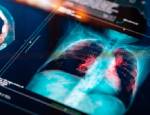
24 March 2025
Researchers at Queen Mary are building on many years of ground-breaking studies into tuberculosis (TB) to reveal new insights into this disease and its long-term effects.

18 March 2025
Young people in southern Madagascar are facing a mental health crisis driven by the devastating impacts of climate change.
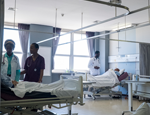
12 March 2025
An international study of acute hospitals across Africa found a large and neglected burden of critical illness, and a high incidence of preventable deaths due to issues with the provision of basic critical care.

3 March 2025
A new study highlights the benefits of ULEZ with many families noticing cleaner air and safer roads. However, it also reveals challenges, particularly for those living in outer boroughs who are more reliant on the car and may struggle to adapt.

3 March 2025
New genetic links have been discovered between genetically-predicted height and an individual’s likelihood of developing a range of diseases and conditions. These new data could help improve early diagnosis and risk monitoring for patients.

27 February 2025
The breakthrough research led by Queen Mary University of London uses a new analytical approach for identifying the genetic basis of rare diseases, which could diagnose more cases and help develop new treatments for patients.

26 February 2025
People from different ethnic backgrounds may report physical symptoms rather than purely cognitive difficulties, leading to delays in the diagnosis of dementia.

20 February 2025
New research from Queen Mary University of London shows that almost 90% of people in England would agree to genetic testing to get the most effective medication and reduce the risk of side effects.

18 February 2025
The NIDUS-Family package of care uses goal setting to help people with dementia live well at home for longer. New research from Queen Mary University of London in collaboration with UCL shows that, in addition to these known benefits, NIDUS-Family also reduces the costs associated with providing support to people with dementia.

11 February 2025
Queen Mary University of London will co-lead a ground-breaking collaboration that aims to harness cutting-edge artificial intelligence (AI) and unlock decades of NHS cancer data. Today, the UK government is committing £18.9 million to the project, bringing the total investment to £43.6 million when combined with contributions from charities, industry partners, and public research organisations.

11 February 2025
New research led by Queen Mary’s Institute of Dentistry has found that changes to the intermediate filament (IF) protein, vimentin, were found to promote tumour growth.
.png)
10 February 2025
A revolutionary new treatment called Targeted Thermal Therapy (Triple T) offers a safer, faster alternative to surgery for patients with high blood pressure caused by Primary Aldosteronism, a hormonal disorder.

6 February 2025
The award recognises the Institute's continuing commitment and achievements in gender equality.

5 February 2025
Professor Curran will bring a wealth of international experience to the role, affirming the Faculty’s place at the forefront of medical education.

31 January 2025
Professor Nikolaos Donos was elected at a meeting of the Council of the College in November 2024.

24 January 2025
Queen Mary University of London is delighted to announce the appointment of Professor Julia Hippisley-Cox as the inaugural Professor of Clinical Epidemiology and Predictive Medicine in the Wolfson Institute of Population Health. She will join the University from the beginning of February.

22 January 2025
The University will lead the study which aims to support clinical decision-making with AI insights to enhance emergency life-saving care.

21 January 2025
Dr John Ford is a Senior Clinical Lecturer in Health Equity in Queen Mary’s Wolfson Institute of Population Health. This week, Dr Ford joins Evidence Week in Parliament to demonstrate how ‘Living Evidence Maps’ can help policy makers find the high-impact ideas within large bodies of evidence.

13 January 2025
A new study examining the connection between depression and dementia provides critical insights into how depression might be both a risk factor for and an early sign of dementia.

10 January 2025
Research led by Queen Mary’s Professor Claudia Langenberg and her team has helped to prove the effectiveness of large-scale protein studies using UK Biobank data to understand disease

6 January 2025
A major study aiming to improve outcomes from higher risk operations has ruled out a fluid therapy approach during surgery.

3 January 2025
A genetic fault long believed to drive the development of oesophageal cancer may in fact play a protective role early in the disease.

13 December 2024
A new protocol for the analysis of self-collected cervical samples could reduce the need for follow-up clinician screening for many women, and result in more rapid referral for gynaecology assessment for others. This could improve cervical cancer screening procedures in the NHS.

11 December 2024
The relationship the immune system and stromal cells in pancreatic cancer can have a significant impact on patients’ survival rates, according to findings of Queen Mary-led study.

5 December 2024
Queen Mary University of London is leading the way in the Government’s new ‘Future Framework’ for UK-Qatar relations. The framework set out a new science, innovation and technology dialogue which brings together UK and Qatari policy, research and academic expertise to create high impact collaborations in areas of aligned strategic importance.

2 December 2024
Professor Sir Mark Caulfield was instrumental in setting up a partnership between Queen Mary and the Odessa National Medical University that enabled medical students from Ukraine to gain vital clinical experience in London, allowing them to continue their medical training despite the ongoing conflict.

2 December 2024
On World AIDS Day, we celebrate the contribution of Queen Mary researchers to tackling health inequalities faced by people with HIV – through the clinical development and implementation of life-changing HIV treatments, and research methods that ensure inclusive clinical trials and equitable access to treatments.

26 November 2024
A genetic predisposition to having lower insulin production and less healthy fat distribution are major causes of early-onset type 2 diabetes in British Asian people, according to new research from Genes & Health.

23 November 2024
Researchers from Harvard University and Queen Mary University of London have proposed policy changes in cancer care to take account of a common genetic variation.
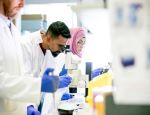
22 November 2024
In a brilliant example of cross-discipline and cross-faculty working, researchers from Queen Mary University of London’s Faculty of Medicine and Dentistry and Faculty of Science and Engineering have developed a new way to understand ways to make drugs stay in the bloodstream for longer.

15 November 2024
Teams from the Wolfson Institute of Population Health will lead two of the four DigiTrails projects which will recruit 150,000 volunteers onto research trials that could transform cancer treatment.

14 November 2024
A groundbreaking multi-national study has revealed that the shape of the human heart, influenced by genetic factors, could serve as a valuable predictor for cardiovascular disease risk.

13 November 2024
NIDUS-Family is one of only two case studies identified in the report as leading the way in improving training for staff and families of people with dementia.

8 November 2024
An innovative cancer-killing virus shows promise for tackling glioblastoma, an aggressive type of brain tumour, according to new results from a phase I clinical trial published in Nature Communications.

5 November 2024
Researchers at the Francis Crick Institute and Queen Mary University of London have been awarded €9.8 million from the European Research Council to investigate how tissue homeostasis, the body’s ‘status quo’, is maintained over time, and how genetic mutations can help or hinder this process.

28 October 2024
A team based at Queen Mary University of London and Imperial College London has received £1.1 million funding from the UK Biotechnology and Biological Sciences Research Council (BBSRC) to crack the “sugar code” in the amphibian skin. The research aims to understand how glycan shapes the amphibian skin microbiome and leads it to be susceptible to a deadly fungus.

24 October 2024
Professor Sir Mark Caulfield, VP Health at Queen Mary University of London, received the Irish Cardiac Society Stokes Medal on Friday, recognising his outstanding contribution to cardiovascular disease throughout his career.

24 October 2024
Final year medical student from the Faculty of Medicine and Dentistry, Charlie Sellar, has been awarded a prestigious scholarship from the Healthcare Leadership Academy (HLA) in recognition of his great potential for becoming a leader in healthcare.

22 October 2024
Rapid urbanisation and population growth in sub-Saharan Africa has increased the incidence of asthma in young people, but the lack of diagnosis and care means that many suffer from untreated symptoms, according to research led by the Faculty of Medicine and Dentistry.

7 October 2024
The University is part of a nationwide team launching a new platform to understand immunotherapy response and side effects in cancer.

30 September 2024
Research led by scientists at Queen Mary University of London is heralding in a new era for genetic sequencing and testing.

20 September 2024
Queen Mary University of London is delighted to be a part of the new London-based Advanced Therapy Treatment Centre (ATTC).

15 September 2024
Professors Tom Powles and Peter Schmid delivered results from their phase three clinical trials during Sunday’s Presidential Symposium at the European Society for Medical Oncology (ESMO) Congress 2024, a global event showcasing cutting-edge cancer research to over 30,000 attendees.
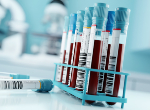
11 September 2024
Research by Queen Mary and Harvard shows that people with the Duffy-null phenotype – a trait found predominantly in people of African or Middle Eastern descent – may be erroneously excluded from clinical trials and some cancer treatments due to misinterpretation of their routine blood test results.

9 September 2024
Pedro Elston – Reader in Medical Education, Faculty of Medicine and Dentistry - reflects on the Faculty of Medicine and Dentistry's ground-breaking blended-learning medical education programme

5 September 2024
Researchers found 4 in 10 London children swopped to more active forms of transport, compared to students in Luton, which has no driving restrictions.

30 August 2024
Three internationally-leading professors have been appointed as Professorial Chairs for the Academic Centre for Healthy Ageing (ACHA), a new centre created by Barts Health NHS Trust and Queen Mary University of London, with £6.6 million from Barts Charity.

29 August 2024
The Alzheimer’s Society has awarded £3.1million to fund a Doctoral Training Centre to be based at the Wolfson Institute of Population Health
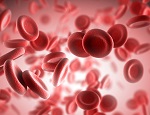
28 August 2024
More people in the UK are at risk of a hereditary form of cardiac amyloidosis, a potentially fatal heart condition, than previously thought - according to a new study led by researchers at Queen Mary University of London and UCL.
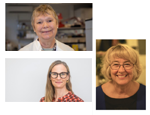
28 August 2024
For the third year in a row, Fran Balkwill, Irene Leigh and Claudia Langenberg remain in the list of the UK’s top 100 female scientists.

23 August 2024
An In-Focus analysis in Lancet Haematology calls for greater understanding of greenhouse gas (GHG) emissions, to inform effective and prudent health practice in haematology care.

14 August 2024
The new, more accurate panel has helped to identify several new rare-variant associations for tested traits, using data collected by Genomics England.

9 August 2024
An international team from Queen Mary University of London, Chiang Mai University, the Ministry of Public Health in Thailand, and the London School of Hygiene and Tropical Medicine has received funding to pilot an intervention to empower doctors in Thailand to improve outcomes for their patients.

2 August 2024
The research discusses the impact of climate change on the systems that facilitate physiological adaptations to heat exposure
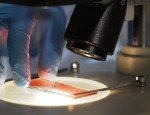
22 July 2024
Protein ‘signatures’, which can be obtained via a blood sample, can be used to predict the onset of 67 diseases including multiple myeloma, non-Hodgkin lymphoma, motor neurone disease, pulmonary fibrosis, and dilated cardiomyopathy. Using protein information to predict the onset of diseases could help with timely diagnosis, early initiation of treatment and improved patient outcomes.

19 July 2024
There is no difference in live birth rates between time-lapse imaging and other standard approaches used in in vitro fertilisation (IVF) for embryo incubation and selection prior to implantation, according to research led by Queen Mary.
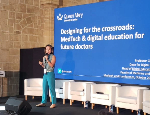
18 July 2024
Professor Chie Adachi, Dean for Digital Education in the Faculty of Medicine and Dentistry, discusses how our pioneering Digital Education Studio is making medical education more accessible.

16 July 2024
Children living in areas with high levels of deprivation are three times more likely to have severe tooth decay that requires a dental extraction in hospital, compared with children living in more affluent areas. The findings highlight an urgent need for equitable access to preventive dentistry.

10 July 2024
Researchers from Queen Mary University London and Emory University used a novel AI-based analytic tool to better understand how tumour infiltrating lymphocytes (TILs) can predict which cases of Ductal Carcinoma in Situ (DCIS) would go on to become invasive breast cancer.

9 July 2024
Queen Mary University of London congratulates Professor Claudia Langenberg and Dr Isabel M Palacios on their recent election to the European Molecular Biology Organization (EMBO) Membership.

4 July 2024
Professor Gribben was awarded the honour in recognition of his exceptional achievements and pivotal role in shaping the landscape of blood disorder (haematological) research.

25 June 2024
Professor Wong was presented with the presidential chain of office during the EAPD congress in Gothenburg, Sweden, last month.

18 June 2024
This innovative and wide-ranging campaign raised awareness of the importance of upper limb function in MS and the need to develop alternative ways to measure, record, and account for hand and arm function changes.

14 June 2024
Queen Mary University of London is delighted to congratulate Professor Chloe Orkin, who has been recognised with an MBE for services to NHS in the 2024 King’s Birthday Honours list.

13 June 2024
Researchers have for the first time created an integrated single-cell RNA sequencing (scRNAseq) atlas of the human periodontium, the specialised tissues in the mouth that connect teeth to the underlying bone. This atlas will help identify the unique environments that impact on the development of gum disease (periodontitis), leading to better and more precise treatments.

12 June 2024
A new study from the Bone and Joint Health research group indicates that advice on weight bearing after treatment for ankle fractures may need to be adjusted to ensure the best outcomes for post-surgical care.

12 June 2024
Drugs with the potential to change the course of Alzheimer’s disease are expected to be approved by mid-year in the UK. Healthcare services may need to change to ensure that all patients have equitable access to these new modifying anti-amyloid therapies.

11 June 2024
The United Nations Population Fund (UNFPA) and Queen Mary University of London have published five regional reports to support the integration of sexual and reproductive health and rights and related themes in the nationally determined contributions (NDCs) of countries across the world.

5 June 2024
Researchers from the Centre of Preventive Neurology have developed a new method for predicting dementia with over 80% accuracy and up to nine years before a diagnosis. The new method provides a more accurate way to predict dementia than memory tests or measurements of brain shrinkage, two commonly used methods for diagnosing dementia.
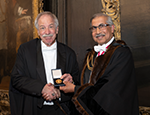
3 June 2024
The Galen Medal in Therapeutics has been presented by the Society of Apothecaries annually since 1925 and is its most prestigious honour.

30 May 2024
The Fellowship facilitates the visit of orthopaedic experts to centres of excellence in Canada and the USA.

28 May 2024
Suzanne Scott, Professor of Health Psychology and Early Cancer Diagnosis in the Faculty of Medicine and Dentistry, discusses how technology could change how we monitor our health and the issues we need to consider now to optimise the chance of success.

22 May 2024
New research indicates that people from all socioeconomic groups benefit from low-dose-CT screening in terms of lung cancer survival
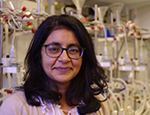
21 May 2024
Amrita Ahluwalia, Professor of Vascular Pharmacology and Dean of Research for the Faculty of Medicine and Dentistry at Queen Mary University of London, is one of 58 exceptional biomedical and health scientists elected by the Academy to its prestigious Fellowship.
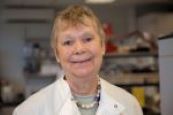
16 May 2024
Professor Frances Balkwill OBE FMedSci FRS is one of 90 exceptional researchers across the world to be elected this year to the Fellowship of the Royal Society, the UK’s national academy of sciences.

16 May 2024
The human papillomavirus (HPV) vaccination programme in England has been associated with a substantial reduction in cervical disease across all socioeconomic groups.

14 May 2024
Analysis of previously unstudied areas of the genomes of 500,000 people indicates that individuals who have more copies of ribosomal DNA (rDNA) are more likely to develop inflammation and diseases during their lifetimes.

13 May 2024
For Dementia Action Week, we’re showcasing work happening now in the Faculty of Medicine and Dentistry to improve our understanding of how we diagnose, and provide care and treatment to people living with dementia.

9 May 2024
A new study, led by Jesmond Dalli, Professor of Molecular Pharmacology at Queen Mary University of London, has found that people with a genetic mutation which leads to a reduction in a protein called LGR6, found on the surface of immune cells, have a decreased ability to clear viral infections.
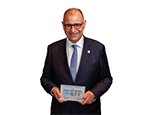
7 May 2024
Professor Donos' award was given as recognition for his exceptional achievements and commitment to the field of peridontology.

3 May 2024
Queen Mary University of London is investing in its world-leading research through the creation of at least 15 new strategic professorial roles.

2 May 2024
Queen Mary University of London’s Professor Thomas Powles has been recognised in the 2024 TIME100 Health list for his breakthrough success in treating severe bladder cancer.

1 May 2024
Queen Mary’s Professor Rhian Gabe is named as one of six lead researchers in the new £42 million TRANSFORM trial to find the best way to screen for prostate cancer.

30 April 2024
The Queen Mary-led study reveals the most detailed picture yet of genetic contributors to blood pressure. The findings lead to improved polygenic risk scores, which will better predict blood pressure and risk for hypertension.

17 April 2024
Two research papers published today identify mechanisms that contribute to the long-term impacts of malnutrition and HIV infection on children.

16 April 2024
Research led by Dr Miriam Samuel and colleagues in Genes & Health shows that a gene variant almost exclusively found in people of South Asian heritage affects the accuracy of the HbA1c test commonly used to diagnose type 2 diabetes.
.png)
15 April 2024
A new national campaign, led by Universities UK (UUK), celebrates the extraordinary success of students from Queen Mary University of London who were the first in their families to attend university.

8 April 2024
In this interview, Professor Ahluwalia discusses her role in analysing some of the evidence collected during a police investigation into the use of a legal chemical to assist suicide.

4 April 2024
The two appointments to the Precision Health University Research Institute (PHURI) strengthen the Institute’s focus on precision medicine and reflect its commitment to genomic diversity in research.

27 March 2024
This unusual, subterranean mammal with extreme longevity shows genetic adaptations to low oxygen environments which could offer opportunities for advancing other areas of physiological and medical research in humans.
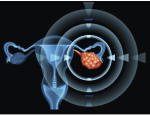
22 March 2024
The National Institute for Health and Care Excellence (NICE) has published new guidance, ‘Ovarian cancer: identifying and managing familial and genetic risk’. The guideline is the product of painstaking work by Professor Ranjit Manchanda, Professor of Gynaecological Oncology, and an expert committee including Dr Adam Brentnall, Senior Lecturer in Biostatistics - both from the Wolfson Institute of Population Health.
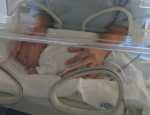
21 March 2024
The Tommy’s National Centre for Preterm Birth Research brings together leading researchers from Queen Mary with colleagues from Imperial College, University College, King's College, and the University of Leeds.

19 March 2024
A five-day course of once-daily inorganic nitrate reduces the risk of a serious complication following a coronary angiogram, in which the dye used causes damage to the kidneys. The treatment was also shown to improve renal outcomes at three months and major adverse cardiac events (MACE) at one year compared to placebo.
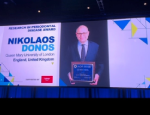
14 March 2024
Professor Donos, Director of Research and Head of Clinical Research at the Institute of Dentistry, was presented with the award - the highest international award in the field of Periodontology - at the 102nd General Session and Exhibition of the International Association for Dental, Oral, and Craniofacial Research (IADR) in New Orleans this week.

13 March 2024
Girls with obesity are more likely to experience pain in their bones, joints, muscles, ligaments or tendons compared with children with a healthy weight, according to research by Queen Mary University of London. The same did not apply to boys.
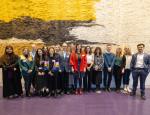
6 March 2024
The Centre for Preventive Neurology, based in the Wolfson Institute of Population Health, marked its official launch this week with a symposium at the Mile End campus.
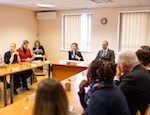
4 March 2024
Queen Mary University of London and partners were honoured to welcome Olena Zelenska, First Lady of Ukraine and key stakeholders from the UK and Ukraine for a roundtable discussion on how to address the complex mental health needs of young people, particularly those affected by war.
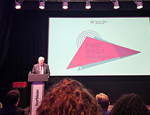
1 March 2024
The Faculty of Medicine and Dentistry gathered at the Barbican last night to recognise those colleagues who had made the most outstanding contributions to scholarship, collegiality, and students over the past year.

1 March 2024
New findings reveal that the body undergoes significant, systematic changes across multiple organs during prolonged periods of fasting. The results demonstrate evidence of health benefits beyond weight loss, but also show that any potentially health-altering changes appear to occur only after three days without food.

29 February 2024
The European Society of Endocrinology (ESE) has announced that the 2024 European Journal of Endocrinology (EJE) Award has been awarded to Li Chan, Professor of Molecular Endocrinology and Metabolism at the Centre for Endocrinology at the William Harvey Institute.

29 February 2024
Jennifer Lau, Professor of Youth Resilience and Co-Director of the Youth Resilience Unit at the Wolfson Institute of Population Health, is heading one of the five research hubs to be established by the Medical Research Council (MRC) as part of a national initiative to improve the diagnosis, treatment, and support for people experiencing severe mental illness (SMI).

29 February 2024
Research led by Professor Cleo Bishop from Queen Mary's Blizard Institute has found a way to put certain types of cancer cell to 'sleep', making them vulnerable to drug treatments.

15 February 2024
An innovative treatment significantly increases the survival of people with malignant mesothelioma, according to results from a clinical trial led by Professor Peter Szlosarek from the Centre for Cancer Cell and Molecular Biology in Barts Cancer Institute.
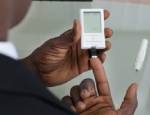
13 February 2024
A new study into health inequalities in the diagnosis of type 2 diabetes amongst Black African, Caribbean, and some South Asian populations has begun in the Wolfson Institute of Population Health.
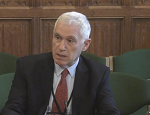
6 February 2024
Professor Peter Hajek from the Wolfson Institute of Population Health told the Parliamentary Health and Social Care Committee today that ‘Alternative products have substantial potential to solve the [smoking] problem for us’.

5 February 2024
Researchers from Queen Mary University of London have found that the molecule RvT4 enhances the body’s natural defences against atherosclerosis (hardening of the arteries) in patients with rheumatoid arthritis.

2 February 2024
Research led by Claudia Cooper, Professor of Psychological Medicine and lead of the Centre for Psychiatry and Mental Health in the Wolfson Institute of Public Health, shows that NIDUS-Family therapy helps people with dementia and their family carers attain their personal goals.

1 February 2024
NHS England have announced a new screening programme to provide genetic testing for tens of thousands of people with Jewish ancestry, who are more likely to carry BRCA gene faults that can increase risk of breast, ovarian, prostate and pancreatic cancers.
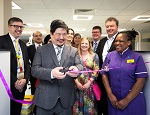
31 January 2024
More residents in north east London will have access to free dental care, thanks to a collaboration between Barts Health NHS Trust, Queen Mary University of London and Community Health Partnerships (CHP).

24 January 2024
As the UK Health Security Agency (UKHSA) declares a national incident following a measles outbreak in the West Midlands, we look at the work of the Clinical Effectiveness Group at Queen Mary, who are helping GPs to protect our local communities in east London.

24 January 2024
A £3m collaboration between researchers at Queen Mary University of London and Barts Health NHS Trust will investigate how the marks on DNA in blood can be used to detect a disease at an early stage.

19 January 2024
Our Faculty has incredible teams and fantastic researchers - this is a quick round up of just some of the awards and honours they received during 2023.
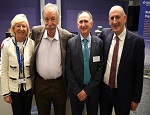
18 January 2024
The launch of the new Centre for Cancer Screening, Prevention and Early Diagnosis (CCSPED) at Queen Mary University of London heralds a step forward for world leading cancer research and education.
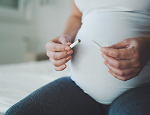
17 January 2024
A new analysis of trial data on pregnant smokers, led by researchers at Queen Mary University of London, finds that the regular use of nicotine replacement products during pregnancy is not associated with adverse pregnancy events or poor pregnancy outcomes.
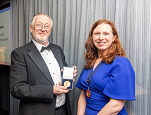
19 December 2023
Professor of Physical Sciences in Relation to Dentistry, Robert Hill, has been awarded the Chapman Medal by the Institute of Materials, Minerals, and Mining. This prestigious award was presented to him for his distinguished research and innovation in the field of biomedical materials.

17 December 2023
Professor Jonathan Grigg, Professor of Paediatric Respiratory and Environmental Medicine at Queen Mary University of London In the face of political rumblings and media attention, the expansion of London’s Ultra Low Emission Zone (ULEZ) has sparked fractious debate around tackling vehicle emissions. But the science speaks for itself – the effects of air pollution on our health (and particularly the health of our children) is devastating.

14 December 2023
Queen Mary University of London’s Faculty of Medicine and Dentistry (FMD) has received an Athena Gold Swan Award, recognising its significant progression and achievements in gender equality in medicine. The FMD is one of seven faculties in the UK to receive a Gold Award.

14 December 2023
Professor Tom Powles, cancer researcher at Queen Mary and physician, is recognised for leading a transformative clinical trial for the treatment of severe bladder cancer.

6 December 2023
Research led by Queen Mary University of London’s Wolfson Institute of Population Health has found that hormone levels, measured through blood tests, are an important indicator of whether post-menopausal women who are most at risk of developing breast cancer will benefit from aromatase inhibitors such as anastrozole.
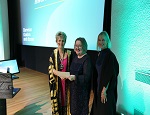
6 December 2023
This prestigious award is given to individuals who have produced distinguished observation and research in clinical medicine. Professor O’Toole is the first woman to receive it since its inception in 1891.

6 December 2023
Centre of the Cell is the first informal science education centre in the world to be located within working biomedical research laboratories. Following a £550,000 refurbishment, the centre is now re-launching its digital immersive STEM Pod with new, state-of-the-art interactive exhibits.

5 December 2023
A collaborative team aiming to prevent heart attacks and strokes in North East London has won the Medicines, Pharmacy and Prescribing Initiative of the Year at the HSJ Awards 2023.
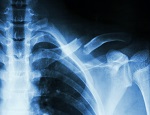
1 December 2023
A major clinical trial led by Queen Mary University of London and the Harvard T.H. Chan School of Public Health has found that vitamin D supplements do not increase bone strength or prevent bone fractures in children with vitamin D deficiency. The findings challenge widely held perceptions relating to the effects of vitamin D on bone health.

1 December 2023
The Sexual Health, HIV All East Research (SHARE) Group – a collaboration between Barts Health NHS Trust and Queen Mary University of London - demonstrates the power of bringing local people into the heart of research about poor sexual health and HIV.
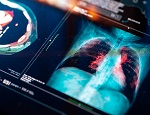
15 November 2023
Professor Fiona Walter, Director of the Wolfson Institute of Population Health, is one of 12 of the country’s leading cancer experts who have today (Wednesday 15 November) published a 10 point plan for the improvement of the UK’s cancer services.
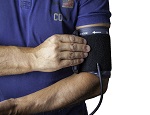
13 November 2023
A new study led by researchers from Queen Mary University of London and Barts Health NHS Trust shows a novel drug called Zilebesiran given as injection under the skin once every three or six months, successfully reduces high blood pressure (hypertension).

13 November 2023
This is a major milestone for the Genes & Health study, which aims to improve health outcomes for people of Pakistani and Bangladeshi descent, who are often underrepresented in genomic studies.

7 November 2023
Clinical trials led by researchers at Queen Mary University of London lead to approval for anastrozole as a breast-cancer preventative drug.

25 October 2023
Every day we consume food and water contaminated with microplastics – tiny pieces of plastic debris resulting from the disposal and breakdown of consumer products and industrial waste. What is this doing to our bodies?

20 October 2023
Queen Mary University of London is delighted to announce that Professor Paul Evans has been appointed as the new Dean for Research Impact for the Faculty of Medicine and Dentistry.
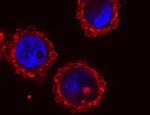
18 October 2023
A new study carried out in mice, led by Queen Mary University of London, has identified cells that drive the spread of pancreatic cancer and discovered a weakness in these cells that could be targeted using existing drugs. This offers a promising new approach for treating pancreatic cancer.
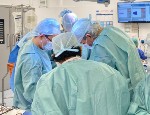
12 October 2023
Major blood loss is experienced by many severely injured patients, and it contributes to the death of more than half of the 4.4 million people who die from trauma every year across the world. It is the most common preventable cause of death in the trauma population.

12 October 2023
Researchers at Queen Mary University of London’s Precision Healthcare Research Institute (PHURI) and the Berlin Institute of Health (BIH) at Charité – Universitätsmedizin Berlin have identified the genetic causes of Raynaud’s phenomenon.
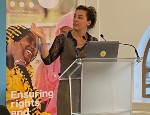
11 October 2023
Only a third of countries that have published plans to limit greenhouse gas emissions and prepare for climate shocks have committed to upholding the sexual and reproductive health rights of women, girls and other marginalised people in these plans, according to a new report from Queen Mary University of London and UNFPA, the UN’s sexual and reproductive health agency.

6 October 2023
Giulia Vivaldi, Statistician and Epidemiologist on the COVIDENCE UK study from Queen Mary University of London, has written for The Conversation on a new study that suggests 'long colds' may exist.

6 October 2023
A new study from Queen Mary University of London, published in The Lancet’s EClinicalMedicine, has found that people may experience long-term symptoms —or ‘long colds’—after acute respiratory infections that test negative for COVID-19.

29 September 2023
“Nitrous oxide (NOX/N2O) can damage your spinal cord and cause serious, permanent disability” - that is the message to young people in Tower Hamlets as part of a programme to highlight the consequences of using the drug.
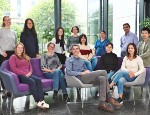
22 September 2023
Queen Mary University of London is delighted to announce the appointment of Professor Nitzan Rosenfeld as the new Director of the Barts Cancer Institute from 1 February 2024.

21 September 2023
The most comprehensive study to date investigating whether e-cigarettes are a gateway into or out of smoking finds that, at the population level, there is no sign that e-cigarettes and other alternative nicotine delivery products promote smoking.
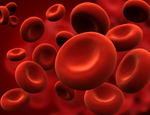
19 September 2023
New research from Queen Mary University of London, published in iScience, shows an increased risk of blood clots in women who have any combination of a particular gene mutation, oestrogen use, or common medical conditions – specifically: obesity, high blood pressure, high cholesterol, and kidney disease.

19 September 2023
New research from Queen Mary University of London and published in the Journal of Hypertension, shows the Government has failed to reduce population salt intakes and consequently improve public health in England since 2014 – putting thousands of lives at risk.

18 September 2023
Professor Arunthathi Mahendran delivered her inaugural lecture ‘What is the vision for the future of medical education... AI of course! That’s Affective Intelligence’ following her appointment as Institute Director for the Institute of Health Sciences Education (IHSE) at Queen Mary University of London.
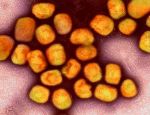
5 September 2023
A new international study led by Queen Mary University of London has shown mpox (formerly known as monkeypox) infections to be less severe among those who are vaccinated or had a previous infection in 2022, underlining the importance and effectiveness of vaccination.
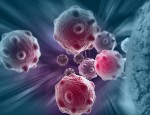
4 September 2023
Scientists from Queen Mary University of London have discovered two new genes that cause head and neck cancer patients to be resistant to chemotherapy, and that silencing either gene can make cancer cells previously unresponsive to chemotherapy subsequently respond to it.
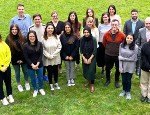
1 September 2023
Queen Mary University of London is proud to announce a new Centre for Preventive Neurology (CPN), based in the Wolfson Institute of Population Health (WIPH). This will be the only Centre for Preventive Neurology in the UK.
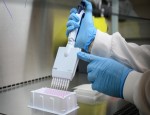
30 August 2023
Dr Emma Magavern, from Queen Mary’s William Harvey Research Institute, has written for The Conversation on new research around clopidogrel’s effectiveness.

18 July 2023
In the next 20 years, there will be a substantial global rise in multimorbidities, with consequences for patients, carers, healthcare systems and society. Addressing this challenge requires a shift in the prevailing clinical, educational, and scientific thinking and organisation.

17 July 2023
On Thursday 13 July, 22 students at Queen Mary University of London’s graduated from the at the Cittadella in Gozo.

5 July 2023
Queen Mary University of London recently partnered with the Odessa National Medical University in Ukraine. As part of this partnership, students will be offered a six-week clinical attachment at the Barts Health Hospital.

17 June 2023
Queen Mary University of London Professor of Haemostasis and Thrombosis, Professor John Pasi, has been awarded an MBE in The King’s Birthday Honours List 2023.

11 May 2023
Developing better connections between ethnic minority patients and health care professionals could drive more positive health care experience for ethnic minority patients, researchers have found.
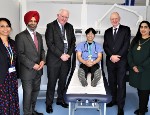
4 May 2023
This week Queen Mary University of London held the opening ceremony for their new satellite campus for the teaching of medicine in the heart of Ilford.
.png)
25 April 2023
Genes & Health, a pioneering genetic research programme that aims to improve health for British Bangladeshi and British Pakistani communities, has started 2023 celebrating new milestones.

21 April 2023
UK Biobank study suggests a greater risk for blood and breast cancer survivors.

18 April 2023
As people around the world unite to mark Earth Day (22 April) and call for a greener future, learn about some of the Queen Mary academics working to protect our planet.
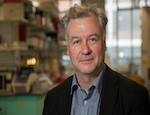
16 April 2023
An innovative therapy provides new hope to patients with malignant mesothelioma – a rare but rapidly fatal type of cancer with few effective treatment options – according to results presented by Queen Mary researcher at the American Association for Cancer Research Annual Meeting.

30 March 2023
Philip Eaton, Professor of Cardiovascular Biochemistry at Queen Mary University of London, has been awarded €2.5 million by the European Research Council (ERC) to help tackle cardiovascular disease.
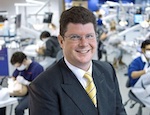
27 March 2023
Queen Mary University of London is delighted to announce the appointment of Professor Chris Tredwin as its new Dean of Dentistry and Director of the Institute of Dentistry.

16 March 2023
Professor Arturo Reyes-Sandoval, Director General (Rector) of the National Polytechnic Institute (IPN), one of Mexico’s largest and most prestigious universities, has been awarded an honorary Doctor of Science (DSc) degree from Queen Mary University of London.
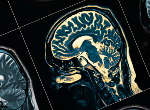
3 March 2023
Queen Mary and icometrix have together been awarded the prestigious AI Award in Health and Care by the National Institute for Health and Care Research (NIHR).

24 February 2023
New research has identified hundreds of proteins that might contribute to the onset of common, chronic metabolic diseases such as type 2 diabetes, and consequently pathways to potential treatments.
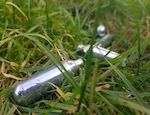
23 February 2023
Recommendations from research published today on the diagnosis and treatment of spinal cord damage caused by nitrous oxide abuse have been simultaneously adopted as official clinical practice guidelines by the Association of British Neurologists.

21 February 2023
An international collaboration of clinicians, led by Queen Mary University of London and the Fight Infections Foundation/Hospital Germans Trias of Barcelona, has identified a severe, necrotising form of mpox with a high mortality in immunosuppressed people living with HIV.

14 February 2023
Research led by Queen Mary University of London suggests that nutritional interventions used to tackle child undernutrition in lower and middle-income countries should target gut microbiome development, rather than just human nutritional needs, to more effectively improve child growth and development.

10 February 2023
We’re delighted to announce that Grant Bourhill will be the new Managing Director for Barts Life Sciences.

9 February 2023
A global review of left ventricular non-compaction has called for future efforts to better understand the features of excessive trabeculation in the heart.

9 February 2023
Research from Queen Mary University of London is the first to focus on the experiences of parents and their children who were categorised as ‘overweight’ and ‘very overweight’ by England’s National Measurement Programme (NCMP), an intervention designed to tackle childhood obesity. The results suggest that the current programme may be at risk of harming the children it aims to help.

6 February 2023
The United Nations’ International Day of Women and Girls in Science (11 February) highlights the vital work of female scientists and promotes their equal access to participate in scientific communities.

6 February 2023
Taking vitamin D supplements does not reduce the risk of asthma attacks in children or adults, according to an updated Cochrane review published today.
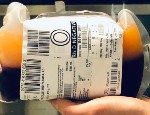
1 February 2023
A new blood product combining red blood cells and plasma in one bag is associated with a better survival from a penetrating major trauma injury, a new study involving Queen Mary University of London has found.

18 January 2023
Queen Mary University of London and the Embassy of Hungary in London mark the 204th birthday of Dr Ignác Semmelweis, the Hungarian obstetrician responsible for identifying the cause of puerperal fever.

16 January 2023
Doctors at Queen Mary University of London and Barts Hospital, and Cambridge University Hospital, have led research using a new type of CT scan to light up tiny nodules in a hormone gland and cure high blood pressure by their removal. The nodules are discovered in one-in-twenty people with high blood pressure.

9 January 2023
Research led by Queen Mary University of London, King’s College London and the Francis Crick Institute has identified a protein that makes melanoma, the most serious type of skin cancer, more aggressive by giving cancer cells the ability to change the shape of their nucleus – a characteristic which allows the cells to migrate and spread around the body.
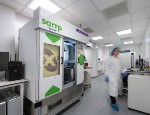
5 January 2023
Researchers from Queen Mary University of London’s Faculty of Medicine and Dentistry (FMD), including Dr Jane Sosabowski and Professor Kairbaan Hodivala-Dilke at Barts Cancer Institute (BCI), have received funding from the University and Barts Charity for a new piece of research equipment that will accelerate radiation research at Queen Mary.
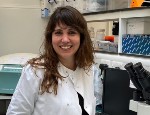
13 December 2022
Collaboration will leverage Envisagenics' SpliceCore® AI platform for expanded discovery and research in hematopoietic cancers
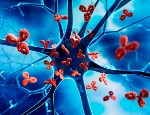
13 December 2022
Richard David Leslie, Professor of Diabetes and Autoimmunity at Queen Mary University of London, has written for the Conversation on stiff person syndrome.
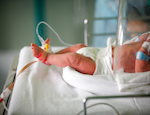
13 December 2022
The UK Government has today (13 December) announced the launch of a Newborn Genomes Programme, a new research study that will explore the effectiveness of using whole genome sequencing to detect rare diseases in newborn babies.

9 December 2022
Two papers from Queen Mary University of London have been selected by experts in genomic medicine in the ten most important advances in applying genomic medicine to clinical care in 2022.

7 December 2022
Scientists link dozens of new genome sites to coronary artery disease risk and pioneer a powerful method for illuminating the biological roots of common disease.

5 December 2022
Eight representatives from Queen Mary University of London attended the United Nations Climate Conference (COP27) in Egypt, helping to advance the implementation of effective climate change policies.

2 December 2022
There has been an increase in neighbourhoods in north east London where fewer than 60% of children receive their first MMR vaccine on time following the pandemic, according to research from Queen Mary University of London.

24 November 2022
£50 blood test could improve diagnosis of myocarditis and help patients get lifesaving treatment earlier
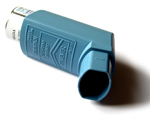
24 November 2022
Adults with asthma had, at one point, an approximately doubled risk of a severe asthma attack after Covid-19 restrictions were relaxed in the UK, according to new research from Queen Mary University of London*, funded by Barts Charity.
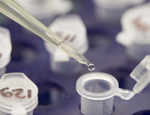
21 November 2022
VacV Biotherapeutics (VacV), a cancer immunotherapy company and Queen Mary spin-out developing innovative viral-based therapies, has advanced its promising pipeline of pre-clinical treatments after strong testing results thus far.

17 November 2022
An international collaboration of clinicians, established and led by Professor Chloe Orkin at Queen Mary University of London, has published the first case study series of monkeypox infection during the 2022 outbreak in cisgender (cis) and transgender (trans) women and non-binary individuals assigned as female at birth.

16 November 2022
This new investment in our unique learning space will ensure that Centre of the Cell continues to inspire young people in East London and beyond.

16 November 2022
With the rapid rise in the growth and professionalism of women’s football in the UK, more research is needed into gender-specific technology to help elite female footballers perform at their best, according to research led by Queen Mary University of London and co-authored by England captain Leah Williamson.

10 November 2022
New research led by Queen Mary University of London’s Professor Claudia Langenberg, newly appointed Director of the Precision Healthcare University Research Institute, undertaken in her prior roles at the Berlin Institute of Health and University of Cambridge, has identified a three-protein signature in the blood that can improve detection of impaired glucose tolerance, a form of prediabetes.

10 November 2022
A new study co-led by Queen Mary University of London’s Professor Claudia Langenberg, newly appointed Director of the Precision Healthcare University Research Institute, undertaken in her prior roles at the Berlin Institute of Health at the Charité (BIH) and University of Cambridge, and Professor Adam Butterworth at the University of Cambridge, has discovered more than 300 regions in the genome that contribute to a person’s ‘chemical fingerprint`.

10 November 2022
Researchers from Barts Cancer Institute at Queen Mary University of London have identified a new channel of communication through which non-cancerous cells drive the invasion of cancer cells in pancreatic cancer.

7 November 2022
A new drug called Baxdrostat has been shown to significantly reduce high blood pressure (hypertension) in patients who may not respond to current treatments for the condition, according to results from a phase II trial led jointly by a Queen Mary University of London researcher and colleagues at CinCor Pharma, USA.

7 November 2022
Queen Mary University of London’s engagement and expertise will be out in force at Sharm el-Sheik, Egypt, as world leaders, non-government organisations and activists gather for the UN Climate Conference known as COP27.

4 November 2022
A collaborative study in Nature Genetics has led to largest and most comprehensive analysis of the entire genomic landscape of the most common type of blood cancer called chronic lymphocytic leukaemia (CLL), as part of Queen Mary's 100,000 Genome Project.
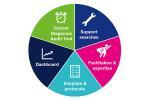
1 November 2022
The Clinical Effectiveness Group (CEG) has launched a Cancer Toolkit to GP practices across North East London. It includes a clinical template, patient record searches, a data dashboard and a new Cancer Diagnosis Audit Tool. Together, the resources will support GP practice teams to address inequalities and deliver timely cancer diagnosis and care for everyone who needs it.

26 October 2022
Professor Victoria Bird, a researcher at Queen Mary University of London (Unit for Social and Community Psychiatry), has been awarded a £7m grant from the National Institute for Health and Care Research (NIHR) to develop a new Global Health Research Centre with partners across Latin America.
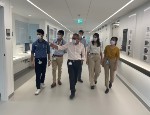
25 October 2022
Cleveland Clinic London has begun training final year medical students from Queen Mary University of London’s Faculty of Medicine and Dentistry in an education collaboration that will help train the next generation of medical professionals.

21 October 2022
Frances Balkwill, Irene Leigh and Claudia Langenberg have been named in research.com’s top 100 female scientists in the UK.

12 October 2022
An international team of researchers, including experts from Queen Mary University of London and the GIANT consortium, have identified over 12,000 genetic variants that influence a person’s height.

12 October 2022
Professor Fran Balkwill from Barts Cancer Institute at Queen Mary University of London has received a UK Research and Innovation (UKRI) Frontier Research grant of over £2 million to investigate the most effective ways to remodel cancers to enhance the effects of immunotherapy.
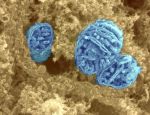
5 October 2022
Scientists have shown that in one in every 4,000 births, some of the genetic code from our mitochondria – the ‘batteries’ that power our cells – inserts itself into our DNA, revealing a surprising new insight into how humans evolve.

4 October 2022
Children and young adults* with Down Syndrome are four times more likely to be diagnosed with diabetes, according to new research led by Queen Mary University of London and King’s College London.

3 October 2022
A study of nearly 600,000 people in England shows that suicide risk in the first three months following a dementia diagnosis for patients aged under 65 is nearly 7 times higher than in patients without dementia.

27 September 2022
Healthcare professionals working during the coronavirus (COVID-19) pandemic are up to 3.3-times more likely to be burned out compared to non-healthcare professionals, despite the rates of mental health issues being similar, according to new research led by Queen Mary University of London.

23 September 2022
A new team of Deputy Directors of Clinical Research has been appointed jointly by Queen Mary University of London and Barts Health NHS Trust to support the work of recently appointed Director of Clinical Research, Professor Rupert Pearse.
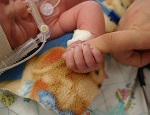
20 September 2022
Dr Heather McMullen, Lecturer at Queen Mary's Centre for Public Health & Policy, has co-written for The Conversation on her research into Birthstrike and its flaws before the campaign disbanded in 2021.
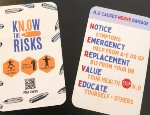
20 September 2022
Medical students at Queen Mary University of London have launched a public health campaign to educate teenagers on the neurological risks of using nitrous oxide.

19 September 2022
New research, co-led by Dr Benjamin Werner from Barts Cancer Institute and Dr Weini Huang from the School of Mathematical Sciences at Queen Mary University of London, indicates that the circular DNA structures present in around a third of cancers lead to extensive genetic diversity within tumours, giving them the ability to adapt rapidly to environmental stress and resist targeted cancer treatment.

12 September 2022
James Brunton Badenoch from Queen Mary University of London has written for The Conversation on a new study on the effects of monkeypox.
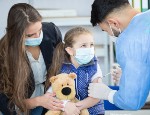
6 September 2022
Queen Mary’s Clinical Effectiveness Group (CEG) is collaborating with the NHS in North East London, providing intelligence to inform the logistics of the immunisation campaign and software tools to ease the burden for GPs.

5 September 2022
We are delighted to announce the appointment of Professor Claudia Langenberg as the Director of Queen Mary’s new Precision Healthcare University Research Institute (PHURI).

22 August 2022
Redbridge Council has this week announced that Queen Mary University of London will be opening a satellite campus for the teaching of medicine in the heart of Ilford.
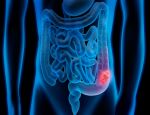
17 August 2022
Research suggests that a solution for clearing the backlog of patients in the bowel cancer screening programme awaiting colonoscopy appointments is to raise the blood level on the test that triggers a colonoscopy invitation.
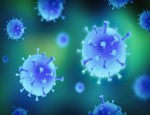
9 August 2022
An international collaboration of human geneticists involving researchers at Queen Mary University of London and the Genes & Health study has identified 11 new genomic regions that influence the severity of COVID-19 disease.
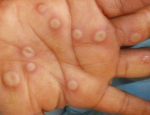
3 August 2022
Professor Chloe Orkin has written for The Conversation on monkeypox, discussing how it spreads, public health messaging, and the importance of vaccinations.

21 July 2022
An international collaboration of clinicians led by Queen Mary University of London has identified new clinical symptoms in people infected with monkeypox in the largest case study series to date.
-Breast-screening-150.jpg)
19 July 2022
The NHS Breast Screening Programme in England has shown little, if any, evidence of overdiagnosis according to a new study from Queen Mary University of London and King’s College London researchers, funded by the National Institute for Health and Care Research.

7 July 2022
Interim data from a community-based monkeypox (MPXV) survey demonstrates an overwhelming demand for monkeypox vaccine and vaccine-roll-out, especially amongst those who consider themselves to be at risk-of MPXV.
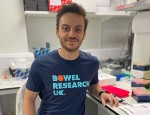
5 July 2022
Kane Smith, a first-year PhD student who grew up in the care system, has created and is leading a new internship initiative at Queen Mary University of London for BAME care-leavers in Tower Hamlets, providing vital research skills and fuelling their passion for science and health.

1 July 2022
Professor Sir Mark Caulfield, Vice Principal for Health at Queen Mary University of London has received an honorary degree from Queen’s University Belfast.
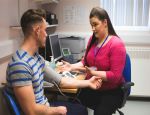
29 June 2022
Researchers at Queen Mary University of London found that only half of patients regularly see the same GP, despite increasing evidence that continuity of care between GPs and patients leads to better outcomes.
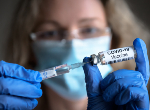
28 June 2022
A major clinical trial, involving researchers from Queen Mary University of London and led by the University of Nottingham, has found that by interrupting the treatment of vulnerable people on long-term immune suppressing medicines for two weeks after a COVID-19 booster vaccination, their antibody response to the jab is doubled.

22 June 2022
Barts Chairty have invested over £3.1m in funding to further develop the Clinical Trials Unit at Barts Health NHS Trust and Queen Mary University of London.

21 June 2022
An artwork by Queen Mary University of London cancer researcher, Professor Tyson Valentine Sharp, has been selected for display in Room VIII at the Royal Academy of Art’s prestigious Summer Exhibition.
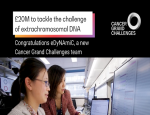
16 June 2022
Two researchers from Queen Mary University of London are part of a new world-class team of researchers that has been selected to receive a £20m Cancer Grand Challenges award.
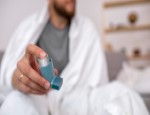
15 June 2022
Researchers at Queen Mary University of London have found that more than a quarter of asthma patients are still over-using inhalers intended for rapid relief of symptoms.

14 June 2022
People infected with the Omicron variant show poor immune boosting against future SARS-CoV-2 infection, according to the findings of a study published in the journal Science. The research team, which included researchers from Queen Mary University of London, looked at how the complex patchwork of immunity in the population following vaccination and previous infection influences our future protection against SARS-CoV-2.

13 June 2022
Researchers from Queen Mary have been awarded £2.67 million in funding to conduct innovative research in the field of metabolism.
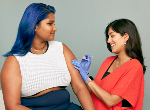
8 June 2022
Professor Chloe Orkin, Clinical Professor of HIV Medicine at the Blizard Institute, is named as a collaborator on a new project that aims to develop policy on how sex and gender are considered in medical research in the UK.

1 June 2022
Professor Mary Collins, the new Director of Queen Mary University of London’s Blizard Institute, has ambitious plans for expanding our world-leading multidisciplinary research.
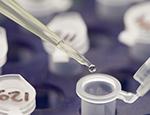
30 May 2022
Dr Sarah McClelland of Queen Mary University of London is part of a collaborative project that has been awarded £1.2 million in funding from the Medical Research Council (MRC) to investigate the mechanisms leading to cancer development in cells infected with human papillomavirus (HPV).

20 May 2022
Dr Dipesh Gopal from Queen Mary's Wolfson Institute of Population Health has written for The Conversation giving advice for young people with long Covid.
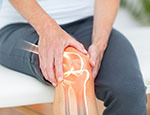
19 May 2022
New research from Queen Mary University of London, published in Nature Medicine, has shown that molecular profiling of the diseased joint tissue can significantly impact whether specific drug treatments will work to treat rheumatoid arthritis (RA) patients.

16 May 2022
E-cigarettes are just as safe as nicotine patches for pregnant women and may help more women stop smoking, new research from Queen Mary University of London suggests. The study, which was published in Nature Medicine, is the first to examine the safety and efficacy of e-cigarettes among pregnant smokers.
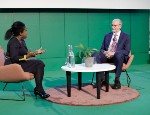
9 May 2022
Professor Sir Andrew Pollard, a Queen Mary alumnus who leads the team responsible for developing the Oxford-AstraZeneca vaccine, spoke at the latest Alumni Angles series.

4 May 2022
Researchers from Queen Mary University of London have combined evidence from 110 previous Covid-19 studies and found that unvaccinated individuals who contract the virus when they already have high blood pressure, diabetes or major heart damage are up to nine times more likely to suffer serious outcomes - including death, lung failure, admission to intensive care and kidney problems.

27 April 2022
Scientists from Queen Mary University of London and Barts Health NHS Trust are trialling an investigational medication for high blood pressure (hypertension) in a clinical study which will give patients an injection of the medication every 6 months.
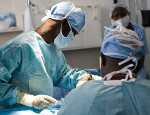
19 April 2022
A team of Queen Mary and African researchers have successfully secured almost £3 million in funding for a new research programme led by Queen Mary’s Professor Rupert Pearse and Professor Bruce Biccard from the University of Cape Town, South Africa.

4 April 2022
Dr Jessica Potter from Queen Mary's Faculty of Medicine and Dentistry has co-written for The Conversation on Russia's invasion of Ukraine threatening the fight against tuberculosis.

30 March 2022
As the new Institute Director for the Institute of Health Sciences Education (IHSE) at Queen Mary, Arunthathi brings a wealth of expertise and knowledge.

29 March 2022
Testing patients for genetic variations that affect how their body will respond to common medicines must be integrated fully, fairly and swiftly into the NHS, according to a report published today. The report is by the British Pharmacological Society, whose President-elect is Queen Mary University of London’s Vice Principal for Health Professor Sir Mark Caulfield, and the Royal College of Physicians. Dr Emma Magavern, a clinician at Queen Mary, is also one of the report’s co-authors.
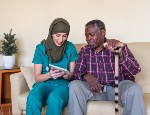
25 March 2022
Dr Dipesh Gopal from Queen Mary University of London’s Faculty of Medicine and Dentistry will be involved in a £119,634 project that will reveal the lived experiences of people with long COVID specifically in ethnic minority groups.

21 March 2022
qMIDS, the world’s first rapid oral cancer test, has been developed by Queen Mary University of London and an international team of researchers. It has the potential to relieve pressure on the NHS and may improve the early detection of oral cancer.

15 March 2022
Genes & Health study, a project led by Queen Mary University of London, has hit a key milestone with 50,000 research volunteers now participating nationally to help address the under-representation of South Asian communities in genetic research.

8 March 2022
Researchers from Queen Mary University of London have been selected by UK Research and Innovation (UKRI) to create new networks aimed at transforming ageing research in the UK.
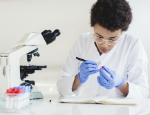
7 March 2022
Queen Mary University of London and Barts Health NHS Trust have received £1 million in funding from the National Institute for Health Research (NIHR) to integrate five Clinical Research Facilities (CRFs) and 18 disease-specific research groups into a combined CRF team. The team will operate at various sites within Barts Health NHS Trust and Queen Mary University of London across east London.
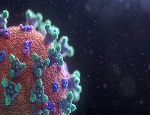
7 March 2022
Queen Mary University of London has contributed to the world’s largest study of the genetics of critical Covid-19, involving more than 57,000 people, and revealed fresh details about some of the biological mechanisms behind the severe form of the disease.

7 March 2022
Hearing loss and epilepsy are early features of Parkinson’s, according to pioneering new research from Queen Mary University of London – the first UK study of the condition in such a diverse population, published today in JAMA Neurology.
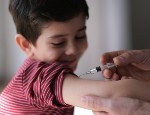
2 March 2022
By Carol Dezateux, Professor of Clinical Epidemiology and Health Data Science at the Clinical Effectiveness Group (CEG), Queen Mary University of London
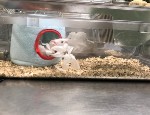
1 March 2022
Researchers from Queen Mary University of London have found that socially housed mice have healthier immune systems than those who are socially isolated – who are more susceptible to longer term issues due to an altered immune system that comes from living alone.

23 February 2022
New research led by Queen Mary University of London and Barts Health NHS Trust suggests that biochemical analysis of brain tissue could be used for diagnosis and prognosis of severe traumatic brain injury (TBI) to improve patient outcomes and save billions in future clinical trials.
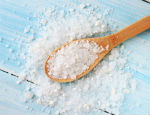
21 February 2022
Last October, the U.S. Food and Drug Administration (FDA) finalised a set of short-term, voluntary goals for lowering salt levels in foods—five years after they were proposed in 2016. A new study published today in Hypertension—a journal published by the American Heart Association – involving Queen Mary University of London researchers shows the delay cost thousands of lives and concluded that if the food and restaurant industries would have adopted the lower salt levels presented in FDA’s proposed two-year and 10-year targets on schedule, as many as 265,000 lives could have been saved between 2017 and 2031.
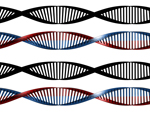
17 February 2022
Scientists have found whole genome sequencing (WGS) can quickly and accurately detect the most common inherited neurological disorders – something previously thought to be impossible – with the results supporting the use of WGS as a standard diagnostic tool within routine clinical practice.
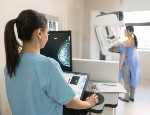
11 February 2022
A new study led by Queen Mary University of London, published in the Journal of Medical Screening, has found that using a longer interval between screens but a higher uptake in the NHS screening programme for breast cancers could detect more cancers early than with the current interval and uptake rates. For example, a four year interval with 62% uptake would lead to 295 screen detected cancers per 10,000 invited, compared with 222 cancers with a 3-year round.

11 February 2022
People from ethnic minority groups and socioeconomically deprived areas face higher risks of developing dementia, according to new research from Queen Mary University of London published today in The Lancet Regional Health Europe.

10 February 2022
A new study published in The BMJ and carried out by researchers funded by the National Institute for Health Research (NIHR) at Queen Mary University of London and The George Institute for Global Health at Peking University Health Science Center, has shown that schoolchildren can help their families to successfully reduce salt intake via smartphone app-based learning.

10 February 2022
The study by Queen Mary University of London and the Budapest Semmelweis University has shown that having up to three cups of coffee a day is associated with a protective effect on heart health. It is also associated with a reduction in the overall mortality rate and the risk of stroke. The results have recently been published in the European Journal of Preventative Cardiology.

10 February 2022
An immunotherapy drug called ‘pembrolizumab’ has been shown to significantly reduce disease recurrence in patients with the most aggressive type of breast cancer, according to results from a phase III clinical trial led by Queen Mary University of London and Barts Health NHS Trust.

3 February 2022
The British Pharmacological Society has announced the appointment of Queen Mary University of London’s Professor Sir Mark Caulfield as its new President-elect.

2 February 2022
A new study involving Queen Mary University of London researchers has explored how preprints compare with their published versions.

1 February 2022
Professor Manu Raj Mathur will join Queen Mary University of London’s Centre for Dental Public Health and Primary Care on 1 February 2022 as Professor of Dental Public Health.

27 January 2022
Dr Nick Prior, NHS psychiatrist and former student at Queen Mary University of London has launched the ‘Minderful’ app to make mental fitness accessible and engaging.

25 January 2022
New research by Action on Salt from Queen Mary University of London has revealed that two-thirds of all chilled sliced meats including sliced ham, chicken, corned beef and salami sold by leading grocery retailers are dangerously high in salt – with one in three failing to meet the national salt reduction targets.
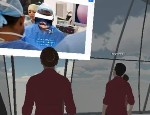
19 January 2022
A group of Queen Mary third year medical students received the lecture in the virtual reality (VR) world, led by Professor Shafi Ahmed.

18 January 2022
Queen Mary’s Institute of Dentistry recently hosted a virtual Q&A session with England’s Deputy Chief Medical Officer, Professor Sir Jonathan Van-Tam.

14 January 2022
A recent study shows that optimising medicines for high blood pressure and cardiovascular disease patients living in East London could reduce lifetime hospital costs and prevent cardiovascular events such as heart attacks and strokes.
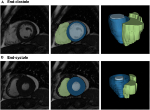
22 December 2021
A new study led by researchers at Queen Mary University of London suggests that certain risk factors for heart disease are linked to common changes in the structure and appearance of the heart.

15 December 2021
Treatments used to help people with multiple sclerosis (MS) manage their condition can reduce the effectiveness of Covid-19 vaccines, according to research from Cardiff University and Queen Mary University of London
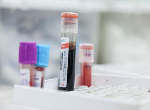
14 December 2021
Researchers from Queen Mary University of London are helping to develop trauma frontline professionals as part of an international collaboration with Thailand’s Thai Siriraj Medical School and Mahidol University.

8 December 2021
A new study, co-led by Queen Mary University of London, has made the case for more diversity in genetic research.

7 December 2021
A molecule found in high quantities in fish and other seafood could play a role in protecting and improving cognitive function in the brain, a new study suggests.
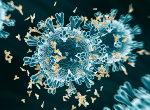
3 December 2021
New research shows that the first SARS-CoV-2 spike protein a person encounters, be it by vaccination or infection, shapes their subsequent immune response against current and future variants.

3 December 2021
A team of academics from Queen Mary University of London have successfully secured funding for a major research project led by Professor Andrew Prendergast from Queen Mary’s Blizard Institute and Dr Bwakura-Dangarembizi from the University of Zimbabwe.
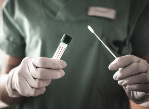
2 December 2021
New research from Queen Mary University of London sheds new light on the risk factors for developing Covid-19.

30 November 2021
A recent study, involving researchers from Queen Mary University of London, provides further evidence that lower salt consumption and higher potassium intake is linked with lower risk of strokes and heart disease.
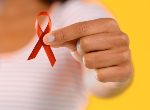
30 November 2021
As we mark 40 years since the first reported cases of HIV-related illnesses and deaths, we can see that HIV treatment and care has come a long way since the times when being diagnosed with HIV was a death sentence.

29 November 2021
The Health Advances in Underrepresented Populations and Diseases (HARP) PhD Programme focuses research towards people and diseases that have traditionally been underrepresented in healthcare studies.

17 November 2021
A clinical trial has found people prefer receiving information on the 5:2 diet than standard GP weight management advice despite both interventions achieving similar modest weight loss results.
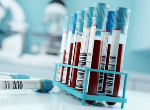
11 November 2021
Research conducted at Queen Mary University of London, indicates that regular blood tests before and during chemotherapy for prostate cancer can detect whether or not a patient is resistant or developing resistance to treatment with a drug called docetaxel.

10 November 2021
A world-first scientific study, published today in the New England Journal of Medicine, has shown that whole genome sequencing (WGS) can uncover new diagnoses for people across the broadest range of rare diseases investigated to date and could deliver enormous benefits across the NHS.

10 November 2021
Next generation vaccines for Covid-19 should aim to induce an immune response against ‘replication proteins’, essential for the very earliest stages of the viral cycle, according to a new study involving Queen Mary University of London researchers, Professor Aine McKnight, Dr Corinna Pade and Joseph Gibbons.

8 November 2021
A new mobile phone app, ‘GrowthMonitor’, places the accurate measurement of children’s height in the hands of parents and carers.
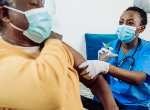
5 November 2021
A new study involving Queen Mary University of London suggests patient-related factors, healthcare providers, health systems and policy may facilitate access or barriers to vaccination.

4 November 2021
Professor Carol Dezateux and Nicola Firman from Queen Mary University of London have co-written a piece for The Conversation on a recent study published in The Lancet, which found that the HPV vaccine cuts cervical cancer cases by nearly 90 per cent, and their research on the takeup.
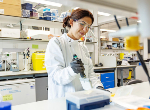
12 October 2021
Queen Mary University of London are partnering with Exscientia, MSD and Heptares Therapeutics to deliver a new doctoral training programme that will train researchers to apply cutting-edge AI expertise to the discovery and development of new drugs.

25 September 2021
Queen Mary has received funding for three fellowships in primary care as part of our membership in the National Institute of Health Research (NIHR) School for Primary Care Research (SPCR).
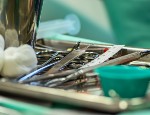
24 August 2021
A new study from a team of researchers, including from Queen Mary University of London, has provided valuable insight into reducing death following surgery in African hospitals. It found that intervention methods alone, such as having nurses conduct more regular checks of patients or placing patients in a higher care ward, are not enough to bring down the number of deaths.

19 August 2021
Progress to reformulate and reduce added sugar in yogurts with child friendly packaging (and in line with government guidance) is disappointingly sluggish, according to research carried out by Action on Sugar based at Queen Mary University of London.
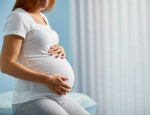
13 August 2021
An international study, led by researchers from Queen Mary University of London and St Bartholomew’s Hospital, has found a unique pair of gene variants that causes sudden onset high blood pressure in pregnant women.

9 August 2021
Recent Dentistry graduates from Barts and The London School of Medicine and Dentistry, Queen Mary University of London, have won all three prestigious University of London Gold Medal 2021 awards.

4 August 2021
In this blog post, Dr Jahnavi Daru, Clinical Lecturer in Obstetrics and Gynaecology, discusses her latest research showing the vast differences in iron treatments that are available for pregnant women with anaemia. Reflecting on her current experience as a pregnant woman and obstetrician, she highlights the need for open and transparent discussions between patient and clinician on the range of treatments that may be available.
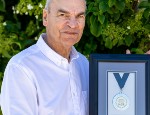
21 July 2021
The International Association for Dental Research (IADR) has announced Professor David Williams, Barts and The London School of Medicine and Dentistry, Queen Mary University of London, as the 2021 recipient of the IADR Gold Medal Award.
.jpg)
20 July 2021
This Eid, Social Action for Health and Queen Mary University of London are calling on Bangladeshi and Pakistani communities to take part in world’s largest genetics study into people of their heritage, to help scientists understand and treat the causes and consequences of poor health.

19 July 2021
Researchers from the Genes & Health programme at Queen Mary University of London have received significant funding for an international collaborative project to better understand why some people develop multiple chronic health conditions.
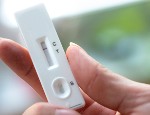
14 July 2021
A new study by researchers at Queen Mary University of London, University of Oxford, Institute for Advanced Studies, Vienna, and the Medical University of Graz, has found that lateral flow tests detect Covid-19 with similar accuracy to laboratory-based PCR tests, providing they are used at the onset of infection and soon after symptoms start.
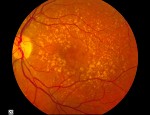
13 July 2021
A team of scientists, including researchers from Queen Mary University of London, has discovered that the most common form of adult blindness is probably caused by a failure of at least one of five proteins to regulate the immune system.

12 July 2021
A new HIV research centre is being set up by Queen Mary academics to address health inequalities and improve quality of life for everyone affected by HIV.
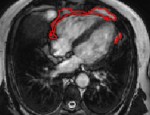
7 July 2021
A team led by researchers from Queen Mary University of London has developed a new artificial intelligence (AI) tool that is able to automatically measure the amount of fat around the heart from MRI scan images.
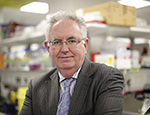
1 July 2021
Professor Sir Mark Caulfield has been announced as the new Chief Executive Officer of Barts Life Sciences.
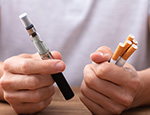
30 June 2021
E-cigarettes are more effective than nicotine replacement treatments in achieving long term smoking reduction and cessation, according to the results of a clinical trial by Queen Mary University of London.
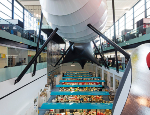
23 June 2021
A new cancer centre is being set up to improve survival rates and quality of life for thousands of people affected by squamous cancer – a specific type of cancer which affects the mouth, skin, lungs and cervix.

18 June 2021
The first nationwide study of the impact of COVID-19 on surgery at NHS hospitals has revealed that more than 1.5 million operations were cancelled or postponed during the pandemic and surgical patients who became infected with COVID were five times more likely to die.
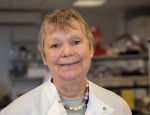
16 June 2021
Professor Fran Balkwill OBE, Professor of Cancer Biology at Queen Mary University of London, has been announced as the 2021 winner of the Beetlestone Award which recognises leadership and legacy in the field of informal science learning.

14 June 2021
According to a seven year study led by researchers at Queen Mary University of London, involving more than three million people, only 8 per cent of those at greater risk of heart disease who would benefit from taking statins, were prescribed them.

9 June 2021
Researchers have developed an algorithm that could ultimately enable smart watches to alert wearers to potentially deadly changes in their heart rhythm. The research, presented at the British Cardiovascular Society conference, could help to identify people at risk of sudden death.
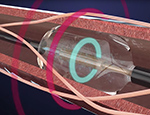
7 June 2021
A minimally-invasive procedure that targets the nerves near the kidney has been found to significantly reduce blood pressure in hypertension patients, according to the results of a global multicentre clinical trial led in the UK by researchers at Queen Mary University of London and Barts Health NHS Trust.
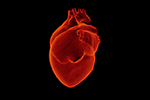
14 May 2021
People with healthier heart structure and function appear to have better cognitive abilities, including increased capacity to solve logic problems and faster reaction times, according to research led by Queen Mary University of London and the Radcliffe Department of Medicine at University of Oxford.
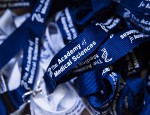
12 May 2021
Three scientists from Queen Mary University of London have today been elected to the highly prestigious Academy of Medical Sciences Fellowship.
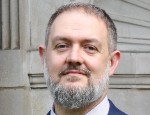
11 May 2021
To mark Mental Health Awareness Week, Communications Manager Joel Winston speaks to Dr Mark Freestone, Reader in Mental Health at Queen Mary University of London, about 'post-lockdown anxiety' and how people can manage their worries about socialising and returning to work.
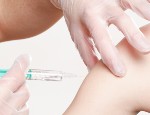
7 May 2021
Queen Mary researchers have been working with schools to design resources to help young people better understand immunisation programmes.
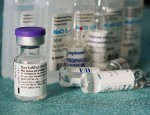
30 April 2021
A single dose of vaccine boosts potent responses against SARS-CoV-2 coronavirus variants in those with previous COVID-19, a study has found.

29 April 2021
This piece by Dr Jonathon Coates, Postdoctoral Researcher at Queen Mary's William Harvey Research Institute, was originally published in The Conversation and discusses the advantages that draft scientific papers ('preprints') have brought to COVID-19 research during the pandemic.
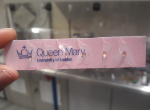
28 April 2021
A new smell test developed by Queen Mary University of London researchers has been found to be easy to use in patients with Parkinson’s disease, and could also be helpful in diagnosing COVID-19 in the broader population.
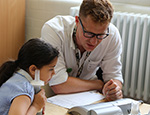
22 April 2021
Queen Mary University of London researchers have been awarded a £300,000 grant to study the impact of air pollution on children’s brain function and mental health.
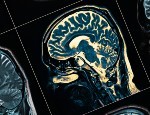
15 April 2021
A 3D structure reveals how a unique molecular switch in our brain causes us to feel full – and may help develop improved anti-obesity drugs.

15 April 2021
An observational study by Queen Mary University of London researchers in nearly 20,000 individuals has found that greater intake of red and processed meat is associated with worse heart function.
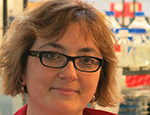
12 April 2021
Scientists from Queen Mary University of London, funded by the charity Brain Tumour Research and the Medical Research Council, have found a new way to starve cancerous brain tumour cells of energy in order to prevent further growth.
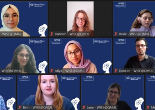
9 April 2021
For International Women’s Day, Queen Mary University of London's WISE@QMUL group hosted a two-day virtual conference to celebrate women in Science, Technology, Engineering, Maths and Medicine (STEMM).

7 April 2021
A new study led by Queen Mary University of London researchers has found that during the early phase of the pandemic, approximately 35 per cent of the COVID-19 scientific literature was shared as preprints – freely available manuscripts that are shared prior to peer-review in a journal.
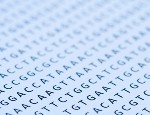
26 March 2021
Scientists from Queen Mary University of London have helped identify new genetic clues in people who’ve had small and often apparently ‘silent’ strokes that are difficult to treat and a major cause of vascular dementia.

25 March 2021
The NIHR (National Institute for Health Research) has announced the fourth phase of the School for Primary Care Research (SPCR), which now involves Queen Mary University of London, and a new focus on supporting the full spectrum of primary care research and building research capacity.

23 March 2021
A large proportion of dementia deaths in England and Wales may be due to socioeconomic deprivation, according to new research led by Queen Mary University of London.

17 March 2021
Researchers at Queen Mary University of London and Cardiff University have developed a rapid test for the diagnosis of a constellation of rare and debilitating genetic conditions, which is described as a ‘step-change’.

10 March 2021
A group of academics have set out a series of recommendations for schools to reduce the risk of COVID-19 transmission now that they have re-opened, in a letter published in The Lancet.

9 March 2021
People with unhealthy heart structures and poorer functioning hearts have a significantly higher risk of being diagnosed with COVID-19 infection, according to research by Queen Mary University of London, in collaboration with the Medical Research Council Lifecourse Epidemiology Unit (The University of Southampton).

8 March 2021
Research from Queen Mary University of London has concluded that there is convincing evidence that type 2 diabetes is associated with an increased risk of Parkinson’s disease.

8 March 2021
Sandra Eldridge is Professor of Biostatistics and Director of the Pragmatic Clinical Trials Unit at Barts and The London School of Medicine and Dentistry, Queen Mary University of London. In this blog post, Professor Eldridge discusses the recent excitement around some promising clinical trial results that suggest that vitamin D improved the recovery of hospitalised COVID-19 patients, and she explains why the trial may be flawed.

5 March 2021
Less than one-third of COVID-19 clinical trials are led by women, which is half the proportion observed in non-COVID-19 trials, according to research led by Queen Mary University of London, University of St Andrews, Brigham and Women's Hospital and Harvard Medical School.

3 March 2021
Attending the two most recent screening appointments before a breast cancer diagnosis protects against breast cancer death, according to a Queen Mary study of over half a million Swedish women conducted over 24 years.

2 March 2021
In a world first, an international team of researchers has read an unopened letter from Renaissance Europe – without breaking its seal or damaging it in any way.

26 February 2021
People who have previously had COVID-19 have an enhanced antibody response with a single dose of RNA vaccine, according to a study of 51 UK healthcare workers, around half of whom had a previous laboratory-confirmed SARS-CoV-2 infection.

25 February 2021
A new study involving researchers from Queen Mary University of London will explore whether and how GP referrals to domestic abuse services have changed during the coronavirus pandemic.

22 February 2021
England’s salt reduction programme will have led to nearly 200,000 fewer adults developing heart disease and £1.64 billion of healthcare cost savings by 2050, according to research by Queen Mary University of London.
-crop_credit-Reza-Roozitalab150.jpg)
12 February 2021
A new type of drug that helps target chemotherapy directly to cancer cells has been found to significantly increase survival of patients with the most common form of bladder cancer, according to results from a phase III clinical trial led in the UK by Queen Mary University of London and Barts Health NHS Trust.

1 February 2021
Runny nose (coryza) and other indicative symptoms should be added as possible signs of COVID-19 infection, so that more people can access NHS covid tests, according to a Queen Mary academic writing in The BMJ, in an open letter to the Chief Medical Officer, supported by 140 east London general practitioners and health care professionals.

28 January 2021
New research suggests that a higher dietary intake of long chain omega-3 fatty acids in childhood may reduce the risk of developing subsequent asthma, but only in children carrying a common gene variant. The study, led by Queen Mary University of London, is in collaboration with the University of Bristol and University of Southampton, UK, and Karolinska Institutet, Sweden.

26 January 2021
Professor Fiona Walter has been appointed as the new Joint Director of the Wolfson Institute and Institute for Population Health Sciences, Queen Mary University of London.

26 January 2021
Researchers at Queen Mary University of London and Barts Health NHS Trust are looking for clinical trial participants who have recently (within 8 days) been in contact with someone who has tested positive for Covid-19.

22 January 2021
Patients of Asian and black backgrounds suffered disproportionate rates of premature death from COVID-19, according to a study of 1,737 patients by Queen Mary University of London and Barts Health NHS Trust.
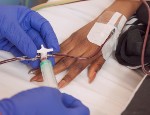
21 January 2021
A new study led by Queen Mary University of London and Barts Health NHS Trust, and funded by Barts Charity, seeks to understand why Black, Asian and Minority Ethnic communities are so badly affected by the COVID-19 virus and address the lower uptake of the vaccine by people in these groups.

14 January 2021
A new COVID-19 testing lab at Queen Mary University of London has started processing NHS Test and Trace samples from the UK population, to increase the country’s testing capacity.

14 January 2021
Professor Andrew Pollard, Director of the Oxford Vaccine Group, studied Medicine at Barts and qualified in 1989. He recently spoke to the Queen Mary Alumni team to talk more about his studies here and provided an insight into the development of the Oxford-AstraZeneca vaccine, which is now being rolled-out to the most vulnerable people in the UK and globally.

5 January 2021
As people start their New Year’s resolutions, a free stop smoking service has launched in the London Borough of Newham, provided by experts at Queen Mary University of London.

23 December 2020
New research involving scientists from Queen Mary University of London has found evidence of protective immunity in people up to four months after mild or asymptomatic Covid-19.

18 December 2020
A group of more than 300 leading scientists across the globe are calling for European governments to work together in managing the pandemic and make a clear commitment to COVID-19 case number targets.

18 December 2020
Barts Life Sciences – a partnership between Queen Mary University of London and Barts Health NHS Trust – has been awarded £6.7m by Barts Charity to research new ways to improve the prevention, diagnosis and treatment of a variety of diseases. The diseases that will be studied include COVID-19, cancer, heart disease and diabetes, which affect many in the east London population.

17 December 2020
An inquest has ruled that air pollution was the cause of death of a nine year old girl. The outcome has made legal history as air pollution has never been identified as a cause of death before in the UK.

14 December 2020
Potential treatments for Covid-19 have been identified after the discovery of five genes associated with the most severe form of the disease, in research involving Queen Mary academics.

11 December 2020
Steffen Petersen, Professor of Cardiovascular Medicine at Queen Mary University of London, has been elected as President of the European Association of Cardiovascular Imaging (EACVI).
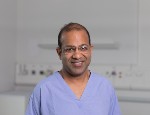
11 December 2020
The UK’s national tissue bank for pancreatic diseases at Barts Cancer Institute, Queen Mary University of London, is now open for UK-based researchers needing samples of blood, urine and saliva to aid their research.
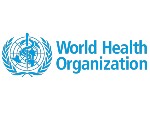
3 December 2020
Queen Mary’s Unit for Social and Community Psychiatry has been re-designated as a World Health Organization (WHO) Collaborating Centre.
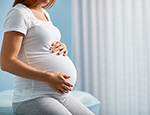
3 December 2020
A new project, led by Queen Mary University of London and the Royal College of Obstetricians and Gynaecologists, will study whether changes to maternity care during the COVID-19 pandemic have affected existing inequalities. The study is funded by The Health Foundation.

1 December 2020
Students at Barts and The London School of Medicine and Dentistry, Queen Mary University of London, have been virtually transported into a surgical ward to follow their lecturer on his ward rounds.

30 November 2020
A new study has been launched to better understand the link between air pollution and increased risk of developing COVID-19.

19 November 2020
The first multiple sclerosis (MS) clinical trial to focus only on people who can’t walk is to start recruiting. The ChariotMS trial, led by researchers at Queen Mary University of London, will test whether cladribine tablets (Mavenclad®), already licensed for highly active relapsing MS, can slow the rate of upper limb disability progression in people with advanced MS.

16 November 2020
Londoners are today being urged to join a leading phase three Covid-19 vaccine study, as Barts Health NHS Trust and Queen Mary University of London administer a new trial from the Barts Health Vaccines Trials Centre at Bethnal Green Library.

9 November 2020
As the UK’s second lockdown gets underway, a group of 79 researchers, public health professionals, and healthcare workers are calling for a sustainable public health strategy for COVID-19.

21 October 2020
As part of our series of articles and profiles for Black History Month, Heidi Downes, Antenatal Screening Counsellor Midwife at Queen Mary, writes an opinion piece about the role of young, black, enslaved women in a series of experimental surgeries in the 19th century, and why she is calling for their contributions to be formally recognised. This was originally published on The Conversation.

21 October 2020
A model that can calculate a person’s risk of becoming infected and then seriously ill due to COVID-19 has been shown to accurately estimate risk during the first wave of the pandemic in England, in new research involving Queen Mary University of London.

15 October 2020
A group of 80 researchers say that a so-called ‘herd immunity’ approach to managing COVID-19 by allowing immunity to develop in low-risk populations is “a dangerous fallacy unsupported by the scientific evidence”.

15 October 2020
Mark Freestone, Reader in Mental Health at Queen Mary’s Wolfson Institute, today releases his new book, Making a Psychopath.
150.jpg)
13 October 2020
Researchers from Queen Mary University of London, funded by Barts Charity, have launched a new clinical trial to investigate whether taking vitamin D could protect people from COVID-19.

12 October 2020
Charles Knight, Professor of Cardiology at Queen Mary University of London and Chief Executive of St Bartholomew’s Hospital, has received an OBE for services to the NHS and people with heart disease in the Queen’s birthday honours.

8 October 2020
London’s leading life science and academic institutions have united to respond in an unprecedented way to the coronavirus pandemic by ramping up diagnostic testing capacity for the UK.

25 September 2020
New research by Queen Mary University of London and the University of Southampton’s Medical Research Council Lifecourse Epidemiology Unit (MRC LEU) has found associations between lower bone mineral density and worse cardiovascular health in both men and women.
.jpg)
24 September 2020
A treatment combination involving the addition of a form of vitamin A to the current standard treatment regimen for pancreatic cancer is safe for patients, according to an early phase clinical trial led by Queen Mary University of London.
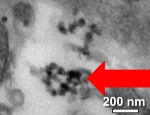
23 September 2020
Pollution particles, including metals, have been found in the placentas of fifteen women in London, according to research led by Queen Mary University of London.

22 September 2020
Dr Nay Aung, an academic clinical lecturer at Queen Mary University of London, has been awarded the Royal Society of Medicine President’s prize for best cardiology PhD project.

22 September 2020
A global survey of health professionals, led by Queen Mary University of London, has shown that during the COVID-19 pandemic, patients with Parkinson’s disease in large parts of Asia, Africa, and Latin and South America experienced difficulty in accessing their medication, which is likely to have led to deterioration of symptom control.
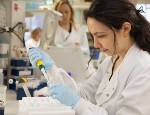
18 September 2020
An immunotherapy drug called ‘avelumab’ has been shown to significantly improve survival in patients with the most common type of bladder cancer, according to results from a phase III clinical trial led by Queen Mary University of London and Barts Cancer Centre, UK.

16 September 2020
Including genetic markers in addition to well known risk factors improves tests to predict Parkinson’s disease, according to a study led by Queen Mary University of London.

8 September 2020
There were three times as many suspected COVID-19 cases presented to GPs during the peak of the pandemic than shown in official COVID-19 test results, according to research led by Queen Mary University of London.
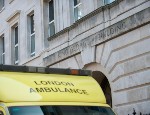
4 September 2020
A trial led by Queen Mary University of London and Barts Health researchers looking at the effect of stem cell therapy in treating heart attack patients has revealed the importance of specialist centres to extending life.

3 September 2020
Dr Musa Abdulkareem is an Honorary Research Fellow at Queen Mary University of London and Principal Research Scientist on the Barts Life Sciences CAP-AI programme, where he has been working with Professor Steffen Petersen to use Artificial Intelligence in analysing cardiac MRI scans. In this Q&A, Dr Abdulkareem reflects on the progress of the project over the last 15 months and talks about his future ambitions of maximising AI’s huge potential in healthcare.

2 September 2020
A newly discovered molecule has been found to provide long-lasting regeneration of bone and cartilage defects, as well as symptom relief, and could potentially play a role in treating osteoarthritis, according to early research in animals led by Queen Mary University of London.

1 September 2020
Differences in the shape and texture of men and women’s hearts could potentially explain why their risk of heart disease differs, according to research led by Queen Mary University of London.
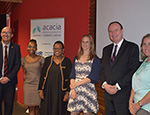
27 August 2020
Researchers from Queen Mary University of London have received funding from the National Institute for Health Research (NIHR) to conduct research into air pollution exposure affecting children in Africa.
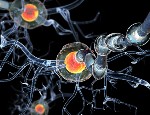
26 August 2020
Childhood and adolescent obesity is projected to contribute up to 14 per cent of overall risk of Multiple Sclerosis (MS) in 2035, according to research led by Queen Mary University of London.
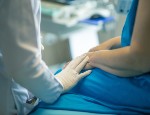
23 August 2020
A new two-stage surgical approach for cancer prevention is highly acceptable among premenopausal women at high risk of ovarian cancer, according to research led by Queen Mary University of London.

13 August 2020
Breast screening women aged 40-49 reduces breast cancer mortality, with minimal increased overdiagnosis, according to a study led by Queen Mary University of London that looked at data from 160,000 women.

12 August 2020
UK Research and Innovation (UKRI) has awarded funding to Queen Mary University of London, as part of the Barts Life Sciences partnership, to develop a proposal for data-driven next generation healthcare in Whitechapel.

7 August 2020
A fourth year medical student at Barts and The London School of Medicine and Dentistry, Queen Mary University of London, has won an award for presentation of her intercalated MSc project at the Physiological Society's annual Future Physiology conference.

3 August 2020
In the latest Digital Public Lecture Series experts from Queen Mary discussed their thoughts and experiences relating to Covid-19 and what the world might look like, and what we might want it to look like, post pandemic.
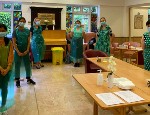
22 July 2020
In a UK-first, Queen Mary University of London is leading a clinical trial of a new rapid COVID-19 testing system that delivers results in under an hour. Working with the East London Health and Care Partnership, up to 2,000 staff and residents in 50 care homes are being recruited to see how effective rapid daily COVID-19 testing is at reducing rates of infection, hospitalisation and deaths.

17 July 2020
Screening entire populations for breast and ovarian cancer gene mutations could prevent millions more cancer cases across the world compared to current clinical practice, according to an international study led by Queen Mary University of London. The research also shows that it is cost effective in high and upper-middle income countries.

10 July 2020
A gene has been discovered that can naturally suppress the signs of Alzheimer’s Disease in human brain cells, in research led by Queen Mary University of London. The scientists have also developed a new rapid drug-screening system for treatments that could potentially delay or prevent the disease.

7 July 2020
Dr Doreen Montag is Lecturer in Global Public Health at Queen Mary University of London, and has almost 20 years of experience among indigenous and non-indigenous people in rural and urban areas of the Peruvian Andes and Amazon. In this article, originally published in Spanish on Lamula, she discusses the immense challenges faced by indigenous communities in the Peruvian Amazon in tackling the COVID-19 pandemic.
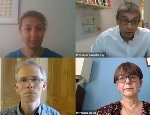
1 July 2020
In the latest Digital Public Lecture Series three experts from Queen Mary continued their discussion on the impact of Covid-19 and highlighted how we assess its severity and if this opportunity to reset society will be seized or will pass us by.
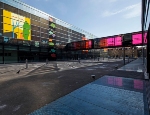
26 June 2020
Queen Mary University of London is investing in a significant carbon emissions reduction project which will cut energy use at its Whitechapel campus by 25 per cent and enhance the work and study environment for staff and students.

19 June 2020
Queen Mary University of London has reopened the majority of its laboratories to enable academics to carry out their world-leading research and to continue the phased reopening of more campus facilities for the new academic year.

19 June 2020
Higher rates of severe COVID-19 infections in Black, Asian and Minority Ethnic (BAME) populations are not explained by socioeconomic or behavioral factors, cardiovascular disease risk, or by vitamin D status, according to new research led by Queen Mary University of London.

17 June 2020
The steroid dexamethasone has been identified as the first drug to improve survival rates in certain coronavirus patients, according to a study carried out by Queen Mary University of London and Barts Health NHS Trust, as part of a nationwide NIHR-funded clinical trial.

10 June 2020
Queen Mary University of London has climbed twelve places up the QS World University Rankings to confirm its position as one of the world’s top universities. The University places 114th in the world and remains in the top 20 in the UK in the 2021 Rankings, published on Wednesday 10 June.
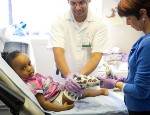
5 June 2020
Barts Charity has donated £2.9 million to establish a new centre of excellence for academic trauma and orthopaedic surgery at Queen Mary University of London and Barts Health NHS Trust.

4 June 2020
A new study led by Queen Mary University of London has demonstrated the effectiveness of using a novel light technology to monitor the presence of anti-drug antibodies in the treatment of multiple sclerosis (MS), which can lead to drug resistance and treatment failure.
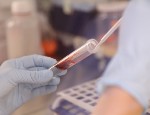
2 June 2020
One of the first studies to investigate the outcome of COVID-19 infection in patients with blood cancer has been conducted by clinical researchers from Queen Mary University of London and Barts Health NHS Trust.

28 May 2020
An immunotherapy drug called ‘avelumab’ has been shown to significantly improve survival in patients with the most common type of bladder cancer, according to results from a phase III clinical trial led by Professor Tom Powles from Queen Mary's Barts Cancer Institute, and Barts Cancer Centre.
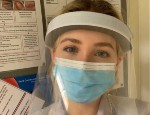
22 May 2020
Tallulah Hall is a fourth year Dentistry BDS student at Barts and The London School of Medicine and Dentistry, Queen Mary University of London. In this blog, she talks about her experience volunteering at her local hospital to help on COVID-19 wards, getting to know the patients, and learning from her inspiring colleagues.

21 May 2020
Hundreds of new links have been found between people’s DNA and the heart’s electrical activity, according to a study of almost 300,000 people led by researchers at Queen Mary University of London and the Broad Institute of MIT and Harvard.
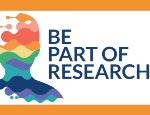
20 May 2020
To mark International Clinical Trials Day, Queen Mary University of London and Barts Health NHS Trust have released a range of new resources to encourage people to get involved in COVID-19 research projects.
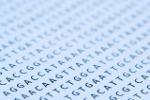
18 May 2020
Offering personalised ovarian cancer risk prediction to women shows that 98 per cent of participants felt less worried after finding out their ovarian cancer risk status, according to a study led by Queen Mary University of London.
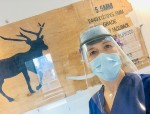
14 May 2020
Dr Aylin Baysan is Reader in Cariology at Queen Mary University of London’s Institute of Dentistry and has been volunteering in the Maternity wards at The Royal London Hospital to help during the COVID-19 pandemic. In this Q&A she talks about the challenges of juggling her teaching and volunteering commitments and why this has been such a unique experience.

11 May 2020
Mammography screening reduces the rates of advanced and fatal breast cancers, according to an analysis of more than half a million women involving researchers from Queen Mary University of London.

8 May 2020
Blizard Institute Professor of Surgery and Barts Health NHS Trust Consultant Surgeon, Professor Charles Knowles, has written and recorded a ballad in memory of all NHS staff and other key workers who have lost their lives in the fight against the coronavirus pandemic.
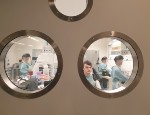
7 May 2020
Research involving Queen Mary University of London suggests that currently the public should not fear contracting Covid-19 from hospital staff, who appear to be at low risk of infection by patients.
150.jpg)
7 May 2020
Swati Nehete is Senior Clinical Lecturer at Queen Mary University of London’s Institute of Dentistry. She was recently called up to volunteer in the Maternity wards at The Royal London Hospital to help during the COVID-19 pandemic. In this blog, she writes about her experiences and describes how she dealt with the uncertainty of not knowing where she was going to be deployed.

6 May 2020
A training programme that teaches GPs how to identify domestic violence and abuse (DVA) victims has led to a 30-fold increase in DVA referrals, according to a collaborative study of 205 general practices led by Queen Mary University of London, in partnership with the Centre for Academic Primary Care, Bristol Medical School.

5 May 2020
Dr Graham Easton is Head of the Clinical and Communication Skills Unit at Barts and The London School of Medicine and Dentistry, Queen Mary University of London, and Professor of Communication Skills. He joined Queen Mary in January 2020, and in this Q&A he talks about the importance of doctors having good clinical communication skills and how this applies during the Covid-19 pandemic.

4 May 2020
Children with long-term health conditions may be more likely to experience mental illness in early adolescence than healthy children, according to new research from Queen Mary University of London.
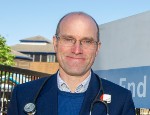
1 May 2020
Scientists are calling on the public to sign up to a new study which will help identify who is most at risk of contracting COVID-19 and why some people become more ill than others with the disease.

30 April 2020
COVID-19 health workers may require psychological support to deal with witnessing ‘unacceptable’ situations, according to a review co-authored by Queen Mary University of London academics.
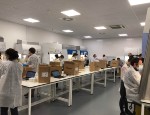
27 April 2020
Queen Mary University of London has been providing support to the UK Lighthouse Labs Network – the national COVID-19 diagnostic lab network. As well as donating a number of laboratory machines, a team of research staff have been seconded to help test thousands of samples from NHS workers every day. Dr Neil Dufton, Lecturer in Inflammatory Sciences at Queen Mary’s William Harvey Research Institute, has been volunteering at one of the Lighthouse Labs in Milton Keynes and shares his experiences in this blog post.
24 April 2020
As the coronavirus crisis continues to have a widespread effect on the UK, academic expertise and research at Queen Mary are playing an important part in public life.

23 April 2020
Queen Mary medical student Osama Omrani - along with a team of fellow final year students - brought forward his registration as a newly qualified doctor, enabling him to join front line NHS teams during the Covid-19 pandemic.

21 April 2020
Mental health conditions such as obsessive compulsive disorder could be treated in a new way using drugs that target the immune system, research suggests.
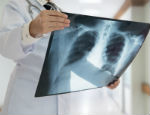
20 April 2020
The introduction of policies that restrict healthcare access for visitors and migrants not entitled to free NHS care may be associated with delays in diagnosis and treatment for patients with tuberculosis (TB) who were not born in the UK, according to a study led by researchers from Queen Mary University of London.
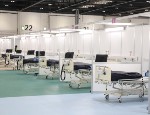
17 April 2020
Queen Mary University of London and Barts Health NHS Trust, as part of their Barts Life Sciences initiative, have begun a new programme of Covid-19 research across Barts Health hospitals, including NHS Nightingale Hospital London.
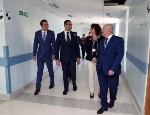
9 April 2020
Queen Mary University of London’s medical school on the Maltese island of Gozo was visited by Maltese Prime Minister Robert Abela as it helps in the fight against coronavirus in Malta by providing storage space for the administration of chemotherapy to cancer patients, beds for vulnerable patient care, space for staff and other critical support functions, such as the storage of sensitive medical equipment.
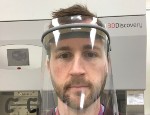
8 April 2020
The Queen Mary University of London community, including researchers, clinicians and support staff, have stepped in to assist the NHS with urgent requirements of personal protective equipment (PPE) to combat the outbreak of COVID-19.

1 April 2020
Staff and students from Queen Mary have stepped up to volunteer in efforts to support and protect their communities during the Covid-19 crisis.

1 April 2020
Charles Knight, Professor of Cardiology at Queen Mary University of London and Consultant Cardiologist at Barts Health NHS Trust, has been announced as the Chief Executive of the new NHS Nightingale Hospital London.

26 March 2020
An emergency programme to train thousands of community health workers could help vulnerable groups during the COVID-19 pandemic, according to a new comment piece published in The Lancet.
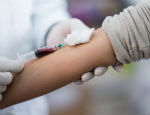
24 March 2020
For the first time in the UK, Queen Mary researchers are leading clinics at Barts Health NHS Trust to offer latent tuberculosis infection (LTBI) screening for pregnant migrants in antenatal care.
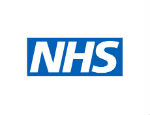
19 March 2020
Negligence claims against the NHS due to failure to inform patients before they consent to procedures have spiralled up since a landmark legal ruling in 2015, a new study has found.

10 March 2020
New research by Action on Salt (based at Queen Mary University of London and Bart’s Hospital) have exposed the shocking reality of many ‘healthy’ sounding plant-based and vegan meals being served at UK restaurants, fast food and coffee chains.

27 February 2020
Queen Mary’s Professor Grigg has been appointed as a Senior Investigator for 2020 by the National Institute for Health Research (NIHR) - the nation's largest funder of health and care research.

26 February 2020
An immune therapy for the most aggressive form of breast cancer can substantially reduce the risk of the disease returning, according to a clinical trial led by Professor Peter Schmid of Queen Mary University of London.

14 February 2020
Artificial intelligence has been used for the first time to instantly and accurately measure blood flow, in a new study involving researchers from Queen Mary University of London.
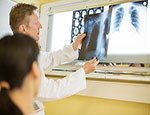
4 February 2020
Professor Stephen Duffy, Professor of Cancer Screening at the Wolfson Institute of Preventive Medicine, and Professor John Field, from the University of Liverpool’s Department of Molecular and Clinical Cancer Medicine, comment on recently published results from a lung cancer screening trial.

31 January 2020
A new study from Queen Mary University of London and EMBL’s European Bioinformatics Institute has uncovered the genes essential for supporting life, which could help researchers to identify mutations responsible for rare childhood diseases.
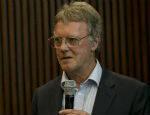
29 January 2020
Nobel Prize winning alumnus Sir Peter Ratcliffe is coming to Queen Mary to speak about his award and his time at St Bartholomew's Hospital Medical College.

28 January 2020
The role of primary care needs to be improved to help young stroke survivors return to work, according to a new study from Queen Mary University of London and the University of Cambridge.

21 January 2020
Popular ‘ready to drink’ pre-mixed spirits sold in major UK retailers are unnecessarily high in hidden sugar and calories[1] and should be forced to reformulate immediately to the agreed criterion set by government in the Soft Drinks Industry Levy (SDIL) or pay the fine[2] – according to a NEW product survey by Action on Sugar at Queen Mary University of London to mark Sugar Awareness Week (20th-26th January 2020).
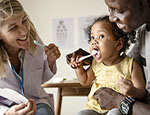
16 January 2020
A study led by Queen Mary’s Professor of Dental Public Health, Professor Cynthia Pine, has identified a low-cost and low-intensity intervention technique that could prevent tooth decay for thousands of children across the UK.
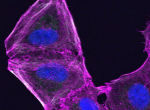
13 January 2020
Researchers at Queen Mary University of London have found that melanoma cells fight anti-cancer drugs by changing their internal skeleton (cytoskeleton) – opening up a new therapeutic route for combatting skin and other cancers that develop resistance to treatment.

9 January 2020
Survey results published today by Action on Salt (based at Queen Mary University of London) have confirmed bacon’s unwelcome status as the second biggest contributor to salt in the UK diet.

20 December 2019
Participation in an online community can help stroke survivors move forward and adapt to their new circumstances, research led by a Queen Mary lecturer suggests.
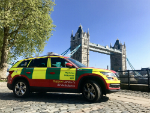
20 December 2019
A specialist emergency service, which takes senior doctors and state-of-the-art medical equipment on the road, is successfully treating many patients at the scene, potentially avoiding almost 1,000 ambulance trips to hospital and saving over £500,000 a year.

18 December 2019
Regular cannabis use could affect the structure and function of the heart, research led by a team at Queen Mary University of London suggests.

17 December 2019
Research around e-cigarettes led by Professor Peter Hajek from Queen Mary is among the year’s 20 most discussed papers around the world, independent analysis suggests.
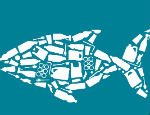
13 December 2019
The debate about the potential for exploiting omega-3 fatty acids to improve health has raged for years.
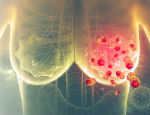
12 December 2019
The Queen Mary University of London professor leading an international breast cancer study says anastrozole – rather than tamoxifen – should be the preventive drug-of-choice for post-menopausal women at increased risk of developing the disease.

12 December 2019
Queen Mary University of London’s Professor Ranjit Manchanda has been awarded a prestigious oration at a major cancer genetics conference in Mumbai next week.
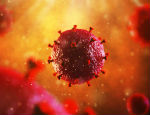
29 November 2019
Jane Anderson, an honorary professor at Queen Mary’s Institute of Population Health Sciences, addressed members of the European Parliament and other policymakers as part of a major HIV initiative this week.
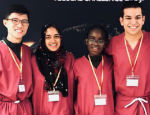
26 November 2019
Queen Mary Barts and the London medical student Maria Ahmad and her three teammates from around the world have won the Elsevier ClinicalKey Global Challenge.
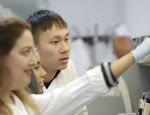
25 November 2019
Researchers from Queen Mary University of London and Zhengzhou University have developed a personalised vaccine system that could ultimately delay the onset of pancreatic cancer.

21 November 2019
The Prime Minister of Malta, the Honourable Dr Joseph Muscat, officially opened the Queen Mary University of London Malta campus today.

19 November 2019
A grieving family are marking the second anniversary of the death of their son to a brain tumour by donating a six-figure sum to Queen Mary University of London to help find a cure for the disease.
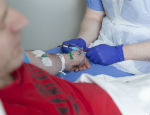
12 November 2019
Deaths from severe bleeding after major trauma have been reduced by 40% over the last decade through a programme of research and innovation led by Queen Mary University of London, Barts Health NHS Trust and NHS Blood and Transplant.

11 November 2019
A third year medical student at Queen Mary University of London has reached the final 12 of the Elsevier ClinicalKey Global Challenge.

31 October 2019
Analysis of the largest African genomic datasets ever collected could improve understanding of diseases and aid the search for treatments.

30 October 2019
A study led by Queen Mary University of London researchers suggests a new explanation for particularly high rates of psychosis amongst Black and South Asian men in some inner city areas.

28 October 2019
The new medical school building at Queen Mary University of London’s Malta campus opened today. It provides Queen Mary students and staff of its Barts and The London School of Medicine and Dentistry with a state-of-the-art facility for teaching and study of the University’s MBBS medical degree.

18 October 2019
William Harvey Day 2019 saw hundreds of attendees gather to celebrate the best of research at Barts and The London School of Medicine and Dentistry, Queen Mary University of London.

17 October 2019
Research scientists at Queen Mary University of London are looking for people who are chronically constipated to help develop understanding of the condition and possibly improve treatments.

17 October 2019
Research led by Queen Mary University of London and the University of Seville around one protein’s role in regulating brain inflammation could improve our understanding of neurodegenerative diseases.

10 October 2019
A consultation involving 221 people – including service users and carers – has found that addressing racism is the number one priority to reduce ethnic inequalities in severe mental illness.
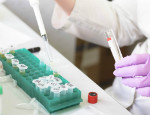
3 October 2019
A lifetime model evaluating the financial, health and social impact of multigene testing (BRCA1/2/PALB2) at diagnosis for all breast cancer patients was found to be extremely cost effective for both UK and US health systems.

3 October 2019
Chair of the author group, Professor Gavin Giovannoni and co-chair Dr Alastair Noyce, find there’s a ‘window of opportunity’ in midlife where individuals can reduce the risk of developing neurodegenerative disease.
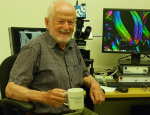
1 October 2019
Professor Alan Boyde from the Institute of Dentistry, Queen Mary University of London has been awarded a leading national prize.

1 October 2019
Medical care of injured soldiers could improve with new Artificial Intelligence (AI) tools designed for the battlefield and the hospital following a grant from the US Department of Defense for research at Queen Mary University of London.
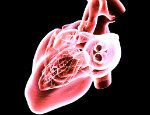
26 September 2019
Genetic research led by Queen Mary University of London could open the way to earlier identification of people at risk of heart failure and to the development of new treatments.

24 September 2019
A nationwide product survey published today by Action on Salt has exposed the unnecessary levels of salt present in many table sauces, Asian sauces and marinades.
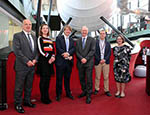
20 September 2019
Universities Minister Chris Skidmore toured Queen Mary University of London’s Whitechapel campus as part of a funding announcement that will help universities stimulate growth in their local economies and provide vital support for innovative new companies.

18 September 2019
Academics from Queen Mary University of London have been awarded £5.5 million to deliver an innovative ‘Health Data in Practice' PhD Programme, with the first intake of students planned for October 2020.

11 September 2019
In a paper published today in the Journal of Medical Screening, researchers from Queen Mary University of London and King’s College London have found that despite free cancer screening programmes, only 35 per cent take part in all offered programmes.

11 September 2019
Following a Queen Mary University of London study, researchers are calling for population wide BRCA testing in the Jewish community after finding it to be more effective than current approaches, cost effective and had a high satisfaction rate with those undergoing testing.

10 September 2019
A new and simple blood test has been found to efficiently and accurately detect the presence of aggressive prostate cancer, according to research by Queen Mary University of London.

16 August 2019
Feng He, Sonia Pombo and Monique Tan from Queen Mary's Wolfson Institute of Preventive Medicine published an article for The Conversation about their research into salt consumption.

15 August 2019
A new survey by Action on Salt, based at Queen Mary University of London, has found that the food content of a ‘typical’ picnic basket could contain more than 5g of salt.

7 August 2019
Today, Action on Sugar and Action on Salt, based at Queen Mary University of London, is calling on the government to introduce a calorie (energy density) levy on all calorie dense processed foods that meet an agreed criteria set by government.

5 August 2019
Professor Maralyn Druce from Queen Mary University of London has been announced as a new National Teaching Fellow by Advance HE today.
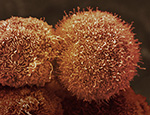
1 August 2019
Scientists at Queen Mary University of London have found a way to target and knock out a single protein that they have discovered is widely involved in pancreatic cancer cell growth, survival and invasion.

31 July 2019
A Year 5 Bachelor of Dental Surgery (BDS) student, Indriyesha Wolfgang Puri, has been awarded the University of London BDS Gold Medal 2019 following a competition with London’s top dental students.
_cervix-150.jpg)
31 July 2019
A single test for women has been shown to aid in predicting which cases of precancerous cervical disease will become more serious, helping with decisions on whether or not surgery is needed, according to a study led by Queen Mary University of London.

23 July 2019
A simple Mediterranean-style diet in pregnancy does not reduce the overall risk of adverse maternal and offspring complications, but has the potential to reduce weight gain in pregnancy and the risk of gestational diabetes, according to a clinical trial led by Queen Mary University of London and the University of Warwick.

12 July 2019
Salt intake in China is confirmed to be among the highest in the world, with adults over the past four decades consistently consuming on average above 10g of salt a day, which is more than twice the recommended limit, according to new research led by Queen Mary University of London.
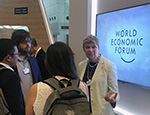
5 July 2019
Professor Fran Balkwill from Queen Mary University of London was selected as a high-level delegation to the World Economic Forum in Dalian, China, this week to discuss her work in cancer research.

2 July 2019
With every week that a pregnancy continues past term (37 weeks), the risk of stillbirth increases, according to an analysis of more than 15 million pregnancies led by Queen Mary University of London.
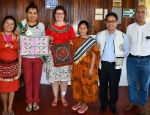
28 June 2019
The causes of persistent high levels of anaemia among Peruvian children will be investigated by a new study led by Queen Mary University of London and the Instituto Nacional de Salud del Niño (INSN), in collaboration with Universidad Nacional Intercultural de la Amazonia (UNIA) and Universidad Nacional San Christobal de Huamanga in Peru.
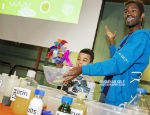
26 June 2019
Budding young scientists from schools across London attended the Barts and Queen Mary Science Festival held at Queen Mary University of London.

25 June 2019
A new study involving researchers from Queen Mary University of London found that short-term pedometer interventions produce significant health benefits several years later.
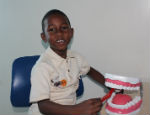
25 June 2019
Fadil Elamin, Honorary Senior Research Fellow at Queen Mary University of London, published an article for The Conversation on his work as a dentist in Sudan providing care and alternative treatments for children with tooth decay.

7 June 2019
Professor Mark Caulfield, Professor of Clinical Pharmacology at Queen Mary University of London and the interim Chief Executive at Genomics England, has been awarded a knighthood in the Queen’s Birthday Honours List.

7 June 2019
Dr Mark Freestone from Queen Mary University of London works as a Psychiatry Consultant for BBC’s hit TV show Killing Eve, which returns for season two in the UK on Saturday 8 June. We spoke to Dr Freestone about how he helped shape Villanelle’s character and his work at Queen Mary.
150.jpg)
4 June 2019
In the biggest survey of its kind, new research by Action on Sugar and Action on Salt, based at Queen Mary University of London, has found that half of the 526 food and drink products which use cartoons on their packs are unnecessarily high in fat, sugar and/or salt.
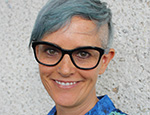
3 June 2019
Professor Chloe Orkin from Queen Mary University of London has been appointed as the new Vice-President of the UK’s leading organisation for women doctors.

3 June 2019
Drinking coffee might keep us up at night, but new research has given us a reason to sleep easy knowing that the popular drink isn’t as bad for our arteries as some previous studies would suggest. The research from Queen Mary University of London has shown that drinking coffee, including in people who drink up to 25 cups a day, is not associated with having stiffer arteries.

30 May 2019
New research by Queen Mary University of London and The Royal Marsden NHS Foundation Trust confirms that an algorithm, called CTS5, accurately identifies patients who are at low risk of their breast cancer returning at a later stage.

29 May 2019
A combination of the improved safety of anaesthesia and surgery for older people, and a general improvement in availability of surgical treatments in the NHS is likely to be the reasons why people undergoing surgery in England are getting older at a faster rate than the general population.
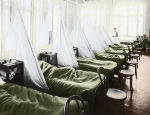
24 May 2019
The most severe pandemic in recent history, killing some 50 million people worldwide, the Spanish Influenza, may have emerged up to two years earlier than previously believed, according to a new study by Queen Mary University of London researchers.
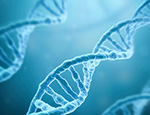
23 May 2019
Mitochondria, the ‘batteries’ that produce our energy, interact with the cell’s nucleus in subtle ways previously unseen in humans, according to research involving academics from Queen Mary University of London.

20 May 2019
A clinical trial, coordinated by researchers from Queen Mary University of London, is currently recruiting patients in London to see whether a new cholesterol-lowering drug could save lives in people who are intolerant to statins.
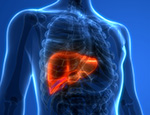
20 May 2019
Many patients with potentially deadly liver cirrhosis and liver cancer are being diagnosed at late advanced stages of disease, according to a study led by Queen Mary University of London and the University of Glasgow.

17 May 2019
On Wednesday the Prime Minister of Malta visited Queen Mary University of London’s Malta campus where the new medical school building is currently under construction.

16 May 2019
A new project to improve asthma in African children has been officially launched at an event in Durban, South Africa.

13 May 2019
A new risk calculator for pregnant women with epilepsy, developed by researchers from Queen Mary University of London, has been found to accurately predict the risk of seizures during pregnancy and up to six weeks after delivery, and could save the lives of mothers and babies.
150.jpg)
7 May 2019
In order to train the next generation of tuberculosis (TB) specialists, Queen Mary University of London has announced the launch of the world’s first postgraduate certificate to focus exclusively on TB, which will be delivered across the world through online distance learning from September 2019.

30 April 2019
A breast cancer test has been found that helps doctors make treatment decisions for some breast cancer patients, following research carried out at Queen Mary University of London and funded by Cancer Research UK.
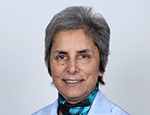
26 April 2019
Professor Dame Parveen Kumar DBE from Barts and The London School of Medicine and Dentistry, Queen Mary University of London, has received the BMJ Award for Outstanding Contribution to Health.

25 April 2019
Researchers from Queen Mary University of London studied the effectiveness of one of the largest ever national quality improvement programmes in the National Health Service (NHS) and found no improvement in patient survival.
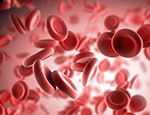
25 April 2019
New findings about a fatal form of blood cancer could aid the development of new drugs with significantly less harmful side effects than existing chemotherapy.

17 April 2019
More than 25 academics from Queen Mary University of London are taking part in the 2019 Pint of Science Festival at several pubs across London from 20 – 22 May.

28 March 2019
Caesarean sections are disproportionately threatening the lives of women and babies in low and middle-income countries (LMIC), according to a study led by Queen Mary University of London.

28 March 2019
Genetic testing for schizophrenia should become the norm, argue leading psychiatrists in an editorial published in the British Journal of Psychiatry.

15 March 2019
White British people are almost twice as likely to hold extremist views as people of Pakistani heritage in England, according to a study by Queen Mary University of London.
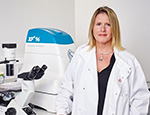
14 February 2019
Professor Federica Marelli-Berg from Queen Mary University of London has been named by the British Heart Foundation (BHF) as one of the top 10 inspirational women in science.
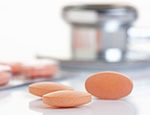
14 February 2019
High cholesterol has been found to be a possible risk factor for the development of motor neurone disease (MND), according to a large study of genetic data led in the UK by Queen Mary University of London, in collaboration with the National Institutes of Health in the USA.
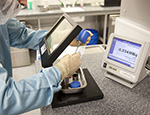
31 January 2019
Barts Charity, who support pioneering medical research at Barts and the London School of Medicine and Dentistry at Queen Mary University of London, is granting £6 million to fund the ‘Rising Stars’ lectureship programme and support the growth of some of the world’s best young medical researchers.

30 January 2019
E-cigarettes are almost twice as effective as nicotine replacement treatments, such as patches and gum, at helping smokers to quit, according to a clinical trial led by Queen Mary University of London.

28 January 2019
Human clinical trials are set to begin to test a new ‘fat pill’, packed with a mix of natural oils, and believed to trick the gut into thinking it’s full in order to suppress appetite.
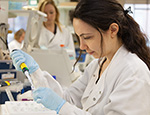
23 January 2019
A global research team involving scientists from Queen Mary University of London have been awarded £20 million by Cancer Research UK in an initiative that aims to answer some of the biggest questions facing cancer research.
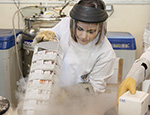
22 January 2019
Scientists from Queen Mary University of London have received a grant from leading men’s health charity, Prostate Cancer UK, as the city continues to lead the way in advanced prostate cancer research.

11 January 2019
£1.5 million from Barts Charity has been awarded to brain tumour researchers at Queen Mary University of London to extend their successful lab-based research into clinical trials with patients.
150.jpg)
11 January 2019
Vitamin D supplements have been found to reduce the risk of potentially fatal lung attacks in some chronic obstructive pulmonary disease (COPD) patients, according to a study led by Queen Mary University of London.
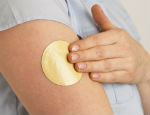
2 January 2019
Allowing smokers to determine their nicotine intake while they are trying to quit is likely to help them kick the habit, according to an early study in 50 people led by Queen Mary University of London.
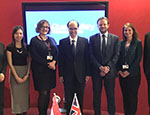
20 December 2018
A set of new collaborative PhD projects has been launched by Queen Mary University of London and A*STAR (Agency for Science, Technology and Research) Singapore.
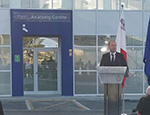
19 December 2018
Maltese Prime Minister, Joseph Muscat, today officially inaugurated the Barts Anatomy Centre at Queen Mary’s Malta campus, marking a significant milestone in plans to improve the educational and health care offering in Gozo.
_cervix-150.jpg)
14 December 2018
A new test for cervical cancer was found to detect all of the cancers in a randomised clinical screening trial of 15,744 women, outperforming both the current Pap smear and human papillomavirus (HPV) test at a reduced cost, according to a study led by Queen Mary University of London.

12 December 2018
There are persisting inequalities in health service use for severe mental illness, with negative effects for patients from ethnic minority backgrounds, according to research led by Queen Mary University of London.
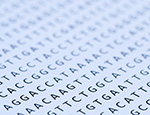
5 December 2018
UK Health Secretary Matt Hancock has today announced that a project involving Queen Mary University of London researchers has reached its goal of sequencing 100,000 whole genomes from NHS patients.
150.jpg)
28 November 2018
A radical culture change in the NHS, and across the health data and medical technology community, is needed to make sure that the NHS can deliver benefits from patient data, and to retain public trust, says a new report authored by Queen Mary University of London academics.
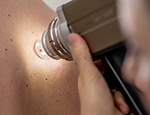
28 November 2018
Data from a newly established UK skin cancer database, the largest of its kind in the world, has revealed that there are over 45,000 cutaneous squamous cell carcinomas (cSCC) every year in England, 350 per cent more than previous estimates suggested.
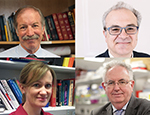
26 November 2018
Four researchers from Queen Mary University of London have been placed in the top 1 per cent in the world, in this year’s Highly Cited Researchers list.

9 November 2018
Women who take part in breast screening have a significantly greater benefit from treatments than those who are not screened, according to a study of more than 50,000 women, led in the UK by Queen Mary University of London.

29 October 2018
The level of understanding of forensic science among lawyers, judges, and juries is poor, according to evidence submitted to parliament by a group of researchers from Queen Mary University of London.

20 October 2018
There is new hope for people with an aggressive type of breast cancer, as an immunotherapy trial shows for the first time that lives can be extended in people with triple-negative breast cancer.

19 October 2018
The Alan Turing Institute has welcomed 46 new Turing Fellows from Queen Mary University of London.
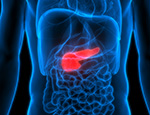
11 October 2018
A new approach to treating pancreatic cancer using 'educated killer cells' has shown promise, according to early research by Queen Mary University of London.

11 October 2018
Professor Karim Brohi, Head of Trauma Sciences at Queen Mary University of London and Consultant Trauma and Vascular Surgeon at Barts Health NHS Trust, has been named in the Evening Standard's Progress 1000 list, recognising the most influential people in the capital.

9 October 2018
Noise pollution from road, rail and aircraft traffic needs to be reduced to help prevent heart disease, sleep disturbance and public annoyance, according to a World Health Organization (WHO) report led by Queen Mary University of London academics.
_cervix-150.jpg)
5 October 2018
A one-year delay in introducing human papillomavirus (HPV) testing as the main test in cervical screening would miss the opportunity to prevent 581 cases of cervical cancer in England at an estimated value of £32 million in lost quality of life, according to a study by researchers at Queen Mary University of London and King’s College London.
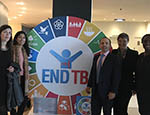
4 October 2018
Academics from Queen Mary University of London helped raise the profile of tuberculosis (TB) and the need for increased funding at the UN General Assembly in New York, which was attended by global Heads of State and government ministers.

26 September 2018
A landmark international research project, involving researchers from Queen Mary University of London, has shown that we can now use our knowledge of the tuberculosis (TB) genetic code to predict which drugs are best for treating a patient’s infection.

24 September 2018
The Barts Charity Trauma Appeal, which was launched today, aims to raise £1 million to support vital research at The Royal London Hospital, in conjunction with Queen Mary University of London’s Centre for Trauma Sciences.
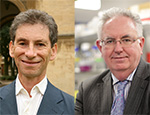
23 September 2018
Two academics from Queen Mary University of London have received prestigious awards from the International Society of Hypertension (ISH) in recognition of their achievements in blood pressure research.

17 September 2018
Over 500 new gene regions that influence people’s blood pressure have been discovered in the largest global genetic study of blood pressure to date, led by Queen Mary University of London and Imperial College London.
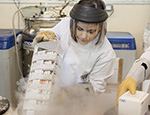
17 September 2018
The city of London will be transformed into a world leading hub for cancer biotherapeutics research and treatment, with a new £14 million investment from Cancer Research UK, announced today.

16 September 2018
Evidence of tiny particles of carbon, typically created by burning fossil fuels, has been found in placentas for the first time, in early research involving a small number of people, presented today by researchers from Queen Mary University of London.
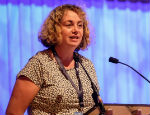
10 September 2018
Professor Sandra Nicholson from Queen Mary University of London has been appointed as the new Chair of the Association for the Study of Medical Education (ASME).

10 September 2018
A drug used to treat inflammatory bowel disease and arthritis, and prevent organ rejection in transplant patients, has been identified as an important contributor to skin cancer development, in research by Queen Mary University of London, University of Dundee and the Wellcome Sanger Institute.

6 September 2018
A new Mental Health Network involving researchers from Queen Mary University of London will help harness community resources to improve mental wellbeing in local communities.
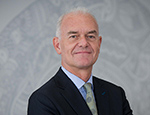
20 August 2018
Professor Paul Coulthard has been appointed to the post of Dean for Dentistry and Director, Institute of Dentistry, Queen Mary University of London.

15 August 2018
Beki Aldam is Public Engagement Coordinator in the Barts-MS team based at the Blizard Institute, Queen Mary University of London. In this blog, she talks about her team’s trip to a remote island in the Outer Hebrides to organise an event for multiple sclerosis patients who have limited access to neurologists.

10 August 2018
A new anatomy centre next to Gozo General Hospital in Malta is scheduled to complete this September, as artist’s impressions of the development are released by Barts and The London School of Medicine and Dentistry, Queen Mary University of London.

6 August 2018
A clinical trial has begun which will use stem cell transplants to grow a new immune system for people with untreatable Crohn’s disease – a painful and chronic intestinal disease which affects at least 115,000 people in the UK.

3 August 2018
Researchers from Queen Mary University of London have found that people exposed to air pollution levels well within UK guidelines have changes in the structure of the heart, similar to those seen in the early stages of heart failure.
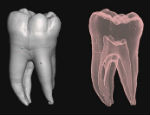
28 July 2018
Researchers from Queen Mary University of London presented several new studies at the 2018 General Session of the International Association of Dental Research in London from 25-28 July.
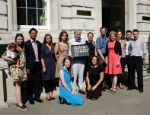
27 July 2018
In 2015, the Government awarded Dr Claire Ferraro the Ebola medal to acknowledge her work during the Ebola crisis. On Tuesday, along with twenty other Ebola volunteers, she returned her medal in opposition to the current ‘hostile environment’ in the NHS and its charging regulations that are deterring undocumented migrants from accessing healthcare in the UK. Dr Ferraro is a teaching and research fellow at Queen Mary University of London’s Public Global Health Unit.

18 July 2018
Former players will be recruited through the Professional Footballers’ Association for a study examining the link between heading the ball or concussions and long-term brain function.

9 July 2018
Researchers from Queen Mary University of London have been awarded £2 million to study how to improve asthma in African children.

6 July 2018
The National Institute for Health Research (NIHR) have renewed Queen Mary University of London’s NIHR Policy Research Unit in Cancer Awareness, Screening and Early Diagnosis, with a grant of £5 million.
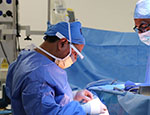
4 July 2018
Professor Shafi Ahmed from Barts and The London School of Medicine and Dentistry, Queen Mary University of London, and The Royal London Hospital has won a prestigious award to mark the NHS’s 70th birthday.

2 July 2018
Professor Steve Thornton is Vice Principal (Health) at Barts and The London School of Medicine and Dentistry, Queen Mary University of London. In celebration of the NHS’s 70th birthday this week, Professor Thornton has taken part in a Q & A to explain how we work alongside the NHS and help support the organisation’s work through education and research.

26 June 2018
A dentistry postgraduate student from Queen Mary University of London has won the 2018 Life Science Image awards with a photograph titled ‘Scalpel Close-up’.

26 June 2018
A Queen Mary University of London spinout has secured a licence agreement with a leading Chinese toothpaste manufacturer, which should generate sales of £2m over the next five years.
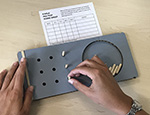
14 June 2018
A new clinical trial testing a disease-modifying drug for multiple sclerosis (MS) will be the first in the world to recognise the importance of wheelchair users retaining the use of their hands.

13 June 2018
People with type 2 diabetes are 32 per cent more likely to develop Parkinson’s disease than those without diabetes, finds a new study by Queen Mary University of London, UCL and University of Oxford.

8 June 2018
Over 3,000 primary school children in polluted areas of London and Luton will have their lung health monitored over a four-year period in a new international study led by Queen Mary University of London, launched today by the Mayor of London Sadiq Khan at Netley Primary School.
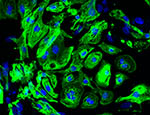
6 June 2018
Researchers from Queen Mary University of London have developed new cell-based technologies which could improve understanding of the muscle-wasting disease Duchenne muscular dystrophy (DMD) and test potential drugs for the disease.

23 May 2018
An operation that targets the nerves connected to the kidney has been found to significantly reduce blood pressure in patients with hypertension, according to the results of a clinical trial led in the UK by Queen Mary University of London and Barts Health NHS Trust, and supported by the National Institute for Health Research (NIHR).
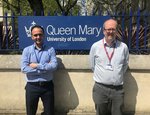
18 May 2018
A teaching fellow at Queen Mary University of London has returned from a five-day trip to Istanbul, as part of a programme designed to support Syrian academics in exile.
,-Dr-Kit-Curtius-(second-left),-Dr-Gill-Harper-(second-right)-and-Dr-Adriano-Barbosa-(far-right)150.jpg)
11 May 2018
Queen Mary University of London has appointed four postdoctoral research fellows to its new Rutherford Academy of Population Genomics and Health Data Science, funded by the Medical Research Council and UK Research and Innovation’s Rutherford Fund.

9 May 2018
Queen Mary University of London has received funding from the National Institute of Health Research (NIHR) to advise researchers on how to develop high quality research proposals.
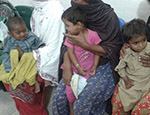
2 May 2018
High dose vitamin D supplements improve weight gain and the development of language and motor skills in malnourished children, according to a study led by Queen Mary University of London and University of the Punjab, Pakistan.

1 May 2018
A new review by Action on Salt, based at Queen Mary University of London, has challenged previous studies that cast doubt on the importance of reducing salt intake on public health.
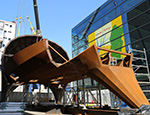
20 April 2018
Construction has begun on ‘Neuron Pod’ - a striking 23-metre long and 10-metre high free-standing structure which will be used as an informal science learning centre at Queen Mary University of London’s Whitechapel campus.

28 March 2018
Researchers from Queen Mary University of London will join a UK-wide effort to drive the development of new treatments for children and young people with juvenile idiopathic arthritis (JIA) and its associated eye-inflammation condition, uveitis.
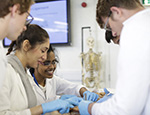
26 March 2018
Barts and The London School of Medicine and Dentistry at Queen Mary University of London has been allocated an additional 32 new places for medical students, which will provide new opportunities for students from the local area.

23 March 2018
A new health promotion tool has been launched to inform people about latent tuberculosis (TB) and engage migrant communities with local NHS testing and treatment.
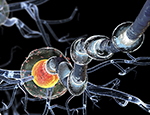
23 March 2018
A new drug is the first to slow the progression of disability in secondary progressive multiple sclerosis – a severe form of the disease for which there is currently no treatment to prevent progression.

21 March 2018
Pregnant women with anaemia are twice as likely to die during or shortly after pregnancy compared to those without the condition, according to a major international study led by Queen Mary University of London of over 300,000 women across 29 countries.

14 March 2018
Hand grip strength could be used as a simple measure of heart health, according to new research led by scientists at Queen Mary University of London.

13 March 2018
A new survey by Action on Salt, based at Queen Mary University of London, has exposed the alarming amounts of salt found in both Chinese takeaways and Chinese ready meals sold by some of the UK’s biggest supermarkets.

12 March 2018
Over a half of stroke patients require a degree of help with taking medicine and a sizeable minority say they do not receive as much assistance as they need, according a study by researchers at Queen Mary University of London and University of Cambridge.

9 March 2018
Women who use menopausal hormone therapy appear to have a heart structure and function that is linked to a lower risk of heart failure, according to a study led by Queen Mary University of London.

8 March 2018
Cardiovascular disease patients have lower levels of an important family of protective molecules in their blood in the morning, which could be increasing their risk of blood clots and heart attacks at those times, according to early research led by Queen Mary University of London.

5 March 2018
The painkiller aspirin appears to reduce the risk of stroke and death in patients with the most deadly form of tuberculosis, according to a study by Queen Mary University of London, Oxford University Clinical Research Unit (Vietnam), Western General Hospital and University of Oxford.
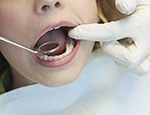
1 March 2018
Thousands of children with oral pain are being taken by parents to pharmacies and non-dental health services, including A&E, instead of their dentist, and could be costing NHS England £2.3 million a year, according to research led by Queen Mary University of London.
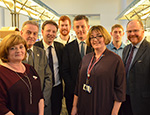
23 February 2018
UK health ministers shared the news of an upcoming funding boost to brain tumour research, during a visit to laboratories at Queen Mary University of London this week.

22 February 2018
Beetroot may reduce the risk of kidney failure in patients having a heart x-ray, according to research led by Queen Mary University of London.

20 February 2018
Graham Davis is Professor of 3D X-ray Imaging at Queen Mary’s Institute of Dentistry. In this blog post, he describes his team’s work in helping the BBC to restore a lost episode of the Morecambe and Wise Show from a disintegrated film reel, as featured in the latest episode of BBC Click.

8 February 2018
The vapour from e-cigarettes seems to help pneumonia-causing bacteria stick to the cells that line the airways, according to research led by Queen Mary University of London.

7 February 2018
Queen Mary University of London has partnered with four other London universities - UCL, Imperial College London, King's College London and The London School of Hygiene & Tropical Medicine - in a new initiative to transform health through data science.

6 February 2018
An international study, led by Queen Mary University of London and funded with a £5 million grant from Cancer Research UK, has been launched to answer the final questions before aspirin is recommended to reduce cancer risk.

5 February 2018
Millions of unapproved antibiotics are being sold in India, according to a new study by researchers at Queen Mary University of London and Newcastle University.

31 January 2018
There is no need for an upper limit of folate intake, according to a study by Queen Mary University of London and the School of Advanced Study, University of London.

25 January 2018
A flu-like virus has now been used in experiments to successfully inhibit the growth of pancreatic cancer, according to an early study led by Queen Mary University of London.
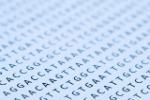
18 January 2018
Screening the entire population for breast and ovarian cancer gene mutations, as opposed to just those at high-risk of carrying this mutation, is cost effective and could prevent more ovarian and breast cancers than the current approach, according to research led by Queen Mary University of London.

16 January 2018
Rising accident and emergency attendance rates are driven by patients’ long term health conditions, and are not related to lack of GP provision, according to a study by Queen Mary University of London of more than 800,000 patients in east London.

15 January 2018
A study of families with rare blood sugar conditions has revealed a new gene thought to be critical in the regulation of insulin, the key hormone in diabetes.
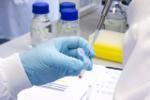
11 January 2018
Patients with an aggressive form of leukaemia, currently ineligible for any type of targeted therapy, may in fact benefit from new drugs, according to new research by Queen Mary University of London.

10 January 2018
At least 61 per cent of people who try their first cigarette become, at least temporarily, daily smokers, suggests an analysis of survey data by Queen Mary University of London.

21 December 2017
Queen Mary University of London sponsored two of its Global Health alumni to travel and attend this year’s Nobel Peace Prize celebrations in Oslo, Norway.

20 December 2017
We recently sponsored two of our Global Health alumni to travel and attend the Nobel Peace Prize celebrations in Oslo, Norway. In this blog post, Miranda Liang reports from the Nobel Peace Lecture, discussing the moving moment when Hiroshima survivors spoke of their experiences of nuclear weapons, and what this means for global health.
_cervix-640-150x96.jpg)
18 December 2017
Incidence of cervical cancer in young women is set to decline 75 per cent by 2040 with deaths close to eradicated, however older women will face greater risk according to research led by Queen Mary University of London, published today in The Lancet Public Health.

15 December 2017
Last weekend, we sponsored one of our Global Health alumni to travel and attend the Nobel Peace Prize celebrations in Oslo, Norway. In this blog post, Krishen Samuel reports from the Nobel Peace Lecture and discusses gender issues in the context of debates about nuclear war.

14 December 2017
A 'cure' for haemophilia is one step closer, following results of a groundbreaking gene therapy trial led by Queen Mary University of London.

13 December 2017
Last weekend, we sent two alumni from Queen Mary’s Global Public Health Unit to the Nobel Peace Prize celebrations in Oslo, Norway. They accompanied Professor David McCoy, who was involved in the coalition that won this year’s Prize. In this blog post, David discusses how we might move on from this year’s spotlight on nuclear disarmament and ensure that politicians and academics work to finally eliminate these weapons.

12 December 2017
Researchers at Queen Mary University of London believe they have found the first indications that a combination of two types of drugs could protect against clots that cause heart attacks and strokes, but at lower doses than when the drugs are prescribed separately.
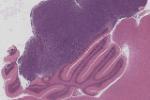
5 December 2017
A new weakness found in medulloblastoma, the most common form of childhood brain tumour, could lead to more personalised medicine and improved treatment for some patients, according to an early study by Queen Mary University of London (QMUL).
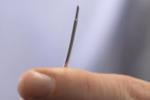
1 December 2017
Heart tissue can be imaged in real-time during keyhole procedures using a new optical ultrasound needle developed by researchers at Queen Mary University of London (QMUL) and UCL.

1 December 2017
The story of Joseph Merrick, the so-called ‘Elephant Man’, takes centre stage in a new audio tour of Whitechapel, offering an immersive history of The Royal London Hospital and Medical College through a free smartphone app.

29 November 2017
Professor Nick Lemoine from Queen Mary University of London (QMUL) has been awarded the China Friendship Award - the country’s highest award for ‘foreign experts who have made outstanding contributions to the country's economic and social progress’.

27 November 2017
A decline in deaths from heart attack and stroke in high income countries could be threatened by rising rates of obesity and diabetes, according to a study led by Barts Heart Centre, Queen Mary University of London (QMUL).

24 November 2017
David Lammy MP has welcomed a new initiative to transform ethnic inequalities in mental health services, led by Queen Mary University of London (QMUL).

21 November 2017
A diabetes drug currently undergoing development could be repurposed to help end transplant rejection, without the side-effects of current immunosuppressive drugs, according to new research by Queen Mary University of London (QMUL).
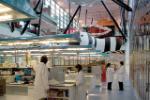
20 November 2017
Four researchers from Queen Mary University of London (QMUL) have been placed in the top 1 per cent in the world, in this year’s Highly Cited Researchers list.

16 November 2017
A new project to develop and test a talking-based therapy for cancer survivors, led by Queen Mary University of London (QMUL), Barts Health NHS Trust and King's College London, has been awarded £2.5m by the National Institute for Health Research (NIHR).

10 November 2017
Rebecca Landy, Cancer Screening Statistician at Queen Mary University of London, writes in The Conversation about why women who have a HPV jab may only need three cervical screens in a lifetime.

10 November 2017
Women may only need three cervical screens in their lifetime if they have been given the human papillomavirus (HPV) vaccine, according to a new study by Queen Mary University of London (QMUL).

9 November 2017
Scientists at Queen Mary University of London (QMUL) have shown for the first time that it is possible to incorporate DNA analysis into antenatal screening for three serious chromosome disorders, including Down’s syndrome, in a way that is far more accurate, and safer and less stressful for mothers.
-150x96.jpg)
6 November 2017
Professor Jack Cuzick from Queen Mary University of London (QMUL) has received the Cancer Research UK Lifetime Achievement Award for his work on cancer prevention and detection.

1 November 2017
Starving a childhood brain tumour of the amino acid glutamine could improve the effect of chemotherapy, according to an early study led by Queen Mary University of London (QMUL) and funded by Children with Cancer UK and the Medical Research Council.

31 October 2017
William Harvey Day 2017 saw hundreds of attendees gather to celebrate the best of research at Barts and The London School of Medicine and Dentistry, Queen Mary University of London (QMUL).

12 October 2017
Early research from Queen Mary University of London (QMUL) has potentially found an antidote that can rapidly stop the intoxicating effects of cannabis and synthetic cannabinoids.

11 October 2017
Babies born preterm have a greater risk of developing cognitive, motor and behavioural difficulties and these problems persist throughout school years, finds a new study led by Queen Mary University of London (QMUL).

9 October 2017
In India, the sale of antibiotics requiring the tightest control and regulation is rising the fastest, according to an analysis by researchers at Queen Mary University of London (QMUL) and Newcastle University.

4 October 2017
Being overweight or obese creates damaging changes to the structure of the heart, according to new research led by Queen Mary University of London (QMUL).

3 October 2017
Taking oral vitamin D supplements in addition to standard asthma medication could halve the risk of asthma attacks requiring hospital attendance, according to research led by Queen Mary University of London (QMUL).

21 September 2017
The Duchess of York was announced as an official British Heart Foundation Ambassador, marking the occasion by spending the morning at The William Harvey Heart Centre, Queen Mary University of London (QMUL).

20 September 2017
Researchers from Queen Mary University of London (QMUL) have launched a new toothpaste which repairs decaying teeth using ‘bioactive’ glass.

19 September 2017
Professor Jack Cuzick from Queen Mary University of London (QMUL) has received the Cancer Research UK Lifetime Achievement Award for his work on cancer prevention and detection.

11 September 2017
A drug for multiple sclerosis (MS) has been granted a license by the European Commission, following evidence from Queen Mary University of London (QMUL) that it improves patients’ quality of life and is safer than previously thought.

9 September 2017
An innovative theatre project and a game app have been presented by Queen Mary University of London (QMUL) researchers at the British Science Festival as new ways to help teenagers with asthma.

31 August 2017
An image submitted by a British Heart Foundation-funded researcher at Queen Mary University of London (QMUL) has made the shortlist in the charity’s annual ‘Reflections of Research’ image competition.

19 August 2017
The cholera outbreak in Yemen is overwhelmingly affecting rebel-controlled areas due to Saudi-led airstrikes and blockades, according to a letter by researchers from Queen Mary University of London (QMUL), published in The Lancet Global Health.

18 August 2017
A drug that is blocked by the EU regulatory system has now been found to improve the quality of life of people with multiple sclerosis (MS), according to a study by Queen Mary University of London (QMUL).

31 July 2017
Offering HIV testing to people at health checks when they register at a new GP surgery in high-prevalence areas is cost-effective and will save lives, according to a study involving over 86,000 people from 40 GP surgeries, led by Queen Mary University of London (QMUL) and the London School of Hygiene & Tropical Medicine.

25 July 2017
On the 70th anniversary of the Nazi Doctors trial, a commemorative event in London will explore how human experimentation during the Holocaust led to the code of ethics used in clinical trials today. This will be illustrated by witnesses from both the camps and the Nuremberg Trials.

21 July 2017
Training clinicians to proactively ask patients about domestic violence is feasible for sexual health clinics to implement and could increase referrals to specialist services, according to a study by Queen Mary University of London (QMUL) and the University of Bristol involving over 4,300 women.

20 July 2017
Pregnant women who have a healthy diet and regular moderate exercise are less likely to have a caesarean section, gain excessive weight, or develop diabetes in pregnancy, according to a study led by Queen Mary University of London (QMUL) using data from over 12,000 women.

18 July 2017
Testing blood samples within the first two hours of injury could help predict which critically injured patients are more likely to develop multiple organ failure, according to an early study led by Queen Mary University of London (QMUL).

17 July 2017
The rapper Professor Green is helping to raise funds for trauma research at Queen Mary University of London (QMUL) in a major appeal led by Barts Charity.

14 July 2017
Researchers from Queen Mary University of London (QMUL) have secured new awards totalling £8.6m to deliver medical research that will benefit people in low and middle-income countries (LMICs).

6 July 2017
High maternal sugar intake during pregnancy may increase the risk of allergy and allergic asthma in the offspring, according to an early study led by Queen Mary University of London (QMUL) involving almost 9,000 mother-child pairs.

5 July 2017
Queen Mary University of London (QMUL) and its partners have received £1.2 million from Lankelly Chase Foundation to establish a centre for transforming health services for ethnic minority people with severe mental illness.

4 July 2017
Professor Parveen June Kumar from Queen Mary University of London (QMUL) has been awarded Dame Commander of the Order of the British Empire (DBE), in the 2017 Queen’s Birthday Honours List.

30 June 2017
Women who are at high risk of developing breast cancer may be failing to take the preventive anti-cancer drug tamoxifen because they are confusing naturally-occurring symptoms with side effects, according to a study of nearly 4,000 women led by Queen Mary University of London (QMUL).
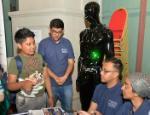
28 June 2017
Queen Mary University of London (QMUL) celebrated a day of science research with a festival for London school kids.
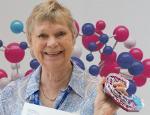
27 June 2017
Professor Fran Balkwill from Queen Mary University of London (QMUL) has been awarded an Engagement Prize by Cancer Research UK.
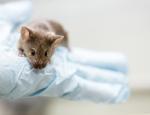
26 June 2017
The first results from a functional genetic catalogue of the laboratory mouse have been shared with the research community, revealing new insights into a range of rare diseases and the possibility of accelerating development of new treatments and precision medicine.
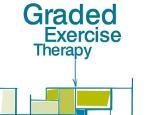
23 June 2017
A self-help approach to a graded exercise programme, supervised by a specialist physiotherapist, is safe and may reduce fatigue for some people with chronic fatigue syndrome (CFS), according to a new trial of 200 people published in The Lancet. The intervention, undertaken over 12 weeks, had a smaller effect on reducing physical disability.
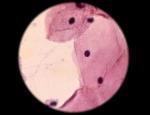
22 June 2017
Women who receive human papillomavirus (HPV) testing, in addition to a pap smear, receive a faster, more complete diagnosis of possible cervical precancer, according to a study of over 450,000 women by Queen Mary University of London (QMUL) and the University of New Mexico (UNM) Comprehensive Cancer Center.
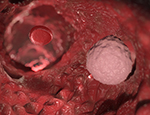
15 June 2017
Patients who have aggressive prostate cancer could be identified by a highly accurate and simple blood test, according to an early study by Queen Mary University of London (QMUL).

14 June 2017
Teenagers with asthma are embarrassed to use their inhalers even though they could prevent life-threatening asthma attacks, a new study by Queen Mary University of London (QMUL) has found.
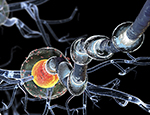
12 June 2017
Through a Freedom of Information request to the European Medicines Agency, researchers from Queen Mary University of London (QMUL) have gained access to data from drug trials, revealing new information about a key drug for multiple sclerosis (MS).
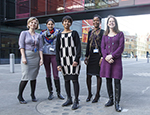
10 June 2017
Queen Mary University of London (QMUL) has received £2m from Barts Charity to launch the Barts Research Centre for Women's Health, with the aim of tackling problems that affect mothers and their unborn and newborn children.
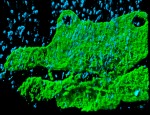
9 June 2017
The cross-faculty Life Sciences Initiative (LSI) at Queen Mary University of London (QMUL) hosted its first Image Awards to celebrate well-being, health, technology and beauty in science.
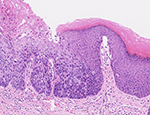
26 May 2017
A new genetic test could be an accurate and inexpensive way to find and treat those at highest risk of anal cancer - a disease with growing incidence in women, men who have sex with men (MSM) and people with HIV.

24 May 2017
Clinicians, policy makers, military charities and the media attended the third Forces in Mind Trust (FiMT) conference held at Queen Mary University of London (QMUL) on 16 May, exploring mental illness in UK armed forces and efforts towards changing public understanding.
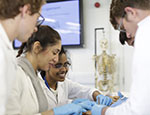
16 May 2017
Queen Mary University of London (QMUL) is 2nd in the UK for Dentistry, 3rd for Medicine and Law, and 4th for Film, as published today in the Guardian University Guide for 2018.

16 May 2017
For women who miss a breast screening appointment, giving a fixed date and time for a new appointment could improve poor attendance and be a cost-effective way to shift national participation trends, according to an analysis led by Queen Mary University of London (QMUL).
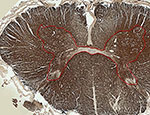
12 May 2017
Some common assumptions about the nature of multiple sclerosis (MS) are being challenged in two new studies led by Queen Mary University of London (QMUL) that analyse the brains and spinal cords of patients.

5 May 2017
Researchers from Queen Mary University of London (QMUL) have launched a new study to look at how older patients manage when they are prescribed multiple medications.

3 May 2017
Patients report more side effects when they know they are taking a statin, than when they do not know whether they are on the drug or a dummy pill, according to a study by researchers from Imperial College London and Queen Mary University of London (QMUL).
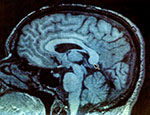
28 April 2017
Queen Mary University of London (QMUL) will establish a new Centre for Preventive Neurology, thanks to £1.5m of funding from Barts Charity.
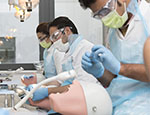
26 April 2017
Queen Mary University of London (QMUL) is the UK’s highest ranking university for Dentistry, as published today in The Complete University Guide league table for 2018.
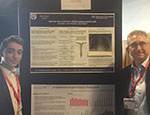
23 April 2017
A team of clinical researchers from Queen Mary University of London (QMUL) and the Barts Heart Centre have won a prestigious prize at the Society of Cardiothoracic Surgery’s Annual Meeting in Belfast.
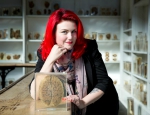
19 April 2017
A new book by Carla Valentine, pathology technician at Queen Mary University of London (QMUL), reveals her experience of working with the dead and what she has seen behind the doors of our mortuaries.

10 April 2017
Some stroke survivors say they are disregarding GP advice on secondary prevention medications, such as statins, with some patients stopping their medication completely after only one or two consultations, according to a study of an online stroke forum led by Queen Mary University of London (QMUL).
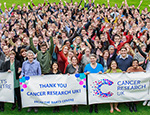
3 April 2017
The Cancer Research UK Barts Centre at Queen Mary University of London (QMUL) has received an award of over £10 million to renew its status as an official CRUK Centre.
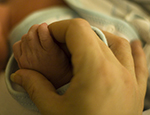
30 March 2017
A new tool developed by researchers from Queen Mary University of London (QMUL) could save mothers’ and babies’ lives by predicting whether women with early onset pre-eclampsia are safe to prolong their pregnancy.

29 March 2017
Poor asthma control and knowledge are common in children with doctor-diagnosed asthma, according to research by Queen Mary University of London (QMUL).
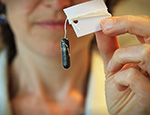
28 March 2017
A clinical trial designed by Queen Mary University of London (QMUL) will allow GP surgeries to test for Barrett’s oesophagus – a condition that can increase the risk of developing oesophageal cancer.

7 March 2017
A protein has been found to have a previously unknown role in the ageing of cells, according to an early study by Queen Mary University of London (QMUL). The researchers hope that the findings could one day lead to new treatments for ageing and early cancer.
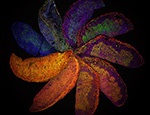
6 March 2017
A researcher from Queen Mary University of London (QMUL) has been announced as one of the winners of the Wellcome Image Awards 2017.
_cervix-150.jpg)
1 March 2017
Taking a small sample of cells from women at high-risk of cervical cancer could be a cost-effective and accurate strategy for early diagnosis in low and middle income countries, according to research led by Queen Mary University of London (QMUL).

16 February 2017
A study led by Queen Mary University of London (QMUL) finds that vitamin D supplements protect against acute respiratory infections including colds and flu.

14 February 2017
Women who participate in obstetric and gynaecology clinical trials experience improved health outcomes compared to those who are not involved in trials, according to research by Queen Mary University of London (QMUL). This is the case regardless of whether or not the treatment is found to be effective in the trial.

10 February 2017
Researchers find link between a high fat diet, obesity and cardiovascular disease risk.

9 February 2017
Queen Mary University of London (QMUL) and NHS Blood & Transplant have been awarded £2.4m from the National Institute for Health Research and Barts Charity to carry out a large multi-centre clinical trial to evaluate a new treatment in major traumatic haemorrhage.

8 February 2017
After all their inspiring work the winners of QMUL’s Engagement and Enterprise Awards 2017 were announced at a ceremony held in The Octagon last night.

7 February 2017
A researcher at Queen Mary University of London (QMUL) has co-organised a workshop that focuses on herbal medicine in Vietnam and its application in translational research on skin.

2 February 2017
Over 80 new genetic variants that strongly influence human height have been discovered in a study led by Queen Mary University of London (QMUL), Montreal Heart Institute, The Broad Institute and the University of Exeter.

30 January 2017
Scientists have found 107 new gene regions associated with high blood pressure, potentially enabling doctors to identify at-risk patients and target treatments.

17 January 2017
Queen Mary University of London (QMUL) and Barts Health NHS Trust (BH) announce plans for a major new centre for Life Sciences in Whitechapel, home to the Royal London Hospital and a campus of QMUL’s Barts and The London School of Medicine and Dentistry.

13 January 2017
Queen Mary University of London (QMUL) has been awarded $1.5m (£1.2m) by Edwards Lifesciences to carry out a study into a debated therapy for preventing complications, especially infections, after major surgery.
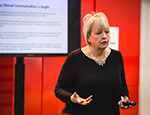
9 January 2017
In this blog post, Jo Brown, Head of Quality in Teaching and Learning at QMUL’s School of Medicine and Dentistry, talks about her recent experience of teaching Romanian oncologists about successful communication between doctor and patient.

4 January 2017
A smartphone app that could help smokers stick to New Year’s resolutions to quit has been developed by academics at Queen Mary University of London (QMUL) and Kingston University.

30 December 2016
Academics from Queen Mary University of London (QMUL) have been given two appointments of Commander of the Order of the British Empire (CBE) and an appointment of Member of the Order of the British Empire (MBE), as published today in the Queen’s New Year 2017 Honours List.
-150.jpg)
20 December 2016
The NHS Health Check programme in England may have prevented an estimated 4,600 to 8,400 heart attacks, strokes, or death from these causes in its first five years, according to an independent review of the programme led by Queen Mary University of London (QMUL).

16 December 2016
Researchers from Queen Mary University of London (QMUL) have been awarded grants totalling £1m for medical research projects in low and middle income countries (LMICs).

12 December 2016
Treating a type of white blood cell using hormones could improve the development of the placenta in women with pregnancy complications, according to early research led by Queen Mary University of London (QMUL) involving mice and human blood samples.

2 December 2016
The UK’s health watchdog has recommended the use of a cancer treatment drug to prevent the disease, after studying evidence from research by Queen Mary University of London (QMUL).

1 December 2016
Planning permission has been granted for the construction of a new science education space in Whitechapel, East London at Centre of the Cell, Queen Mary University of London (QMUL).

24 November 2016
Karim Brohi, Professor of Trauma Sciences at Queen Mary University of London (QMUL), has received a Lifetime Achievement Award in Resuscitation Science from the American Heart Association.
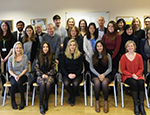
23 November 2016
The Unit for Social and Community Psychiatry has been re-designated as a World Health Organization (WHO) Collaborating Centre.

16 November 2016
Degrees in Medicine taught on the Mediterranean island country of Malta are now open for applications for 2017 entry.

15 November 2016
The sugar content in carbonated sugar-sweetened beverages was found to be up to 52.8 grams per 330 mL can, or 12 teaspoons, according to a study by Queen Mary University of London (QMUL).

10 November 2016
Professor Jo Martin from Queen Mary University of London (QMUL) has been elected to be the next president of The Royal College of Pathologists – a professional membership organisation concerned with the science and practice of the study of disease.

2 November 2016
A high-level delegation from Queen Mary University of London (QMUL) will be visiting India from 5-17 November, with the aim of raising the university’s profile, developing new partnerships and building on the university’s success in recruiting Indian students.
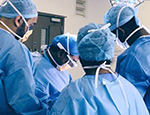
1 November 2016
International survey also indicates 1.5 million people die following complications Data gathered in 27 countries is first global evaluation of surgical outcomes and mortality rates Infection of surgical wounds is found to be most frequent complication Survey finds deaths following complications at similar levels in low, middle and high income countries Authors call for hospitals worldwide to work to reduce the incidence of preventable complications

31 October 2016
Having extreme pro- or anti-British views is associated with violent and antisocial behaviour and indicates deepening divisions in society, according to a study by Queen Mary University of London (QMUL).
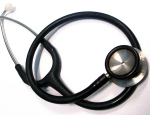
27 October 2016
Inherited heart disease can be successfully detected within families by screening one-to-two year old children at the time of their routine vaccinations, according to a clinical study led by researchers at Queen Mary University of London (QMUL) that involved over 10,000 children.
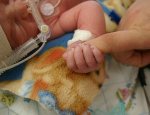
24 October 2016
A protein found in the blood of pregnant women could be used to develop tests to determine the health of their babies and aid decisions on early elective deliveries, according to an early study led by Queen Mary University of London (QMUL).
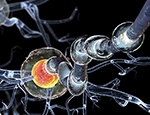
13 October 2016
A drug used to treat multiple sclerosis (MS), alemtuzumab, was found to reverse some of the physical disability caused by the disease, according to new research led by Queen Mary University of London (QMUL).

11 October 2016
Data on injuries can be collected relatively easily at A&E departments to help understand injury patterns in communities, a study by researchers at Queen Mary University of London (QMUL) has found.
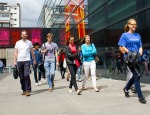
4 October 2016
Queen Mary University of London (QMUL) has entered into a new student exchange agreement with Columbia University in the City of New York for the 2017-18 academic year.
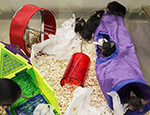
30 September 2016
Mice that are given toys and placed in stimulating surroundings have healthier immune systems, according to a study by Queen Mary University of London (QMUL).
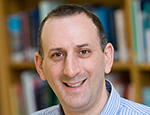
16 September 2016
Cervical screening prevents 70 per cent of cervical cancer deaths and if all eligible women regularly attended screening this would rise to 83 per cent, according to research led by Queen Mary University of London (QMUL)
16 September 2016
Sherbet ‘cremains’, skeleton shortbread and the scent of death all feature in a festival focusing on bodily decay at Barts Pathology Museum, part of Queen Mary University of London (QMUL).
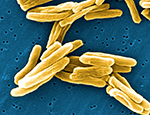
15 September 2016
Cure rates for multi-drug-resistant tuberculosis (MDR-TB) in Europe have been estimated to be twice as high as previously thought, according to a research team at Queen Mary University of London (QMUL).
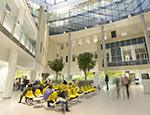
15 September 2016
East Londoners are set to benefit from a £6.5m national grant that will enable world-leading researchers to turn theories within laboratories into reality, improving the care of local people with heart disease.
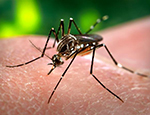
14 September 2016
European surveillance systems in Europe can detect increases in microcephaly (babies born with an abnormally small head) due to the Zika virus of a similar magnitude to those observed in Brazil, according to research led by Queen Mary University of London (QMUL).
13 September 2016
Thirty-one new gene regions linked with blood pressure have been identified in one of the largest genetic studies of blood pressure to date, involving over 347,000 people, and jointly led by Queen Mary University of London (QMUL) and the University of Cambridge.

8 September 2016
Depressive symptoms are associated with a higher risk of sympathies for violent protest and terrorism (SVPT), according to a study led by Queen Mary University of London (QMUL).
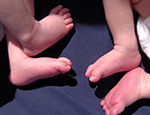
7 September 2016
Scientists at Queen Mary University of London (QMUL) have analysed the twin pregnancies of more than 30,000 women to identify the ideal delivery period in an attempt to reduce rates of stillbirth.

6 September 2016
Taking an oral vitamin D supplement in addition to standard asthma medication is likely to reduce severe asthma attacks, according to research led by Queen Mary University of London (QMUL).

22 August 2016
New research by Queen Mary University of London (QMUL) and the Health Policy Consult in Ghana shows that prescribing indicators for Africa deviate significantly from targets set out by the World Health Organization (WHO).

19 August 2016
The majority of smokers who successfully switch to vaping say they have fewer respiratory infections, according to a study led by Queen Mary University of London (QMUL).
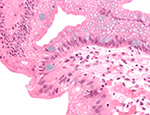
19 August 2016
Genetically analysing lesions in the food pipe could provide an early and accurate test for oesophageal cancer.
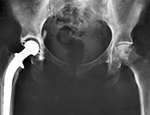
28 July 2016
Patient choice and the use of the private sector for hip surgery in Scotland was found to be associated with a decrease in NHS provision and may have contributed to an increase in age-related and socio-economic treatment inequalities, according to research by Queen Mary University of London (QMUL).
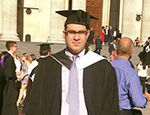
27 July 2016
A medical student from Queen Mary University of London (QMUL) has won the highly prestigious University of London Gold Medal.
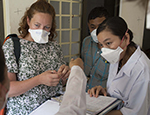
26 July 2016
In her second blog post from Cambodia with RESULTS UK, QMUL's Dr Jess Potter reports from a multidrug-resistant tuberculosis ward in Phnom Penh and highlights the impossible choices that have to be made with limited funding.
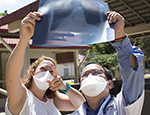
21 July 2016
In this blog post, QMUL's Dr Jess Potter reflects on the scale of Cambodia's hidden TB epidemic and what she is experiencing on her trip through rural communities with RESULTS UK.
14 July 2016
World-leading cancer scientist and QMUL alumna, Professor Karen Vousden CBE, has been appointed as Cancer Research UK’s new chief scientist.
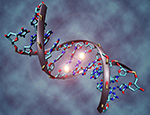
8 July 2016
The process by which a mother’s diet during pregnancy can permanently affect her offspring’s attributes, such as weight, could be strongly influenced by genetic variation in an unexpected part of the genome, according to research led by Queen Mary University of London (QMUL).
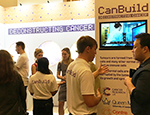
5 July 2016
An exhibit about cancer research by Queen Mary University of London (QMUL) is on display at the Royal Society’s Summer Science Exhibition from now until Sunday 10th July.
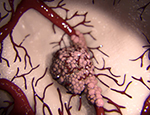
23 June 2016
Cancer cells appear to depend on an unusual survival mechanism to spread around the body, according to an early study led by Queen Mary University of London (QMUL). The discovery could help with future development of novel treatments to prevent metastasis and secondary tumours.

6 June 2016
Former England international rugby players are set to be recruited for a major-scientific study examining the possible long-term effects of the game on brain health.
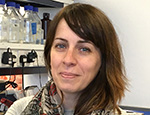
2 June 2016
Dr Susana Godinho from Queen Mary University of London (QMUL) has been awarded the Lister Prize Fellowship for her visionary work on cancer.

27 May 2016
Malnourished children are most likely to die from common infections, not starvation alone. Immune disorder may be part of the cause, according to a review led by Queen Mary University of London.
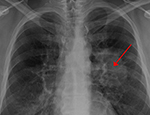
26 May 2016
The UK Lung cancer screening trial (UKLS) has demonstrated that patients with a high risk of developing lung cancer can be identified with early stage disease, and over 80 per cent were given surgery as a treatment.
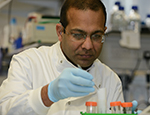
24 May 2016
The addition of high doses of a form of vitamin A could help make chemotherapy more successful in treating pancreatic cancer, according to an early study by Queen Mary University of London (QMUL).
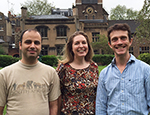
11 May 2016
Three researchers from Queen Mary University of London (QMUL) have been awarded £100,000 each by the Academy of Medical Sciences.

10 May 2016
A modest reduction in salt intake could reduce the risk of strokes, heart attacks and kidney disease in people with early onset type 2 diabetes, according to a study by Queen Mary University of London (QMUL) and St. Helier Hospital.
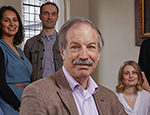
29 April 2016
Professor Jack Cuzick from Queen Mary University of London (QMUL) has been elected as a new Fellow of the Royal Society. The election is in recognition of his achievements in the application of basic science discoveries to the practice of medicine, particularly preventive medicine in cancer.
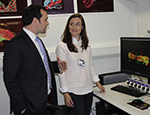
26 April 2016
Chris Green MP, Stephen Timms MP and Baroness Neville-Jones were welcomed by researchers at Queen Mary University of London (QMUL) on a visit organised by the British Heart Foundation (BHF).

15 April 2016
A new toothpaste ingredient which puts back the lost minerals from tooth enamel and helps prevent decay and treat sensitivity while you sleep has been developed by Queen Mary University of London (QMUL).

7 April 2016
‘Invisible impairments’ can make it difficult for stroke survivors to maintain a job, according to a study from Queen Mary University of London (QMUL) and the University of Cambridge.

18 March 2016
Environmental factors may be playing a much greater role in the onset of multiple sclerosis (MS) than previously realised, according to early research led by Queen Mary University of London and Barts Health NHS Trust.
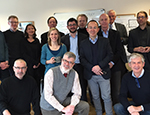
16 March 2016
Queen Mary University of London (QMUL) has hosted 18 experts from five European countries to discuss and explore options for how mental health care could be provided in the future.
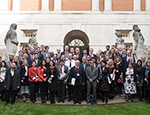
14 March 2016
Two medical researchers from Queen Mary University of London (QMUL) have been given awards by the National Institute for Health Research (NIHR) to recognise their significant contribution to commercial research in the NHS.
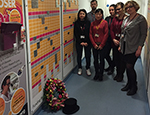
11 March 2016
Many thousands of people who have lost their lives to brain tumours were remembered as a minute’s silence was observed at Queen Mary University of London (QMUL) to mark national Brain Tumour Awareness Month.
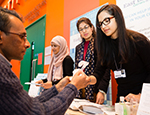
4 March 2016
Only a fraction of genes appear to be essential for human life, according to researchers from the East London Genes & Health project, working with Born in Bradford and others.

2 March 2016
The UK and Irish governments are being warned that they should do more to protect school children from injury, including head trauma, while playing rugby.
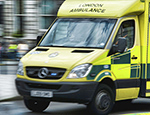
12 February 2016
A common anti-malarial drug Artesunate could be used to reduce organ failure following injury, according to an early study in rats led by Queen Mary University of London (QMUL).

12 February 2016
Scientists have compiled their analysis on how to find success in the world of online dating into a new book released this week. The book is the first of its kind to be based on robust studies of human behaviour.

20 January 2016
Cancers evolve over time in patterns governed by the same mathematical laws that drive natural processes such as the flow of rivers or the brightness of stars, reports a study led by Queen Mary University of London (QMUL) and The Institute of Cancer Research.

15 January 2016
The world’s first national tissue bank for pancreatic cancer is to launch in the UK, to help push forward research into the cancer with the bleakest prognosis.

15 January 2016
The first major evaluation of the NHS Health Check in England, carried out by Queen Mary University of London (QMUL), has found that the programme is effectively identifying people at risk of developing major cardiovascular incidents.

7 January 2016
Reducing sugar content in sugar sweetened drinks (including fruit juices) in the UK by 40 per cent over five years could prevent one million cases of obesity, according to research by Queen Mary University of London (QMUL). This would in turn prevent around 300,000 cases of type 2 diabetes, over two decades.

6 January 2016
A new technique that could be used to test for brain damage in newborn babies has been developed by researchers at Queen Mary University of London (QMUL).
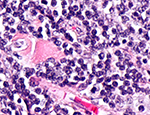
4 January 2016
Mutations present in a blood cancer known as follicular lymphoma have revealed new targets for potential treatments, according to researchers at Queen Mary University of London (QMUL) together with collaborators at the Whitehead Institute for Biomedical Research and Massachusetts Institute of Technology.

23 December 2015
Research and lobbying undertaken by public health experts at Queen Mary University of London (QMUL) has helped change the UK government’s sports strategy.

22 December 2015
Queen Mary University of London (QMUL) and Barts Health NHS Trust have received £10 million from Barts Charity for the creation of a world-class cardiovascular academic medical centre at the Trust’s Barts Heart Centre, St Bartholomew’s Hospital.
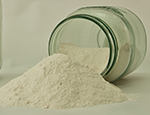
22 December 2015
The UK’s failure to fortify flour with folic acid has caused around 2,000 avoidable cases of neural tube defects since 1998, according to research led by Queen Mary University of London (QMUL).

11 December 2015
The drug anastrozole is effective in treating an early form of breast cancer, according to a clinical trial led by Queen Mary University of London (QMUL).

8 December 2015
Screening for and treatment of an early form of breast cancer has been found to prevent subsequent invasive cancer, according to research led by Queen Mary University of London (QMUL).
-150x115.jpg)
4 December 2015
Queen Mary University of London’s (QMUL) world-class research centre, the Blizard Institute, is celebrating its tenth year.
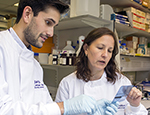
27 November 2015
Queen Mary University of London (QMUL) has received new grants from Pancreatic Cancer UK (PCUK) to fund five projects that aim to improve treatment options for pancreatic cancer patients.
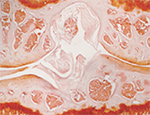
26 November 2015
Arthritis patients could one day benefit from a novel form of medicine, according to researchers at Queen Mary University of London (QMUL). Their early study indicates that arthritic cartilage, previously thought to be impenetrable to therapies, could be treated by a patient’s own ‘microvesicles’ that are able to travel into cartilage cells and deliver therapeutic agents.

25 November 2015
A poo racing video game which aims to change attitudes towards defecation and bowel health has been launched by Queen Mary University of London (QMUL). A second new game, Gene Quest, has also been created to encourage interest in one of the world’s largest genetics studies.
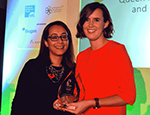
18 November 2015
Professor Gavin Giovannoni and Alison Thomson from the Barts MS Research team at Queen Mary University of London (QMUL) have received an award for outstanding use of information in multiple sclerosis (MS) care.

16 November 2015
Professor Amrita Ahluwalia from Queen Mary University of London (QMUL) has been awarded the 2015 Prize for Research by the WISE (Women in Science and Engineering) Campaign.

11 November 2015
Standard approaches for investigating risk of violence in psychiatric patients and prisoners are inaccurate and should be abandoned in all future studies, according to researchers from Queen Mary University of London (QMUL).
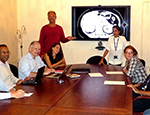
9 November 2015
A trans-Atlantic ‘dream team’, involving scientists and clinicians from Queen Mary University of London (QMUL), has been awarded £8 million to fight pancreatic cancer.
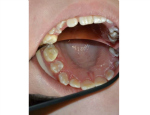
9 November 2015
Scientists led by Queen Mary University of London (QMUL) and Aberystwyth University have revealed ‘sweet points’ for dental fillings, where cement used to fill cracks regain elasticity before hardening indefinitely. This could have implications for creating more durable and longer-lasting fillings in the future.

28 October 2015
Cognitive behavioural therapy and graded exercise therapy could have long term benefits for people affected by Chronic Fatigue Syndrome, according to research by Queen Mary University of London (QMUL), Oxford University and King’s College London.

27 October 2015
The London Trauma System has greatly increased quality of care for trauma patients, according to research from Queen Mary University of London (QMUL) and the London Regional Trauma System.
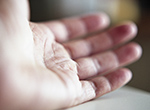
22 October 2015
Collagen has been found to play a role in suppression of blood vessel formation in a type of skin cancer, according to research led by Queen Mary University of London (QMUL). The results suggest that type VII collagen could help suppress tumour formation in the skin.

20 October 2015
QMUL researchers’ study shows positive results when treating both primary progressive and relapsing remitting multiple sclerosis with the drug ocrelizumab.

14 October 2015
East London Genes & Health, the world’s largest community based genetics study, is celebrating its first milestone with 4,000 local participants taking part so far.
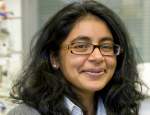
5 October 2015
Professor Amrita Ahluwalia has been nominated in the research category in the awards that recognise those who lead the way for women in science, technology, engineering and maths.
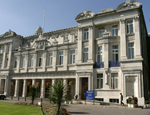
1 October 2015
QMUL rose eight places in Times Higher Education World University Ranking to 98th in the world and is ranked 16th in the UK.

1 October 2015
Leading QMUL cancer researcher Professor Jack Cuzick has been given a prestigious award for his contributions to clinical research.
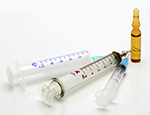
1 October 2015
Researchers from Queen Mary University of London (QMUL) are calling on the medical community to reconsider developing a known drug to treat people with relapsing Multiple sclerosis (MS) after new evidence shows it does not increase the risk of cancer as previously thought.

21 September 2015
Researchers from QMUL, working with other institutions, have found that a diuretic drug that has been in use for over fifty years could be the most effective treatment for a particularly high risk form of high blood pressure.
10 September 2015
A new study shows that pancreatic cancer stem cells (PancSCs) are virtually addicted to oxygen-based metabolism, and could be “suffocated” with a drug already used to treat diabetes.
4 September 2015
The textbook Medical Sciences 2nd Edition published by Elsevier has just won first prize in the British Medical Associations medical book awards in the category of Basic and clinical sciences. The book was edited by Dr Jeannette Naish from QMUL’s Wolfson Institute of Preventive Medicine and Dr Denise Syndercombe Court a QMUL honorary fellow.
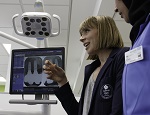
4 September 2015
Queen Mary University of London (QMUL) and Barts Health NHS Trust are delighted to officially open their new dental outreach centre in Stratford, set in the heart of the Olympic Park.

27 August 2015
Scientists from Queen Mary University of London and Barts Health NHS Trust have successfully improved blood pressure control among patients with severe intolerance to antihypertensive medication – by using medicines in unconventional ways and treating patients with a ‘stepped care’ approach (where the most effective yet least intensive treatment is delivered to patients first).

21 August 2015
The quality of general family functioning is a major determinant of healthy dietary habits – according to new research published in the Journal of Caries Research and led by Queen Mary University of London.
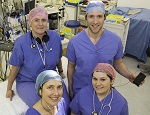
13 August 2015
Scientists have proved that listening to music before, during and after surgery reduces people’s pain, anxiety and need for painkillers – according to the most comprehensive review of available evidence so far, published today in The Lancet.
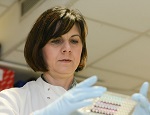
3 August 2015
A combination of three proteins found at high levels in urine can accurately detect early-stage pancreatic cancer, researchers from Queen Mary University of London have found. The discovery could lead to a non-invasive, inexpensive test to screen people at high risk of developing the disease.

24 July 2015
Professor Jack Cuzick, Head of the Centre for Cancer Prevention at Queen Mary University of London, was today recognised for his longstanding achievements in breast cancer research during the Australia and New Zealand Breast Cancer Trials Group's (ANZBCTG) 37th Annual Scientific Meeting (ASM) in Perth, Western Australia.

9 July 2015
Queen Mary University of London’s Barts Cancer Institute (BCI) celebrated its 10 year anniversary with a two day showcase of its research past and present, and launched a commemorative book entitled ‘Every Rational Attempt: The Stories Behind Barts’ Contribution to the Fight Against Cancer’.
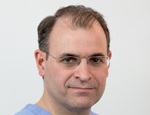
7 July 2015
Professor Nikolaos Donos, an internationally renowned clinical academic consultant, has been appointed Head of Clinical Research and Professor of Periodontology and Implant Dentistry at Queen Mary University of London’s School of Dentistry.

22 June 2015
QMUL is pleased to announce that the next Editor-in-Chief of the British Journal of Pharmacology will be Professor Amrita Ahluwalia, Deputy Director of QMUL’s William Harvey Research Institute.

19 June 2015
We all want a quality health service – but what does this really mean? What does quality in healthcare really look like? Dr Deborah Swinglehurst has been exploring this idea for several years, curious to find out what academics, opinion leaders, healthcare professionals and members of the public really understand by the term ‘quality’ in the healthcare context.
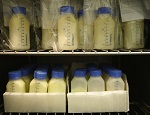
18 June 2015
The recent craze for human breast milk amongst certain fitness communities, fetishists and chronic disease sufferers is potentially dangerous – according to scientists from Queen Mary University of London and published in the Journal of the Royal Society of Medicine.

16 June 2015
A new study has identified how blocking a special set of molecules on the surface of T cells can suppress the heart’s immune response – responsible for transplant rejection and autoimmune diseases such as myocarditis – whilst leaving rest of the body’s immune system intact.

7 June 2015
A simple blood test can predict with 90 to 100 per cent accuracy whether a patient is likely to suffer life-threatening complications after major surgery, according to new research from Queen Mary University of London and published in the journal Annals of Surgery.
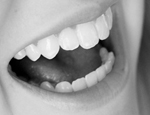
5 June 2015
Researchers from the School of Dentistry within Queen Mary University of London (QMUL) have received nearly £500k in MRC funding to assess the effectiveness of a new injectable bone graft material used to replace missing bone in implant dentistry.
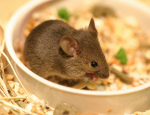
5 June 2015
Massage-like stroking has a positive effect on the immune system of mice by reducing their level of stress.

3 June 2015
Women aged 50-69 years who attend mammography screening reduce their risk of dying from breast cancer by 40 per cent compared to women who are not screened – according to a major international review of the latest evidence on breast cancer screening.

21 May 2015
For the first time, leading experts on brain tumours including Professor Silvia Marino from Queen Mary University of London, will share their insights and identify areas of prospective collaboration to speed up the process of translating research findings from laboratory to clinic.
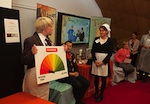
20 May 2015
The Centre of the Cell “is a wonderful emblem of how public engagement is embedded in what this university does,” said QMUL’s Principal, Professor Simon Gaskell, during the science centre’s fifth birthday celebrations.

12 May 2015
Fixed-dose drug combinations (FDCs) which have not received central regulatory approval are sold in substantial numbers in India – despite concerns over the safety and efficacy of these combinations – according to new research led by Queen Mary University of London (QMUL) and published in PLOS Medicine.

30 April 2015
It was all smiles in Whitechapel today as Her Royal Highness The Princess Royal gave Queen Mary University of London’s new Dental School, embedded within The Royal London Dental Hospital, the royal seal of approval.
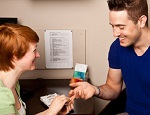
29 April 2015
Training general practices to offer rapid HIV tests leads to increased detection and earlier diagnosis of patients with HIV infection – according to a new study led by Queen Mary University of London (QMUL) and published in The Lancet HIV.
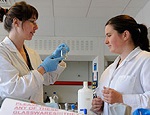
27 April 2015
The School of Medicine within Queen Mary University of London (QMUL) is the recipient of a silver level award in the latest round of the Athena SWAN Charter awards.
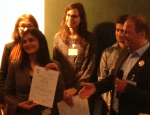
24 April 2015
A post-doctoral researcher from Queen Mary University of London has won a prestigious €1,000 prize for her work on psychiatric diseases.

23 April 2015
Researchers from Queen Mary University of London have uncovered a genetic defect which causes the life-threatening condition ‘dyskeratosis congenita’ (DC) – a rare genetic form of bone marrow failure.

22 April 2015
Government plans to increase participation in rugby within schools fail to take into account data on the serious levels of school rugby-related injury and are happening in the absence of systems for injury surveillance and prevention – according to experts from Queen Mary University of London (QMUL) and published in the BMJ.
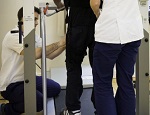
21 April 2015
Queen Mary University of London’s Barts Centre for Trauma Sciences (C4TS) has today launched the new website Aftertrauma.org, the UK’s most comprehensive online resource dedicated to helping trauma survivors – and their families, friends and carers – on their long and complex recovery journey.

16 April 2015
Scientists have discovered a protein that strongly promotes immunity to viruses and cancer, opening the door to new therapies in the future.

1 April 2015
Queen Mary University of London (QMUL) is delighted to announce it has been selected by Health Education England to be part of a cutting- edge new training programme in genomics for healthcare professionals across the country.

18 March 2015
Queen Mary University of London (QMUL) is to launch a new Medical School in the Republic of Malta.

13 March 2015
East London Genes & Health, the world’s largest community based genetics study, has launched today – aiming to improve health among people of Pakistani and Bangladeshi heritage in East London by analysing the genes and health of 100,000 local people.

12 March 2015
QMUL has partnered with imec, Medtronic, Ghent University and others to launch the CARDIS project. Together they will develop and validate an early-stage cardiovascular disease detection platform using integrated silicon photonics.

6 March 2015
Inflammation is the immune system’s natural reaction to an ‘aggressor’ in the body or an injury, but if the inflammatory response is too strong it becomes harmful. For example, inflammation in the brain occurs when a person has a stroke, or when suffering from neurological diseases such as Alzheimer’s and Parkinson’s.

4 March 2015
Billions of people across the globe are suffering the consequences of untreated tooth decay (cavities) – which include toothache and dental abscesses – according to new research published in the Journal of Dental Research.
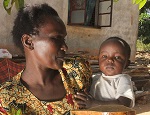
27 February 2015
Global health experts believe the current data on cancer prevalence, incidence and mortality in sub-Saharan Africa – which determines how billions of pounds of international development money is spent – are weak and could mean vital funds are being deflected from other priorities. These include diarrhoeal and waterborne diseases, malnutrition, sanitation and the need to strengthen health systems.
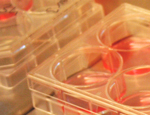
20 February 2015
Queen Mary University of London (QMUL) and Takeda Pharmaceutical Company Limited today announced a major research collaboration aiming to define new insights and develop novel therapies in gastroenterology.

18 February 2015
A Queen Mary University of London (QMUL) medicine student has been shortlisted for a national volunteering award after creating a project to help chronically ill young children.

18 February 2015
Scientists have developed a new HPV (human papilloma virus) vaccine which protects against nine types of the virus – seven of which cause most cases of cervical cancer. The new vaccine offers significantly greater protection than the current vaccine, which protects against only two cancer causing types of HPV.
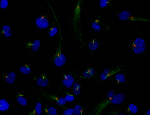
16 February 2015
Scientists have found that reducing the size of tiny hair like structures on stem cells stops them turning into fat. The discovery could be used to develop a way of preventing obesity.

13 February 2015
An online profile name beginning with letters A-M is as important as an attractive photo and fluent headline when it comes to being successful in the world of online dating, according to scientists.
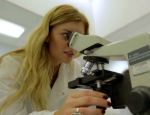
12 February 2015
Queen Mary University of London (QMUL) has produced a short film to support Boris Johnson’s trade mission to America to promote London as a world class study destination.

6 February 2015
In a recent study Dianna Smith and Graham Kirkwood, of QMUL’s Blizard Institute, found there were more childhood injuries in areas of deprivation but, they write, with a thorough recording process better prevention can take place.

5 February 2015
New research has predicted one in two people in the UK will develop cancer at some point in their lives, according to the most accurate forecast to date from Queen Mary University of London and Cancer Research UK.

4 February 2015
Queen Mary University of London and UCL have agreed to establish a joint Cardiovascular Institute to rise to the global challenge of cardiovascular disease.

4 February 2015
New research has predicted one in two people in the UK will develop cancer at some point in their lives, according to the most accurate forecast to date from Queen Mary University of London and Cancer Research UK.

23 January 2015
A revolutionary device has been shown to significantly lower blood pressure among patients with uncontrolled high blood pressure, compared to those treated with usual drug measures – according to research from Queen Mary University of London and published in The Lancet.

19 January 2015
Drinking a daily cup of beetroot juice has been shown to significantly lower blood pressure among patients with high blood pressure, according to scientists from Queen Mary University of London.
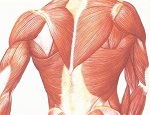
15 January 2015
Researchers have successfully improved the ability of muscle to repair itself – by artificially increasing levels of the BMI1 gene in the muscle-specific stem cells of mice with muscular dystrophy.

13 January 2015
Scientists from Queen Mary University of London (QMUL) have been awarded a Specialist Programme Grant of £1.4 million from the charity Leukaemia & Lymphoma Research. The programme aims to uncover the cause(s) of familial leukaemia and myelodysplasia–blood disorders that cause a life threatening drop in the number of healthy blood cells – and will begin in April 2015.
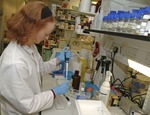
23 December 2014
A new combination of two different approaches – virotherapy and immunotherapy - is showing “great promise” as a treatment for pancreatic cancer, according to new research from QMUL.

11 December 2014
The preventive effect of breast cancer drug ‘tamoxifen’ remains virtually constant for at least 20 years – with rates reduced by around 30 per cent – new analysis published in The Lancet Oncology reveals.

4 December 2014
Dr Neha Pathak, an Academic Clinical Fellow from Queen Mary University of London, was last night awarded the ‘Ultimate Game Changer’ prize at the Cosmopolitan Ultimate Women Awards.

2 December 2014
Vitamin D supplements can reduce COPD lung disease flare-ups by over 40% in patients with a vitamin D deficiency – according to new research from Queen Mary University of London.

27 November 2014
Scientists from Queen Mary University of London's Barts Cancer Institute have made a breakthrough in developing a new therapy for advanced bladder cancer – for which there have been no major treatment advances in the past 30 years.

25 November 2014
Public health experts, doctors, professional sports players and parents are gathering at Queen Mary University of London (QMUL) on 27-28 November to debate issues around children and sport, including managing injury and increasing participation.

17 November 2014
New plans to regenerate the Whitechapel area have been recognised at the national 2014 Planning Awards.
7 November 2014
One in six women who have a large amount of tissue removed (15+mm) during colposcopy, to treat abnormal cells on the cervix, will go on to have a premature birth. This is double the number compared to those who have only a small amount removed – according to new findings from Queen Mary University of London.

3 November 2014
A team of researchers led by Queen Mary University of London (QMUL) have been awarded the 2014 Cancer Research UK Prize for Translational Cancer Research at the NCRI Cancer Conference in Liverpool.

8 October 2014
Licence conditions imposed by the health sector regulator, Monitor, on NHS foundation trusts in England will lead to a reduction in hospital community services under the guise of ‘continuity’, warn experts from Queen Mary University of London.
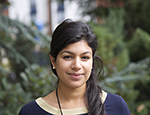
8 October 2014
The Royal College of Obstetricians and Gynaecologists has awarded the Edgar Gentilli Prize to Dr Neha Pathak, a QMUL academic clinical fellow, for her research on a urine test for cervical cancer.
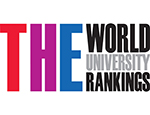
1 October 2014
Queen Mary University of London (QMUL) has been named amongst the top 50 universities in the world for Medicine in the influential Times Higher Education World University Rankings 2014-15.

25 September 2014
Members of the British Muslim community who are most at risk of radicalisation are more likely to have depression and be socially isolated, a pioneering research study led by Queen Mary University of London has found.
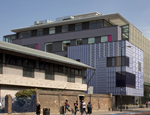
22 September 2014
Drama, Medicine and Dentistry at Queen Mary University of London (QMUL) all appear in the UK’s top 5 in the influential The Times and The Sunday Times Good University Guide 2015, released on Sunday 21 September.
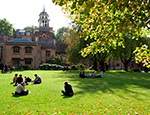
18 September 2014
A Queen Mary University of London postgraduate course focusing on the science of hormone medicine has been shortlisted at this year’s national e-learning awards, in the category of ‘best online distance learning programme’.

18 September 2014
A new approach to arthritis treatment, which avoids unforeseen side-effects by delivering drugs exclusively to affected inflamed joints, has been developed by researchers at Queen Mary University of London.

5 September 2014
World leading tobacco experts, including Professor Peter Hajek from Queen Mary University of London (QMUL), argue that a recently published World Health Organization (WHO)-commissioned review of evidence on e-cigarettes contains important errors, misinterpretations and misrepresentations.
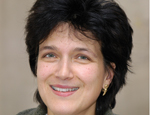
1 September 2014
Leading public health experts have launched a consultation on a new Bill which aims to reverse the failings of the Health and Social Care Act 2012 and fully restore the National Health Service (NHS) in England as an accountable public service.

14 August 2014
Scientists from Queen Mary University of London (QMUL) who specialise in genetics of the skin are investigating an unlikely link between skin disease and heart disease which will hopefully shed new light on why someone is predisposed to sudden cardiac death syndrome.
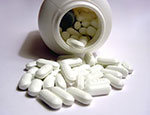
5 August 2014
New research from Queen Mary University of London (QMUL) reveals taking aspirin can significantly reduce the risk of developing – and dying from – the major cancers of the digestive tract, i.e. bowel, stomach and oesophageal cancer.
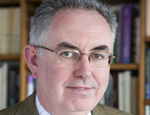
1 August 2014
Queen Mary University of London (QMUL) has been awarded £24m from the MRC to support Genomics England in the delivery of the Government's 100,000 Genomes Project. The award will go directly towards providing cutting-edge Genomics Medicine Data Architecture.

3 July 2014
A campaign to put patient care at the centre of evidence-based medicine (EBM) is launched today by Professor Trish Greenhalgh, Public Health expert at Queen Mary University of London, at the BioMed Central’s Health Services Research conference at Kings’ College London.
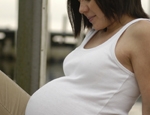
13 June 2014
Queen Mary University of London (QMUL) is today launching a new East London based study looking into the effects of a Mediterranean diet during pregnancy, and its ability to reduce pregnancy-related complications such as pre-eclampsia.

14 May 2014
A league table measuring the scientific performance of some 750 universities worldwide rates Queen Mary University of London (QMUL) 9 th in the UK and 52 nd globally.
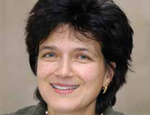
1 May 2014
Writing in The Lancet today (Friday 2 May 2014), Allyson Pollock, Professor of Public Health Research and Policy and Peter Roderick, Barrister and Senior Research Fellow at Queen Mary University of London, call for crucial new amendments to the Care Bill in order to restore public trust in the use of patients’ data and to secure the on-going availability of genuinely anonymised information for public health research, planning and audit.
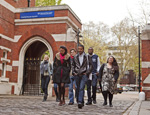
22 April 2014
Genomics England – the company set up by the Department of Health to deliver the Government’s 100,000 Genomes Project – will move into newly refurbished headquarters on Queen Mary University of London’s Charterhouse Square campus from 21 April 2014.

12 December 2013
Taking the breast cancer drug anastrozole for five years reduced the chances of post-menopausal women at high risk of breast cancer developing the disease by 53 per cent compared with women who took a placebo, according to a study published in the Lancet today.

9 December 2013
Researchers from Queen Mary University of London are conducting a study looking to prevent heart attacks through personalised online advice on how to improve your health and lifestyle.

3 December 2013
New research from Queen Mary University of London has revealed, for the first time, the molecule αvβ6 (alpha v beta 6) could tell doctors which cases of Ductal Carcinoma in Situ (DCIS), a condition where non-invasive cancerous cells are contained within the milk ducts of the breast, are most likely to develop into early ‘invasive’ breast cancer.
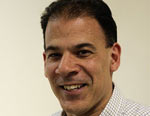
2 December 2013
Professor Seif Shaheen from Queen Mary University of London will be taking time out from his research as an epidemiologist to venture into the world of politics.
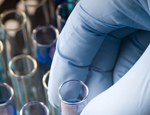
27 November 2013
Queen Mary University of London is working to create a new test which helps pinpoint the most effective treatment to tackle the skin condition psoriasis – as part of a world-leading partnership between King’s College London, the University of Manchester, Liverpool University and Newcastle University.

26 November 2013
To mark this year’s World AIDS Day (1 December), a leading HIV researcher at Queen Mary University of London will explore whether infection by the virus is a death sentence at a ‘Big Question’ lecture in Whitechapel on Tuesday 10 December.

20 November 2013
Research from Queen Mary University of London reveals positive aspects of working life – such as high levels of control at work, good support from supervisors and colleagues, and feeling cared for – support higher levels of wellbeing among Britain’s workers.

19 November 2013
New research from Queen Mary University of London shows released prisoners with schizophrenia are three times more likely to be violent than other prisoners, but only if they receive no treatment or follow-up support from mental health services.

5 November 2013
Biochemistry lecturer Dr Mark Roberts will fight fierce competition from the world of infection research, as he aims to become the next Queen Mary University of London winner of popular science competition I’m a Scientist, Get Me Out of Here!

4 November 2013
Several of the world’s most renowned trauma teams, including Queen Mary University of London in partnership with The Royal London Hospital, are embarking on an extensive five-year project to investigate abnormal bleeding in trauma patients.

31 October 2013
Centre of the Cell at Queen Mary University of London - the first science education centre in the world to be located within working biomedical laboratories - has teamed up with a top London tour guide to host an evening walking tour celebrating the East End’s medical history.

28 October 2013
Starving cancer cells of a key amino acid slows down their ability to grow and multiply, according to new research from Queen Mary University of London, announced today at the World Conference on Lung Cancer.

22 October 2013
New research led by Queen Mary University of London reveals offering modest financial incentives to patients with psychotic disorders is an effective method for improving adherence to antipsychotic treatment.
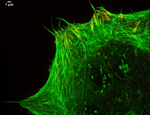
10 October 2013
A new method of imaging cells is allowing scientists to see tiny structures inside the ‘control centre’ of the cell for the first time.

9 October 2013
Exposure to high levels of aircraft noise is associated with an increased risk of cardiovascular disease, find two studies published on bmj.com today, accompanied by an editorial by Queen Mary University of London’s Professor Stephen Stansfeld.
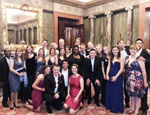
7 October 2013
A unique housing scheme set up by students at Queen Mary University of London’s medical school, to provide student accommodation in east London alongside senior citizens in need of support, celebrated its 25th anniversary this week.

3 October 2013
The school of medicine and dentistry at Queen Mary University of London is 8th in the UK and 57th in the world, according to the Times Higher Education (THE) World University Rankings 2013-14, which were published today.

3 October 2013
Vicious vampires, microscopic monsters, deadly diseases and an interactive trauma show come to Centre of the Cell, Queen Mary University of London’s science education ‘Pod’ in Whitechapel, this half-term.

2 October 2013
Risk assessment tools used to predict prisoner re-offending are no more accurate than tossing a coin when it comes to psychopaths, according to new research from Queen Mary University of London.

1 October 2013
Unique DNA markings on certain genes may “predict” the risk of developing head and neck cancer, according to new research led by Queen Mary University of London.
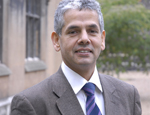
24 September 2013
A Queen Mary University of London academic and leading researcher in socio-cultural influences, health inequalities and public mental health has been appointed Editor of the British Journal of Psychiatry (BJP) – one of the world’s most respected medical journals.

20 September 2013
Actors Amanda Redman MBE and Alun Armstrong made a guest appearance at Queen Mary University of London on Friday 20 September, as part of an awareness raising campaign to encourage people to check their blood pressure – one of the early warning signs of a potential stroke or heart attack.
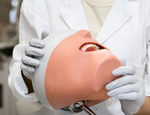
12 September 2013
An innovative dental hygiene and therapy course at Queen Mary University of London, which changed the shape of training across the UK, celebrates its 30th anniversary this month.

8 September 2013
Electronic cigarettes are as effective as nicotine patches in helping smokers quit the habit, a study involving more than 650 smokers has found.
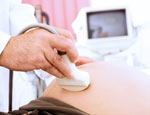
6 September 2013
One baby in every 46 was born with a congenital anomaly in 2011 according to the third annual report by the British Isles Network of Congenital Anomaly Registers (BINOCAR), released today (Friday 6 September 2013).
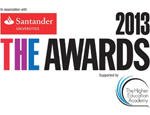
5 September 2013
A public screening programme led by a Queen Mary University of London researcher, which found people living with a 1,500-year-old genetic mutation connected to extreme growth, has been shortlisted for Research Project of the Year at the prestigious Times Higher Education Awards 2013.
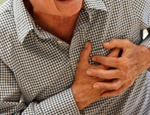
2 September 2013
A preventive procedure for heart attack patients reduces the risk of future serious or fatal cardiac problems by 65 per cent, finds a multicentre study coordinated by researchers from the Wolfson Institute of Preventive Medicine, at Queen Mary University of London.
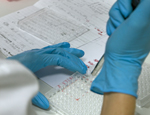
9 August 2013
Queen Mary University of London is part of a medical research collaboration that has been awarded £9 million of Government funding to address public health challenges in the south-east.
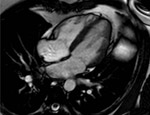
1 August 2013
Scientists in London are looking for individuals to take part in a new “e-health” trial which aims to see if computer technologies – such as the internet and emails – can help to reduce people’s chance of suffering a heart attack or stroke.
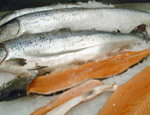
1 August 2013
Omega-3 fatty acids, contained in oily fish such as salmon and trout, selectively inhibit growth and induce cell death in early and late-stage oral and skin cancers, according to new research from scientists at Queen Mary, University of London.
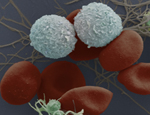
29 July 2013
Scientists studying an aggressive form of leukaemia have discovered that rather than displacing healthy stem cells in the bone marrow as previously believed, the cancer is putting them to sleep to prevent them forming new blood cells.

23 July 2013
Plans to regulate electronic cigarettes as medical devices could jeopardise enormous potential benefits to public health, warns a leading smoking cessation specialist from Queen Mary, University of London.

19 July 2013
Queen Mary, University of London is keeping the Olympic and Paralympic legacy alive with the launch of a support programme for Tower Hamlets’ most talented young athletes.

18 July 2013
A new smartphone app that will enable men to last longer in the bedroom by tackling premature ejaculation during sex has been created by QApps, Queen Mary, University of London’s app store.
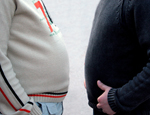
18 July 2013
Researchers have identified a genetic cause of severe obesity that, though rare, raises new questions about weight gain and energy use in obese individuals.

12 July 2013
Young men who are gang members suffer unprecedented levels of psychiatric illness, placing a heavy burden on mental health services, according to new research led by Queen Mary, University of London.
9 July 2013
Researchers at Queen Mary, University of London are working with patients to encourage different generations to learn together about the world of clinical trials.
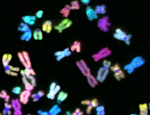
5 July 2013
Professor Mark Caulfield, Director of the William Harvey Research Institute at Queen Mary, University of London, has been named as the Chief Scientist of Genomics England – the company launched by the government today to drive forward the introduction of high-tech DNA mapping.
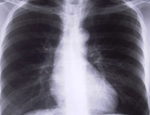
4 July 2013
The immune response to the bacterium that causes tuberculosis (TB) varies between patients of different ethnic origin, raising important implications for the development of tests to diagnose and monitor treatment for the disease, according to new research published today in the journal PLOS Pathogens.
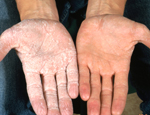
3 July 2013
Scientists have identified the genetic cause of a rare skin condition that causes the hands and feet to turn white and spongy when exposed to water.
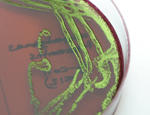
3 July 2013
Scientists at Queen Mary, University of London are part of a national study seeking to establish the most significant reservoirs of an antibiotic resistant bacteria known as ESBL-positive E.coli that cause human and animal disease.
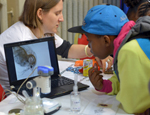
26 June 2013
Hundreds of local school children found out how caffeinated drinks affect the heartbeat of a flea at the third annual Barts and Queen Mary Science Festival on Tuesday 25 June.
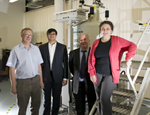
26 June 2013
Researchers at Queen Mary, University of London have received the materials science Venture Prize for developing a new degradable particle which could bring toothache relief to millions.
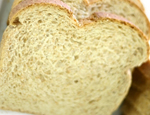
18 June 2013
Salt levels in UK bread have fallen by an average of 20 per cent over the last 10 years, according to new research from Queen Mary, University of London.

14 June 2013
Testing women for the Human Papilloma Virus (HPV) first, instead of the traditional cervical screening test to detect abnormal cells in the cervix, could prevent around 600 cases of cervical cancer a year in England according to new research from Queen Mary, University of London.
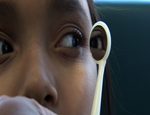
10 June 2013
A unique child-led study by Queen Mary, University of London has challenged the common perception that children fear a trip to the dentist. The research shows that even the most anxious child can cope well with their feelings if they are treated with honesty.

4 June 2013
They may appear to be a sweet treat, but a new study from researchers at Queen Mary, University of London, has revealed the high level of salt in many biscuits.

30 May 2013
Billions of people across the globe are suffering from major untreated dental problems, according to a new report led by Professor Wagner Marcenes of Queen Mary, University of London, published in the Journal of Dental Research.

28 May 2013
Students at Queen Mary, University of London have the chance to solve problems in healthcare and win £1,000 by using their creative ideas and entrepreneurial skills in a new technology competition.
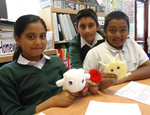
24 May 2013
School children at Bigland Green Primary School in Tower Hamlets have been inspired to live heart-healthier lifestyles thanks to Queen Mary, University of London and a grant from national charity, Heart Research UK.
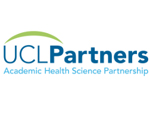
23 May 2013
People in London and the south east will see improvements in their healthcare, after an NHS England announcement that medical research will be fast-tracked to frontline NHS services.

22 May 2013
Researchers from Queen Mary, University of London have led the largest sequencing study of human disease to date, investigating the genetic basis of six autoimmune diseases.

20 May 2013
Award-winning medical journalist Sandra Hempel is to speak on the use of arsenic in murder, at Barts Pathology Museum on Tuesday 18 June.
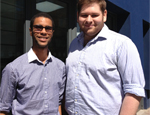
20 May 2013
Two medical students from Queen Mary, University of London have recently been appointed to the national committee of Medsin, a student network and registered charity tackling global and local health inequalities through education, advocacy and community action.
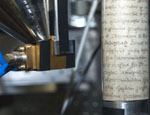
16 May 2013
Pioneering X-ray technology is making it possible to read fragile rolled-up historical documents for the first time in centuries.

9 May 2013
Leading asthma researchers at Queen Mary, University of London will ask “do we need to worry about air pollution?” at a free debate taking place at Whitechapel’s Centre of the Cell on Thursday 23 May.

8 May 2013
A trial led by researchers at Queen Mary University of London into a new device to control blood pressure could transform the lives of people across the world.
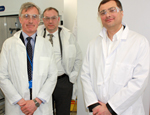
7 May 2013
A Deputy Prime Minister of the Russian Federation visited Queen Mary, University of London’s Whitechapel campus on Wednesday 1 May, on a tour of east London’s expanding technology innovation hubs.
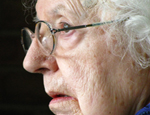
2 May 2013
Exercise is not effective in reducing the burden of depression among elderly care home residents, according to new research led by Queen Mary, University of London and the University of Warwick.
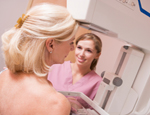
30 April 2013
Tamoxifen and three similar drugs reduce breast cancer incidence by 38 per cent in women at an increased risk of the disease according to a new study led by Queen Mary, University of London, published today in The Lancet.
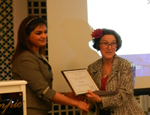
29 April 2013
A Queen Mary PhD student has received an international research award for her work on Tourette’s syndrome.
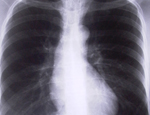
26 April 2013
Leading research institutions and hospitals across London, including Queen Mary, University of London, have united to transform lung cancer care with plans to invite patients over a population of six million into a pioneering new programme of clinical trials.

25 April 2013
More than 100 children from Tower Hamlets primary schools attended a safety day run by undergraduate medical and dental students at Queen Mary, University of London this week (24 April).
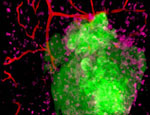
22 April 2013
Researchers from Queen Mary, University of London have been awarded a €2.43million grant from the European Research Council (ERC) for a project which aims to revolutionise the field of cancer cell research by using bioengineering techniques to grow the first complex 3-dimensional human ‘tumour microenvironment’ in the laboratory.

19 April 2013
The continuing worldwide economic crisis and austerity measures have raised concerns about the impact of economic conditions on public health.

5 April 2013
A modest reduction in salt intake for four or more weeks leads to a significant fall in blood pressure, according to research led by Queen Mary, University of London.
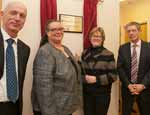
3 April 2013
The UK’s Chief Medical Officer formally opened the Newham-based Unit for Social and Community Psychiatry as a World Health Organisation (WHO) Collaborating Centre for Mental Health Services Development on Monday 25 March.
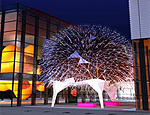
3 April 2013
Queen Mary, University of London has launched a public appeal to expand its award-winning science education centre at Whitechapel.
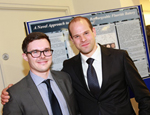
2 April 2013
A dental student from Queen Mary, University of London has taken first prize in a national competition, winning a trip to New Orleans and £10,000 for the Institute of Dentistry.

11 March 2013
Meals at high street and celebrity chef chain restaurants have been shown to contain high levels of salt which would warrant a red traffic light label in a supermarket, according to research published today to launch National Salt Awareness Week 2013 (11-17 March).

8 March 2013
An independent panel of experts, including an academic from Queen Mary, University of London, which was tasked by the government to make recommendations regarding drugs and driving, has published its report.
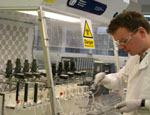
26 February 2013
Pioneering research led by Queen Mary, University of London that has the potential to reduce the number of animals used in medical research of the human digestive system has been commended in a prestigious international awards scheme.
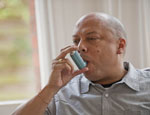
20 February 2013
The high cost of medication, stigmatisation and poor acceptance of their condition are causing young adults to take a dangerous approach to managing their asthma, according to new research published today in the journal BMJ Open.
19 February 2013
Barts Pathology Museum at Queen Mary, University of London needs your vote to win funding for a unique show uncovering historical links between dancing and death, from Day of the Dead celebrations to ‘mass hysteria’ and The Dancing Plague of 1518.
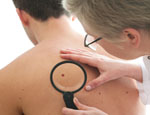
18 February 2013
Scientists at Queen Mary, University of London have identified a gene present in some melanoma which appears to make the tumour cells more resistant to treatment, according to research published today in the Journal of Experimental Medicine.
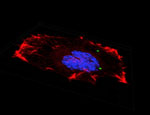
18 February 2013
BioMoti, a company set up by scientists from Queen Mary, University of London to develop technology to deliver targeted cancer treatment has received £150,000 under the Seed Enterprise Investment Scheme (SEIS).
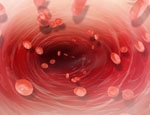
15 February 2013
Scientists investigating how certain genes affect an individual’s risk of developing coronary heart disease have identified a new therapeutic target, according to research published in the American Journal of Human Genetics.

14 February 2013
Her Majesty The Queen is to open a new national research centre for bowel disease and surgical innovation based at Queen Mary, University of London on Wednesday, 27 February 2013.

12 February 2013
Research pointing to the widespread global use of diclofenac, a non-steroidal anti-inflammatory drug (NSAID) that increases heart attack risk,has led researchers to call for its withdrawal from international markets and Essential Medicines Lists.
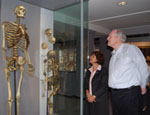
4 February 2013
Scientists from Queen Mary, University of London are heading to Northern Ireland to investigate a 1,500-year-old genetic mutation which can lead to gigantism.

31 January 2013
Research led by Queen Mary, University of London, has shown that recovery from chronic fatigue syndrome (CFS) is possible for some patients, and has identified two treatments most likely to lead to recovery.
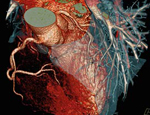
16 January 2013
Celebrate an alternative Valentine's Day at Bart's Pathology Museum, part of Queen Mary, University of London, with a heart surgery demo and expert tips on how consuming wine and chocolate could maintain a healthy heart.

16 January 2013
Queen Mary, University of London and the Dr Hadwen Trust (DHT) for Humane Research have today announced a joint collaboration which will see the world’s first chair dedicated to animal replacement science based within the university’s Blizard Institute.

8 January 2013
Centre of the Cell - Queen Mary, University of London’s interactive science education centre at Whitechapel - will be helping Tower Hamlets residents at risk of heart disease learn how to make lifestyle choices that could improve their health.

8 January 2013
The Gastrointestinal Disease Healthcare Technology Cooperative (Enteric), based at the National Centre for Bowel Research and Surgical Innovation (NCBRSI) at Queen Mary, University of London's Whitechapel campus, is pleased to announce that it will receive funding of £800,000 over four years from the National Institute for Health Research (NIHR).
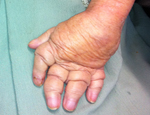
7 January 2013
Researchers at Queen Mary, University of London have received a £1.2m grant for a clinical trial aimed at improving rheumatoid arthritis treatment through the development of personalised healthcare.
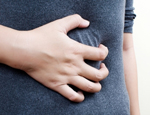
3 January 2013
Researchers from Queen Mary, University of London, and Barts Health NHS Trust have identified the genetic mutation behind a devastating disease of the small intestine.
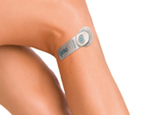
2 January 2013
A medical device to prevent deep vein thrombosis, developed by researchers at Queen Mary, University of London, has won two awards at the Innovations in Cardiovascular Interventions (ICI) conference in Tel Aviv.
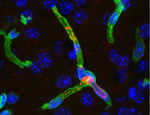
2 January 2013
Research led by Queen Mary, University of London, has opened up the possibility that drug therapies may one day be able to restore the integrity of the blood-brain barrier, potentially slowing or even reversing the progression of diseases like multiple sclerosis (MS). The study, funded by the Wellcome Trust, is published in Proceedings of the National Academy of Sciences.
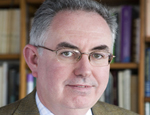
23 December 2012
Scientists have shed light on why some people are more susceptible to gout than others, according to a new study published today in Nature Genetics.
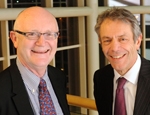
17 December 2012
New research into type 2 diabetes, social media, space plasma, and cabbage genetics that could boost crop production are just some of the collaborative projects to be carried out by academics at Queen Mary, University of London and its partner university, the University of Warwick.
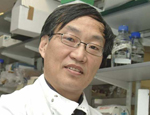
13 December 2012
Researchers from Queen Mary, University of London have discovered that two proteins which are believed to play a key role in controlling the body’s immune response are found in lower levels in T lymphocytes from patients with multiple sclerosis (MS).
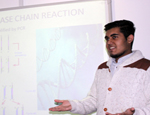
12 December 2012
Students from five secondary schools, who have been working with researchers from universities including Queen Mary, University of London, will be presenting their work at their own ‘scientific conference’ this month.

11 December 2012
Barts Pathology Museum at Queen Mary, University of London’s West Smithfield campus will hold a special evening seminar on Tuesday 15 January – the anniversary of the gruesome and much-publicised Black Dahlia Murder. The event will focus on cultural depictions of the case, followed by a wider look at forensic science and cases of dismemberment.

11 December 2012
The Unit for Social and Community Psychiatry at Queen Mary, University of London has gained recognition from the World Health Organisation, having been named a WHO Collaborating Centre.
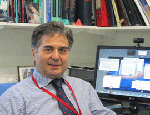
10 December 2012
Queen Mary, University of London is to lead a multi-million pound research collaboration looking at ways of improving treatment for rheumatoid arthritis through the emerging field of stratified medicine.

5 December 2012
New research from Queen Mary, University of London and UCL (University College London) has found the number of extremely premature babies who survive and leave hospital increased between 1995 and 2006, but the proportion who experience serious health problems in childhood remained largely unchanged.
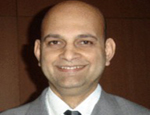
4 December 2012
International research led by Queen Mary, University of London, suggests that e-learning is an effective method of medical training and could be an affordable way of driving up clinical standards and improving workplace culture.

4 December 2012
Queen Mary, University of London has received a $1.3million(US) grant for research in Zambia into intestinal diseases – conditions which affect most children in the developing world and can leave their growth stunted.

3 December 2012
Queen Mary, University of London’s Global Health Week starts today with an exciting line-up of leading public health figures due to present over the week on a diverse range of topics, from migration and mental health to food policy and access to medicines.

30 November 2012
Queen Mary, University of London, has picked up the Research Project of the Year at the annual Times Higher Education Awards.

29 November 2012
New research from CASH (Consensus Action on Salt and Health) at Queen Mary, University of London, has revealed the unnecessarily high levels of salt in a staple of the country’s shopping baskets – cheese.

28 November 2012
Research jointly led by Queen Mary, University of London into the long-term impact of breast cancer screening has received an international award from the Radiological Society of North America (RSNA).

15 November 2012
Research led by Queen Mary, University of London has found that having asthma is not linked to poorer scores in national school examinations. In contrast, ethnicity and social deprivation were associated with poorer educational outcomes in the study, published in the journal PLOS ONE.

15 November 2012
Lower prenatal levels of vitamin D may mean that babies born in April and May have an increased risk of developing the neurological condition multiple sclerosis (MS), new research from Queen Mary, University of London suggests.

6 November 2012
Home blood pressure monitoring may help stroke patients with uncontrolled high blood pressure according to research from a Queen Mary academic published today in the Canadian Medical Association Journal.

5 November 2012
Researchers from Queen Mary, University of London have received new funding to find out whether an innovative method of stem cell therapy can help damaged heart muscle to recover and regenerate itself.
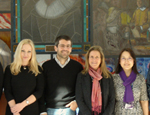
2 November 2012
Queen Mary, University of London has announced that it will receive Phase II funding through Grand Challenges Explorations, an initiative created by the Bill & Melinda Gates Foundation that enables individuals worldwide to test bold ideas to address persistent health and development challenges.
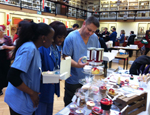
31 October 2012
Prostate truffles, STD cupcakes, ulcerated legs and fungal toenail biscuits were among the 3,000 anatomically-correct cakes, cookies and cocktails snapped up by visitors to St Bartholomew's Pathology Museum last weekend, in a sell-out baking festival that made headlines across the world.
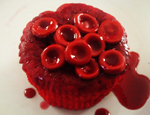
19 October 2012
Talented bakers and medical experts are joining forces for a disease and anatomy-themed cake festival this autumn at Queen Mary, University of London’s Pathology Museum.

18 October 2012
Overworked employees with little power in the workplace are at an increased risk of developing major depressive disorder (MDD), according to a new study from researchers at Queen Mary, University of London, published today in the American Journal of Public Health.
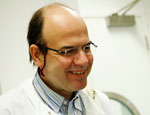
15 October 2012
Researchers from Queen Mary, University of London, are part of a new consortium which will study the link between Alzheimer’s disease and Down’s syndrome in an attempt to better understand the degenerative disease and predict as early as in infancy which individuals are most at risk.

11 October 2012
Clinical guidelines produced following research led by Queen Mary, University of London, will help drive improvements in the treatment of people with pre-cancerous and cancerous conditions of the oesophagus (gullet).
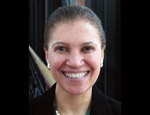
9 October 2012
Queen Mary, University of London’s Dean for Dentistry, Professor Farida Fortune, has received the prestigious Colyer Gold Medal from the Royal College of Surgeons (RCS).
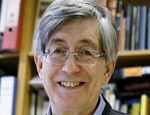
5 October 2012
Professor Sir Nicholas Wald, Director of the Wolfson Institute of Preventive Medicine, at Barts and the London School of Medicine and Dentistry, is to receive the Hamdan Award for Medical Research Excellence in the field of fetal medicine.
5 October 2012
Professor Jack Cuzick from the Wolfson Institute of Preventive Medicine at Queen Mary, University of London, is to receive an international award in recognition of his outstanding cancer prevention research.

4 October 2012
Researchers from Queen Mary, University of London have developed a new gene test that can detect pre-cancerous cells in patients with benign-looking mouth lesions. The test could potentially allow at-risk patients to receive earlier treatment, significantly improving their chance of survival.

4 October 2012
A study by Queen Mary, University of London researchers has shown the scale of the challenge facing those in charge of delivering the Olympic legacy. In three London boroughs they have found that, overall, as many as one in ten of the local population has a high risk of developing type 2 diabetes within the next ten years. In some areas close to the Stratford Olympic Park up to one in six adults are at high risk.
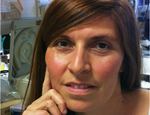
1 October 2012
Researchers at Queen Mary, University of London have discovered how a key molecule controls the body’s inflammatory responses. The molecule, known as p110delta, fine-tunes inflammation to avoid excessive reactions that can damage the organism. The findings, published in Nature Immunology on 30 September, could be exploited in vaccine development and new cancer therapies.

28 September 2012
St Bartholomews Pathology Museum at Queen Mary, University of London’s West Smithfield campus will host an exciting Autumn Series of evening seminars, featuring events on the art of tattooing, the vampire in folklore, the history of ‘Bedlam’ and the darker side of silent films.

21 September 2012
National estimates of death following general surgery have been too optimistic, according to the first large-scale study to explore surgical outcomes across Europe, led by Queen Mary, University of London.
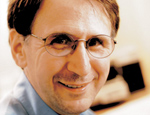
13 September 2012
A major review of breast cancer screening services in Europe, jointly led by researchers at Queen Mary, University of London, has concluded that the benefits of screening in terms of lives saved outweigh the harms caused by over-diagnosis.

12 September 2012
New research from Queen Mary, University of London, has revealed huge variation in the salt levels found in supermarket bacon, with some products containing more than half the daily recommendation of salt in just two rashers.
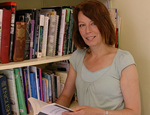
11 September 2012
Chronic heart failure (CHF) patients are less likely to have died a year after discharge if they are involved in a programme of active follow-up once they have returned home than patients given standard care, according to a new Cochrane systematic review published today, co-authored by researchers at Queen Mary, University of London.

10 September 2012
Most professional English football teams do not comply with international guidelines on concussion that ensure that players are safe to return to play, suggests new research from Queen Mary, University of London published in the British Journal of Sports Medicine

10 September 2012
Genetic variations that are linked with the onset of Barrett’s oesophagus (BE), a pre-cancerous condition of the lower end of the gullet, have been identified for the first time. The discovery of variations in regions on two chromosomes makes it possible to develop screening tests for people at high risk of developing the disease.

10 September 2012
In a special report in The Lancet, researchers from Queen Mary, University of London argue that pending cases against India’s patent laws threaten public health and misinterpret international intellectual property agreements.
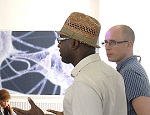
7 September 2012
Somali immigrants to the UK and USA appear to integrate better and have fewer mental health problems if they are allowed to work and they receive practical support during the first few years of their time in the new country, according to a study led by researchers at Queen Mary, University of London (UK) and published in BioMed Central Public Health today (Friday).

6 September 2012
Queen Mary, University of London has been shortlisted in three categories at the prestigious Times Higher Education (THE) Awards 2012, an annual showcase of excellence across the Higher Education sector.
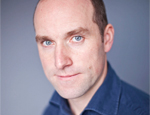
4 September 2012
For decades before antibiotics became generally available, sunshine was used to treat tuberculosis, with patients often being sent to Swiss clinics to soak up the sun’s healing rays. Now, for the first time scientists have shown how and why heliotherapy might, indeed, have made a difference.

28 August 2012
A former medical student at Barts and The London School of Medicine and Dentistry has had his fourth year project published as a paper in a prestigious journal and reported by the international media.

23 August 2012
Blood collected from newborn babies by a heel prick immediately after birth has been used routinely in most developed countries for decades to screen for diseases such as cystic fibrosis and sickle cell disorders.
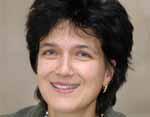
20 August 2012
There is insufficient evidence for the effectiveness of a drug that is being used increasingly to prevent life-threatening bleeding in women who give birth in community settings in low income countries, according to a review of all the available research published in the Journal of the Royal Society of Medicine. [1]
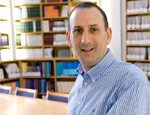
17 August 2012
Treatment for cervical disease does not appear to increase the risk of subsequently giving birth prematurely, according to a study of over 44,000 women in England. The study, published online in the British Medical Journal, is the largest in the UK to investigate this and contradicts previous research suggesting treatment could be linked to an increased risk.

16 August 2012
As people around the UK get set to join in a sport on the first weekend after the Olympics, an expert on sports and exercise medicine from Barts and The London School of Medicine and Dentistry, part of Queen Mary, University of London, has stressed emerging evidence that injury can be prevented using new approaches. This was crucial so that people stayed engaged with new activity to gain long-term benefits, he said.

6 August 2012
Researchers from Barts and the London School of Medicine and Dentistry at Queen Mary, University of London have played a key role in securing a £4.3m award to establish an e-health research Centre of Excellence in London.

6 August 2012
Two treatments found previously to be the most effective for patients with Chronic Fatigue Syndrome or Myalgic Encephalomyelitis (CFS/ME) have now been found to be the most cost-effective treatments.
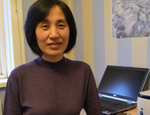
6 August 2012
Queen Mary, University of London researchers have been awarded a major Medical Research Council (MRC) grant for a project to reduce the amount of salt consumed by children and their families in China.
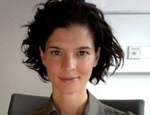
2 August 2012
A scientist at Queen Mary, University of London is hopeful of developing new drugs to treat blood cancer after being awarded a major research grant by UK charity Leukaemia & Lymphoma Research.
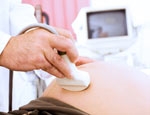
2 August 2012
One baby in every 45 was born with a congenital anomaly in 2010 according to the second annual report by the British Isles Network of Congenital Anomaly Registers (BINOCAR), released today (Thursday).

1 August 2012
A Europe-wide project to create a magical sculpture out of milk teeth promises smiles all round when it arrives at Queen Mary, University of London’s science education centre, Centre of the Cell, this summer.
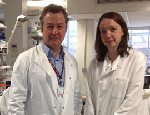
25 July 2012
Dr Sarah Martin has been awarded the prestigious Medical Research Council New Investigator Award to elucidate the role of a number of DNA repair genes in the maintenance of mitochondrial DNA integrity and cancer.

23 July 2012
The world’s largest review of all the evidence on the best way of managing and treating common pre-cancerous and cancerous conditions of the oesophagus (gullet) has found that good endoscopy equipment, more endoscopic surgery, and more tissue sampling are required to improve care for patients.
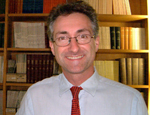
19 July 2012
Results of a randomised trial carried out by academics at Queen Mary, University of London and published in the journal PLoS One [1] show that a four-component Polypill given to people aged 50 and over to reduce their risk of heart attack and stroke, the most common causes of death worldwide, achieved large reductions in blood cholesterol and blood pressure, the main causes of these two diseases.

3 July 2012
Visitors to this year’s Royal Society Summer Exhibition will get a painful taste of the type of research scientists at Queen Mary, University of London are doing.
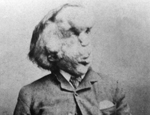
3 July 2012
Almost 150 years after the birth of Joseph Merrick – aka The Elephant Man - an exact replica of his skeleton has been created from digital 3D scans of his fragile remains.
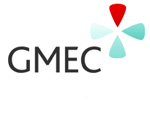
2 July 2012
Queen Mary, University of London has joined other universities in the Global Medical Excellence Cluster (GMEC), tasked with shaping and delivering cutting-edge research and attracting investment in UK healthcare.
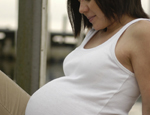
2 July 2012
Researchers at Queen Mary University of London have received a major new grant to help treat blood loss during caesarean section births.
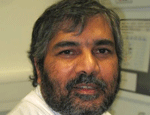
27 June 2012
Scientists at Queen Mary, University of London have uncovered a link between two genes which shows how stem cells could develop into cancer.

26 June 2012
Queen Mary, University of London’s Centre for Sports and Exercise Medicine has announced the introduction of a new module in Dance Medicine, to commence in January 2013.

26 June 2012
A play inspired by Bart’s Pathology Museum at Queen Mary, University of London will be performed at the venue on Thursday 5 July.

21 June 2012
Research published today in the Journal of the Royal Society of Medicine raises further questions about a trial of HPV vaccines in India.
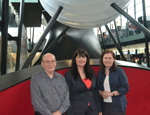
20 June 2012
A scientist at Queen Mary, University of London was awarded the title ‘Top New Investigator’ at a recent international meeting for the study of fatty acids and lipids.

14 June 2012
Children’s meals at some of the UK’s leading pub and fast food chains contain more than a child’s recommended daily salt allowance, research from Queen Mary, University of London has shown.
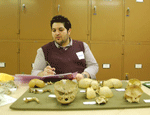
14 June 2012
Forensics across the world will be better equipped to identify the age of people who die in natural disasters. Scientists at Queen Mary, University of London have developed an online interactive tool which will enable experts to assess people’s teeth and accurately estimate their age.
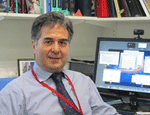
12 June 2012
Researchers at Queen Mary, University of London are working to develop better therapies to treat people with arthritis.
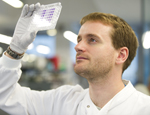
31 May 2012
Dr Adrian Biddle of Queen Mary, University of London has been awarded a David Sainsbury Fellowship from the National Centre for the Replacement, Refinement and Reduction of Animals in Research (NC3Rs) for his work in developing a lab test based on human cells to replace the use of mice in testing potential drugs that target cancer cells.

31 May 2012
Professor Mike Curtis has been appointed as Deputy Vice-Principal (Health) at Barts and The London School of Medicine and Dentistry.

30 May 2012
A rare disease which often first presents in newborn babies has been traced to a novel genetic defect, scientists at Queen Mary, University of London have found.
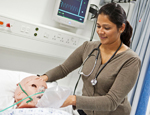
22 May 2012
The latest university rankings reveal that Barts and The London Medical School has shot up 11 places to rank seventh nationally, and second in London.

21 May 2012
HIV research carried out by scientists at Queen Mary, University of London has been awarded a top prize by scientific publishers BioMed Central.

18 May 2012
Pregnant women, including those who are obese or overweight, should be encouraged to minimise weight gain through diet, according to major new research from Queen Mary, University of London.
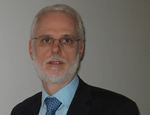
16 May 2012
An academic from Queen Mary, University of London has been chosen to be part of a panel set up to give advice to the government about the influences of drugs on driving.
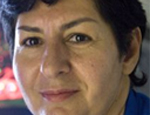
11 May 2012
Professor Sussan Nourshargh from Queen Mary, University of London has been awarded a prestigious Fellowship at the Academy of Medical Sciences.
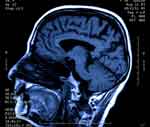
10 May 2012
A 50 year old motor neurone disease patient will today launch a groundbreaking research project in East London after raising more than £100,000 to pay for it.
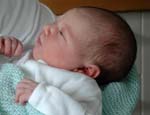
2 May 2012
There is now overwhelming evidence that all newborn babies should be offered screening for heart defects at birth, according to a major new study published online in The Lancet.
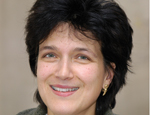
27 April 2012
The Health and Social Care Act 2012 will have “severe implications” for collecting and monitoring data about the health needs of the population in England, warns a Queen Mary expert today.
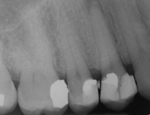
17 April 2012
New research from Queen Mary, University of London in collaboration with research groups in the USA sheds light on why gum disease can become more common with old age.

13 April 2012
Professor Malcolm Alison of Queen Mary, University of London, has been awarded the 2012 Doniach Lectureship - the senior award of the Pathological Society of Great Britain and Ireland.

12 April 2012
Professor Colin Blakemore of the University of Oxford and University of Warwick will be awarded the Lord Brain Memorial Medal 2012 for his significant contribution to neuroscience.
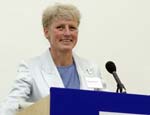
10 April 2012
A new study from researchers at Queen Mary, University of London reveals the many difficulties faced by people with diabetes in self-managing their disease.

5 April 2012
The Spring Seminar Series at Queen Mary, University of London’s Pathology Museum is set to kick off in April with public lectures on sensational nineteenth-century science, ghosts, Arctic exploration and the history of pioneering Victorian female doctors.

3 April 2012
A group of exceptional medical students are learning how lives can be saved immediately after serious injury, thanks to a training programme at Queen Mary, University of London.

26 March 2012
New research by Consensus Action on Salt and Health (CASH) at Queen Mary, University of London and the Association of London Environmental Health Managers (ALEHM) for National Salt Awareness Week 2012 reveals massive differences in the salt and fat content between takeaway pizzas and those purchased from supermarkets.

26 March 2012
Research from Queen Mary, University of London has uncovered the mechanism which causes normal cells to develop into cancer, giving hope in the fight against one of the UK’s biggest killers.
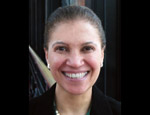
23 March 2012
Queen Mary, University of London’s Institute of Dentistry has been named, in partnership with Barts and the London NHS Trust, as the UK’s largest Centre of Excellence for the treatment of Behçet’s disease - a chronic and rare inflammatory disorder.

21 March 2012
A documentary featuring a leading forensic pathologist based at Queen Mary, University of London has been honoured by the Royal Television Society at its annual celebration of excellence in television programming.

12 March 2012
Researchers from Queen Mary, University of London will present their pioneering blood-clotting research at Birmingham’s Big Bang Fair this week.
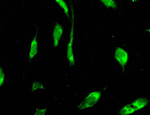
12 March 2012
Researchers from Queen Mary, University of London and the University of Surrey have found a protein inside blood vessels with an ability to protect the body from substances which cause cardiovascular disease.

9 March 2012
Entitlement to free health services will be curtailed by the Health and Social Care Bill currently before parliament, warn experts today.

5 March 2012
A study by researchers at Queen Mary, University of London and Barts and The London NHS Trust proves that HGVs pose the greatest risk of death and serious injury to cyclists.

29 February 2012
The American Heart Association/Stroke Association has named research co-led by Queen Mary, University of London in their top 10 advances in cardiovascular and stroke research for 2011.

16 February 2012
Researchers from Queen Mary, University of London are aiming to improve the health of Londoners by combining a century-old mapping technique with up-to-the-minute technology.

14 February 2012
With a growing number of terrorist attacks being committed by ‘home-grown’ radicals, researchers at Queen Mary, University of London are proposing a totally new approach to preventing terrorism.
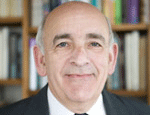
7 February 2012
A report examining the role of neuroscience research in military and civilian law enforcement contexts, led by a Queen Mary, University of London academic, has called on the government to provide clarity on the use of chemical weapons.

3 February 2012
Dr Andrew Prendergast, Senior Clinical Lecturer in paediatric infection and immunity at Queen Mary, University of London, has been awarded a Fellowship by the Wellcome Trust to study the effect of improved sanitation on the health of infants in developing countries.
3 February 2012
Queen Mary, University of London is leading the UK’s part in a European-wide collaboration which has been given the green light to accelerate scientific discovery in hormonal disorders.

1 February 2012
Queen Mary, University of London will be offering something a little different this Valentine’s Day- an exclusive event that asks the question poets, lovers and singletons have been musing for centuries: can you die from a broken heart?

30 January 2012
A new family of proteins which regulate the human body’s ‘hypoxic response’ to low levels of oxygen has been discovered by scientists at Barts Cancer Institute at Queen Mary, University of London and The University of Nottingham.

26 January 2012
Researchers from Queen Mary, University of London, the London School of Hygiene and Tropical Medicine and public interest lawyers have made a detailed legal and policy analysis of the Government’s controversial Health and Social Care Bill.
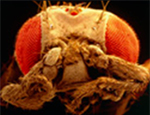
24 January 2012
The exciting workshop ‘Vicious Venoms and Poisonous Parasites’ will take place during the February school half-term holidays at Queen Mary, University of London’s unique science education centre, Centre of the Cell.

19 January 2012
New research from Queen Mary, University of London has uncovered a gene which plays a key role in the development of oesophageal cancer (cancer of the gullet).
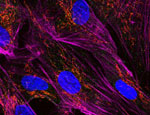
16 January 2012
A devastating neurodegenerative disease that first appears in toddlers just as they are beginning to walk has been traced to defects in mitochondria, the ‘batteries’ or energy-producing power plants of cells.
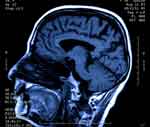
16 January 2012
Queen Mary, University of London’s Neuroimmunology Group will be hosting their third annual Multiple Sclerosis Research Day on Saturday 28 January at the Church House Conference Centre, Westminster.

11 January 2012
Research from Queen Mary, University of London suggests that omega-3 fatty acids, which are found in fish oil, have the potential to protect nerves from injury and help them to regenerate.

9 January 2012
A Queen Mary, University of London scientist has received a prestigious Cancer Research UK Clinical Scientist Fellowship – one of four awarded to UK clinical investigators.

5 January 2012
An honorary professor at Queen Mary, University of London, has received a prestigious award from the United Nations for his project to improve HIV treatment in South East Asia.

31 December 2011
Use of torture around the world has not diminished but the techniques used have grown more complex and sophisticated, according to new research from Queen Mary, University of London.
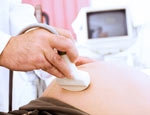
14 December 2011
More than one baby in every 50 is born with a birth defect (congenital anomaly) according to the latest annual report by the British Isles Network of Congenital Anomaly Registers (BINOCAR) – significantly more common than previously reported estimates of around one in 80.

8 December 2011
Heart disease and stroke are emerging complications of treating prostate cancer with testosterone suppression, yet standard management of the disease is ignoring this risk, warn specialists in a viewpoint by researchers at Queen Mary University of London.

7 December 2011
More than 100,000 cancers – equivalent to one third of all those diagnosed in the UK each year – are being caused by smoking, unhealthy diets, alcohol and excess weight, according to new research from Queen Mary, University of London.
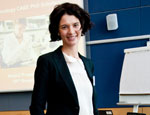
5 December 2011
Dr Melania Capasso, from Barts Cancer Institute at Queen Mary, University of London has won GlaxoSmithKline’s first UK Oncology CASE (Collaborative Award in Science and Engineering) PhD Scholarship.

1 December 2011
Two linked clinical studies that will show whether stem cell therapy can save the lives of heart attack patients are now underway in London, following the award of €11.7 million funding from the European Commission.
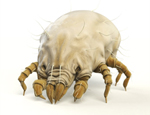
30 November 2011
Scientists working on developing a way to rid people of their allergy to house-dust mites are recruiting volunteers to take part in a new clinical trial.

29 November 2011
New research from Queen Mary, University of London suggests that many cases of diabetes could be prevented by making use of existing prediction tools.

28 November 2011
The who’s who of public health experts in the UK recently descended on Whitechapel to highlight the scale of health inequalities around the world.
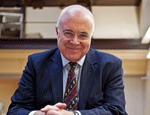
22 November 2011
Professor Chris Fowler has been appointed the new chair of UCL Partners (UCLP) Education Sub Board.
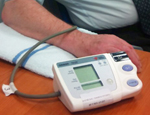
17 November 2011
New genes affecting high blood pressure, a condition that causes more than 7 million deaths worldwide each year, have been uncovered by scientists at Queen Mary, University of London.

7 November 2011
Dr Sarah Martin, lecturer at Queen Mary, University of London, is one of two recipients of this year’s Cancer Research UK Future Leaders in Cancer Research Prize.
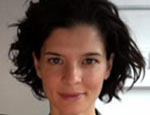
4 November 2011
Dr Melania Capasso recently joined the Centre for Cancer and Inflammation to develop her innovative research on the immune system and leukaemia and lymphoma.

2 November 2011
A study published today in The Lancet shows how a do-it-yourself screen for cervical cancer could help prevent the disease in thousands of women who, for a number of reasons, cannot have a smear test.

31 October 2011
Giant woolly art installations representing Multiple Sclerosis will be on show at Whitechapel’s Blizard Institute in November to promote awareness and understanding of the disease.
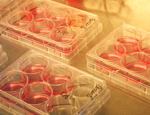
28 October 2011
THE NHS must start planning now to deal with a predicted leap of 45 per cent in the number of new cancer cases in the UK over the next two decades, an epidemiologist at Queen Mary, University of London warns today (Friday).
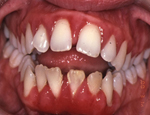
27 October 2011
Normal bacteria which live in our mouths provide the catalyst for the development of gum disease, a debilitating condition which leads to painful gums and the loosening of teeth, new research from Queen Mary, University of London has found.

25 October 2011
Undergraduate applications to Queen Mary, University of London, are up almost four per cent from this time last year, bucking the trend of falling numbers across the UK.

24 October 2011
Researchers investigating the genetic cause of a disease in just two patients have made an unexpected finding which has opened a major new possibility for treating serious diseases such as cancer.
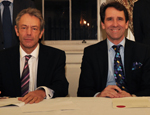
21 October 2011
Queen Mary, University of London and Barts and The London NHS Trust have joined UCL Partners (UCLP) to create the largest Academic Health Sciences System in the world. The two new founding partners bring to UCL Partners - one of five accredited Academic Health Science Systems in the UK - significant additional scale and expertise in key areas such as cancer, cardiovascular disease, trauma, stroke and human genomics. Based in east London, the two organisations also bring a focus on health inequalities arising from the area's high levels of social and economic deprivation.

20 October 2011
A leading forensic pathologist based at Queen Mary, University of London has played an integral part in the first mummification of a body for three millennia.

17 October 2011
A national research centre for bowel disease is to be set up in London to bring the Cinderella area of medicine to the forefront of surgical innovation.
14 October 2011
The current ultrasound test to diagnose miscarriage in early pregnancy is based on limited evidence, raising questions about its reliability, according to a new paper published by researchers at Queen Mary, University of London.

14 October 2011
A training programme aimed at GPs, practice nurses and reception staff could help thousands of women who are suffering domestic abuse to get the assistance they need, according to the results of a trial published in The Lancet.

12 October 2011
The prime minister was wrong to claim we support the Health Bill, say public health experts, including Queen Mary University of London’s Professor Allyson Pollock, in this week’s BMJ.

10 October 2011
Research which claims to show that the introduction of patient choice in the NHS reduced deaths from heart attacks is flawed and misleading, according to a report published in The Lancet.

7 October 2011
Three year funding of 2,999,332 euros has been awarded by the European Commission to Graham Hitman - Professor of Molecular Medicine and Diabetes at Queen Mary, University of London - and colleagues, for research into the prevention of diabetes and obesity.
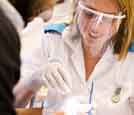
4 October 2011
The Institute of Dentistry at Barts and The London School of Medicine and Dentistry, Queen Mary, University of London, marks its centenary on 3 October 2011 – 100 years since the Institute began life, with four students, as the Dental School of the London Hospital Dental College.

29 September 2011
A new study published in the British Journal of Sports Medicine highlights the injury risks for schoolboys playing rugby.

25 September 2011
People who cycle through London and other major cities have higher levels of black carbon in their airway cells, according to research from Queen Mary, University of London.
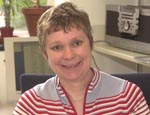
23 September 2011
Leading international scientists – among them Fran Balkwill, Professor of Cancer Biology at Barts Cancer Institute, Queen Mary, University of London - are behind a new nine-point action plan for ovarian cancer research entitled ‘Rethinking Ovarian Cancer’ published today in Nature Reviews Cancer. The authors, together with Ovarian Cancer Action - the UK’s leading ovarian cancer action charity - this morning urged colleagues, research funders, charities, industry and patients to back the strategy in beating what remains one of the most deadly cancers for women in the UK and across the world.

19 September 2011
New research from Queen Mary, University of London shows that female mammals are better prepared to fight infections and that their bodies suffer less collateral damage when an infection does hit.

12 September 2011
Professor Richard Trembath FMedSci is the new Vice Principal and Executive Dean for Health at Barts and The London School of Medicine and Dentistry. He succeeds Professor Sir Nicholas Wright who stepped down from the top role in July following ten highly successful years in post.

12 September 2011
A common chemotherapy drug has been successfully delivered to cancer cells inside tiny microparticles using a method inspired by our knowledge of how the human immune system works. The drug, delivered in this way, reduced ovarian cancer tumours in an animal model by 65 times more than using the standard method. This approach is now being developed for clinical use.

2 September 2011
New research has found that bread, whether it be your morning slice of toast, your lunchtime sandwich or dipped in your soup, could be packed with hidden salt.

24 August 2011
NICE has today (Wednesday 24 August) published updated guidelines on the diagnosis and treatment of high blood pressure (hypertension).
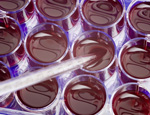
18 August 2011
Barts and The London NHS Trust, and Barts and The London School of Medicine and Dentistry have won a joint award of over £6.5m from the Department of Health following an open competition.

16 August 2011
Student satisfaction at Barts and The London Medical School is now at 94 per cent - nine points higher than the subject average according to a nationwide survey of final year students.
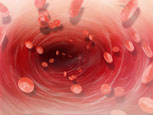
12 August 2011
The sex hormone oestrogen could help protect women from cardiovascular disease by keeping the body’s immune system in check, new research from Queen Mary, University of London has revealed.
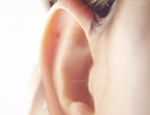
25 July 2011
International researchers will gather in London this week to discuss their research on preventing hearing loss with dietary supplements.
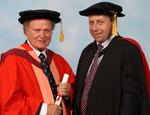
19 July 2011
Professor Sir Nicholas Wright has received a Doctor of Science honorary degree from the University of Bristol.
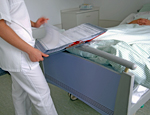
6 July 2011
A study by researchers from Queen Mary, Warwick University and Newcastle University, published today on bmj.com, has shown that the number of patients compulsorily detained in hospitals for mental illness in England has risen sharply in the past 21 years at the same time as the numbers of beds for mental illness patients have been cut back.
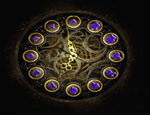
1 July 2011
A festival aimed at inspiring young people and the public to think anew about science is being launched by London’s leading medical school. The Barts and The London Science Festival, taking place at Charterhouse Square on Saturday 2nd July, offers a plethora of attractions to festival goers, among them intriguingly titled ‘lecturettes’ by some of the leading research talent at Barts and The London School of Medicine and Dentistry. Included in the line-up of must-see science talks are; ‘Grow your own body parts,’ by Professor Julia Shelton; ‘The merits of eating your greens – and purples,’ by Professor Amrita Ahluwalia and ‘Is chocolate good for you?’ by Professor Roger Corder.
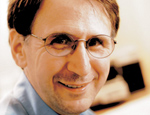
28 June 2011
Results from the longest running breast screening trial show that screening with mammography reduces the number of deaths from breast cancer.

27 June 2011
A study from scientists at Queen Mary, University of London, sheds new light on why people who experience serious trauma or go through major surgery, can suffer organ damage in parts of the body which are seemingly unconnected to the injury.

17 June 2011
Great British bangers could contain half your maximum daily recommendation of salt, putting your health at risk, a new survey from researchers at Queen Mary, University of London shows.
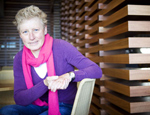
13 June 2011
In an article in the British Medical Journal, researchers highlight the tensions linked to Government health reforms which, on the one hand, seek to cut costs but, at the same time, aim to empower individual patients.

10 June 2011
Barts Cancer Institute, part of Queen Mary, University of London, has formed a new partnership to develop personalised diagnosis and treatments for cancer patients.

9 June 2011
Government plans to divert more mentally ill people out of the criminal justice system and into mental health services are unlikely to be achieved, according to new research from Queen Mary, University of London.

6 June 2011
A team from Queen Mary, University of London and Barts and The London NHS Trust has been named overall winner in the Respiratory Innovation category at the Medical Futures Innovation Awards, Europe’s leading showcase of early-stage innovation in healthcare. The team had previously received ‘Best Blue Sky Idea in Respiratory Innovations,’ for their pneumonia preventing invention.
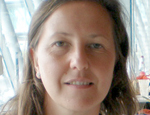
6 June 2011
Work by researchers at Queen Mary, University of London could point to a new way to treat aggressive types of cancer.

18 May 2011
Professor Bart Vanhaesebroeck has been made a Fellow of the UK Academy of Medical Sciences for his research which has wide-ranging implications for treating diseases such as cancer.

5 May 2011
Using age alone to identify those at risk of heart disease or stroke could replace current screening methods without diminishing effectiveness, according to a groundbreaking study published today in the open access journal PLoS ONE.

26 April 2011
Barts and The London School of Medicine and Dentistry has taken the latest university ranking by storm, with medicine rising 20 places to be ranked in sixth place nationally and dentistry rising to seventh place from 12th in the last year.

26 April 2011
Professor Norman Williams has been elected President of The Royal College of Surgeons of England.

12 April 2011
Parkinson’s UK is looking for 1000 healthy, internet-using people without Parkinson’s aged 60 to 80, to take part in a new research project that could help Parkinson’s researchers agree on common early indicators of the condition.

28 March 2011
Drugs could be used to prevent breast cancer in women at high risk of the disease in the same way that statins are used for heart disease if trials looking at ways of predicting risk are successful, according to an international panel of cancer experts.
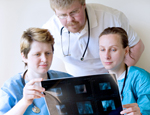
23 March 2011
The Health and Social Care Bill amounts to the abolition of the English NHS as a universal, comprehensive, publicly accountable, tax funded service, free at the point of delivery, warn experts today.
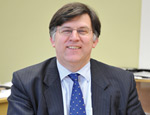
23 March 2011
Professor Anthony Warrens, Dean for Education at Barts and The London School of Medicine and Dentistry, has been elected President of the British Transplantation Society (BTS), the professional organisation of organ transplantation in the UK. The announcement was made at the BTS’s recent Annual Congress in Bournemouth.

22 March 2011
The remains of Joseph Merrick – aka the elephant man – will be brought to life in a Discovery Channel documentary to be shown on Wednesday, 23rd March at 9pm.

21 March 2011
New research from Barts and The London School of Medicine and Dentistry shows that ethnicity, depression, lack of exercise or social support, and social difficulties are major risk factors for chronic fatigue syndrome (CFS).

18 March 2011
A scientist at Barts and The London School of Medicine and Dentistry has been shortlisted for the Most Promising Innovator of the year award for his research on a targeted cancer treatment.

17 March 2011
A pie and mash meal from Wetherspoons contains a massive 7.5g of salt – the same amount of salt as 15 packets of crisps and 125 per cent of the daily maximum recommendation of 6g Men are putting their health at risk by eating the equivalent of 365 pints of salt in a lifetime As many as 1 in 10 men think they should eat 10g or more of salt per day

2 March 2011
Queen Mary’s Institute of Cancer will today (Wednesday) be renamed the Barts Cancer Institute at a special inaugural research seminar.

2 March 2011
Professor Richard Charles Trembath has been appointed as a Vice-Principal of Queen Mary, University of London, and Warden of Barts and The London School of Medicine and Dentistry. He will replace Professor Sir Nicholas Wright who steps down this summer after a highly successful tenure of ten years.

25 February 2011
Scientists investigating natural ways to enhance athletic performance have found that bovine colostrum can massively reduce gut permeability – otherwise known as ‘leaky gut syndrome.’

18 February 2011
Two effective treatments benefit up to 60 per cent of patients with Chronic Fatigue Syndrome or Myalgic Encephalomyelitis (CFS/ME), according to a collaborative trial funded by the Medical Research Council and UK government departments.
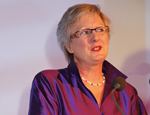
16 February 2011
Delivering a lecture at the Royal Society of Medicine on Tuesday 1st on the subject of, ‘What’s new in dental education,’ Professor Elizabeth Davenport looked at the current state of dental education, drivers for change, and future developments.

9 February 2011
A genetic pattern could predict how aggressive prostate cancer is before treatment, and whether the disease will come back in men who have already been treated, according to research published in the Lancet Oncology.

3 February 2011
The Right Honourable David Willetts MP, the Minister for Universities and Science, today (Thursday 3 February) paid a visit to the award-winning interactive science centre for children – Centre of the Cell.
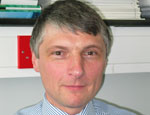
2 February 2011
Researchers at Barts and the London Medical School will be leading the London arm of a £2 million project to establish a database of 10,000 patients infected with hepatitis C.
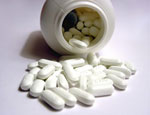
2 February 2011
A perplexing medical paradox now has an explanation according to research undertaken at Barts and The London School of Medicine and Dentistry and published in the current issue of the Public Library of Science. The paradox is that taking folic acid, a B vitamin, lowers homocysteine in the blood which, epidemiological evidence indicates, should lower the risk of heart attack, but clinical trials of folic acid have not shown the expected benefit.
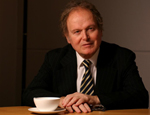
26 January 2011
The Warden of Barts and The London School of Medicine and Dentistry, Professor Sir Nicholas Wright has been admitted as a Fellow of the Faculty of Medicine at Imperial College.
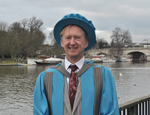
25 January 2011
John Oxford, Professor of Virology at Barts and The London School of Medicine and Dentistry, has today (25 January) accepted an honorary degree – the first of his distinguished career - from Kingston University.

24 January 2011
A paper published in the latest issue of the Journal of Medical Screening concludes that screening women over the age of 50 and men over 65 for hypothyroidism could significantly improve the quality of life of 100,000 people in the UK.

12 January 2011
Queen Mary, University of London is to lead a £4.7million Policy Research Unit dedicated to research on cancer screening, symptom awareness and early diagnosis. The funding is provided over 5 years by the Department of Health’s Policy Research Programme.
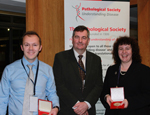
10 January 2011
The research team of Denise Sheer, Professor of Human Genetics has been awarded the Jass prize by the Pathological Society and the Journal of Pathology.

6 January 2011
Scientists at Barts and The London School of Medicine and Dentistry have found the underlying genetic change that caused an eighteenth century patient, known at the time as the ‘Irish giant’, to grow to over 7 and a half feet (231cm) tall.
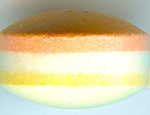
4 January 2011
A groundbreaking trial of a one-stop-pill to prevent heart attacks and strokes in people over 50 is being launched at Queen Mary, University of London today (Tuesday, 4 January).

2 December 2010
A prestigious award from the Royal College of GPs has been won by a professor at Barts and The London School of Medicine and Dentistry.

24 November 2010
A pre-medical school work placement scheme aimed at widening-participation for local A-level students considering a career in medicine, has been awarded the Guardian Public Service Award 2010 in Innovation and Progress.
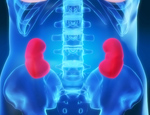
19 November 2010
A unique team of Peer Educators trained by Kidney Research UK - Britain’s leading charity dedicated to funding research into kidney disease - has successfully signed over 500 people to the NHS Organ Donor Register thanks to funding from the Big Lottery Fund (BIG).

18 November 2010
Giving women younger than 50 years who have a family history of breast cancer a mammogram every year will detect more cancers and could save lives, according to an article published Online First in The Lancet Oncology today (18 November 2010).
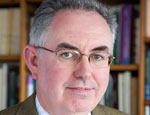
17 November 2010
A treatment for hypertension involving minor kidney surgery, shown to be more effective in reducing high blood pressure than medical therapy alone, is being trialled at Barts and The London NHS Trust and Barts and The London School of Medicine and Dentistry.

17 November 2010
An online personal health organiser developed as part of the £12.4 billion National Programme for IT in the National Health Service has failed to attract the user numbers anticipated a study published in the BMJ today (17 November) reveals.
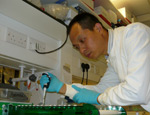
15 November 2010
Scientists may have found the key to preventing prostate cancer, according to promising new research, published in the journal Cancer Research.
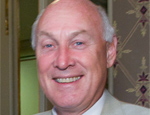
13 November 2010
Five specialists at Barts and The London NHS Trust and Barts and The London School of Medicine and Dentistry are named as being among Britain’s top doctors in a special issue of The Times.
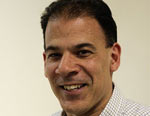
11 November 2010
Evidence suggesting that the risk of childhood asthma associated with prenatal paracetamol exposure may depend on antioxidant genes in the mother has been found by a team of UK scientists.

10 November 2010
A gene thought to be responsible for initiating human cancer has been identified by researchers at Barts and The London School of Medicine and Dentistry. The study - published online today (9 November) in the journal Cancer Research - paves the way for developing early cancer diagnostic tests, and finding new treatments that prevent or stop the spread of cancer cells at an early stage.
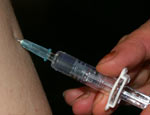
10 November 2010
Women who have had the human papillomavirus (HPV) vaccine could need only two HPV screening tests for the rest of their lives according to new research being presented at the NCRI Cancer Conference in Liverpool (9 November 2010).

10 November 2010
Whales exhibit skin damage consistent with acute sunburn in humans, and it seems to be getting worse over time, reveals research published this week.
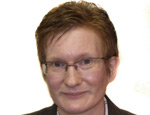
9 November 2010
Mobile phones could revolutionise the diagnosis of sexually transmitted infections (STIs) by using new technology to give instant results and recommend treatment options.
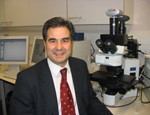
3 November 2010
A Joint & Related Inflammatory Diseases Capability Cluster that has Barts and The London School of Medicine and Dentistry among its academic partners is one of two new initiatives launched by the Universities Minister David Willetts at the recent Association of British Pharmaceuticals Industry (ABPI)/BioIndustry Association Conference in London.
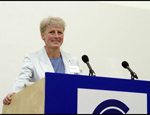
2 November 2010
Guiding principles for evaluating eHealth initiatives are published today (Tuesday 2 November) by researchers behind the evaluation of the Government’s controversial Summary Care Record programme.
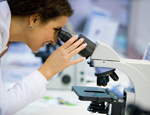
27 October 2010
A project focusing on the scar tissue surrounding cancer tumours aims to provide new targets for drugs for treating pancreatic cancer, the fifth highest cause of cancer deaths in the UK.

26 October 2010
Nobel Laureate Sir Tim Hunt FRS, and the University of Oxford’s Professor Marcus du Sautoy are among guests speakers at this years flagship event at Barts and The London School of Medicine and Dentistry’s – William Harvey Day (26 October 2010).

29 September 2010
Hundreds of genetic variants in at least 180 separate genes have been identified as having an influence on adult human height, thanks to a large genome-wide association (GWA) study involving researchers from Barts and The London School of Medicine and Dentistry.
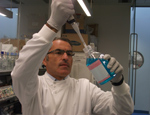
28 September 2010
A protein known to regulate cell proliferation and survival has been linked for the first time to pancreatic cancer, the UK’s fifth most common cause of cancer death.
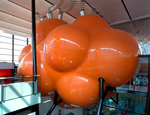
23 September 2010
Centre of the Cell – the Whitechapel based science education centre which is the first in the world to be located within biomedical research laboratories – has been short-listed for a BT Visit London Award 2010. The nomination in the category ‘Best New Tourism Experience for 2010’ comes in the month that the Centre marks its first anniversary.

23 September 2010
The inaugural ‘Glioma Club’, a brain tumour conference for scientists and medical staff, is being held today (Thursday 23 September) at Barts and The London Medical School.

18 September 2010
A comprehensive review of the diagnosis and management of Barrett’s oesophagus – a sometimes precancerous condition which causes abnormal cells to grow on the inner lining of the gullet – conducted by researchers at Barts and The London School of Medicine and Dentistry, is published in the British Medical Journal today (Saturday 18 September 2010).
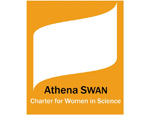
17 September 2010
Queen Mary, University of London has retained its Athena SWAN Bronze award for promoting gender equality and excellence in recruiting and progressing women in science, engineering and technology (SET).
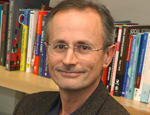
26 August 2010
Atheist or agnostic doctors are almost twice as willing to take decisions that they think will hasten the end of a very sick patient’s life as doctors who are deeply religious, suggests research by Barts and The London School of Medicine and Dentistry published online today (August 23) in the Journal of Medical Ethics.

23 August 2010
Steering clear of full-fat, fried, and processed foods is not just good for overall health, it could help prevent chronic lung conditions, a large UK study has revealed.
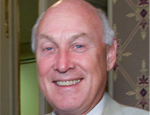
19 August 2010
Finbarr Cotter, Professor of Haematology at Barts and The London School of Medicine, has been elected President of the British Society of Haematology.

8 July 2010
HPV DNA testing for precancers and cervical cancers is over 50 per cent more sensitive than cytology testing for the same conditions a community-based study in Mexico has revealed. Results of the largest HPV DNA primary screening study ever to be performed in a Latin American country point to the readiness of HPV DNA testing for large-scale implementation in Mexico and are published online today in Cancer, Causes and Controls.

29 June 2010
The nitrate content of beetroot juice is the underlying cause of its blood pressure lowering benefits, research from Queen Mary University of London reveals today.
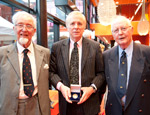
24 June 2010
Andrew Lees, Professor of Neurology at University College London, has become the first ever recipient of the Lord Brain Memorial Medal – awarded for the scientific contributions he has made to the field of movement disorders within the UK.
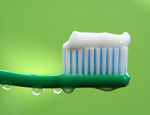
24 June 2010
Researchers at Queen Mary, University of London’s Dental Institute have developed new glasses for use in toothpastes aimed at eliminating tooth pain that occurs on taking hot or cold foodstuffs into the mouth. About 40 per cent of adults suffer from this often acute discomfort known as ‘dentine hypersensitivity.’
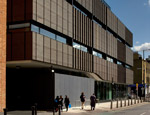
16 June 2010
Europe’s leading anti-viral research organisation – dedicated to tackling, among other viruses, the common cold - is to enhance its capabilities by taking up premises within the Queen Mary BioEnterprises Innovation Centre in Whitechapel.
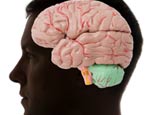
11 June 2010
Serious doubts have been cast over whether a vein disorder, purported to cause MS and which was uncovered last year, actually exists.
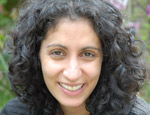
10 June 2010
Scientists from Queen Mary, University of London have discovered cancer-blocking activity for genes carried on chromosome 21 - an extra copy of which is carried by people with Down’s syndrome.
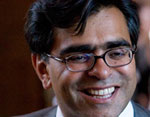
7 June 2010
Professor Ajay Kakkar’s passionate maiden speech in the House of Lords last week brought murmurs of approval from the Lords Chamber, particularly as he described his affection for the NHS.
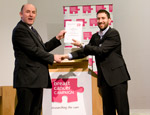
27 May 2010
A PhD student at Barts and The London School of Medicine and Dentistry has won the Emerging Investigators Poster Prize at the Breast Cancer Campaign research 2010 conference.

26 May 2010
Clinicians need to be more culturally aware when it comes to diagnosing and treating personality disorders, a new study from Queen Mary, University of London suggests.
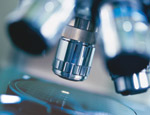
24 May 2010
Disgraced Dr Andrew Wakefield used research methods which were flawed - but which remain commonplace in the scientific world, according to a professor who gave evidence against him.
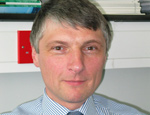
19 May 2010
A professor of hepatology at Queen Mary, University of London has joined other higher education institutions in calling on the Government to implement a hepatitis screening programme for people who come to the UK from countries at high-risk of the disease.

19 May 2010
A new research unit to target the exploration and treatment of cardiovascular disease and other heart conditions will be unveiled today (19 May) at the London Chest Hospital in East London.
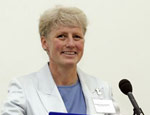
14 April 2010
Tasked with setting up and leading the Healthcare Innovation and Policy Unit in the Centre for Health Sciences at Barts and The London School of Medicine and Dentistry is an ‘exciting challenge’ for new recruit Trish Greenhalgh.

14 April 2010
Scientists from Barts and The London School of Medicine and Dentistry at Queen Mary University of London, have developed a novel method of analysing and interpreting cell signalling pathways.

16 March 2010
The new North East London, North Central London and Essex Health Innovation and Education Cluster has appointed Robyn Hudson as Managing Director.

23 February 2010
A new cancer centre, formed though a partnership between Cancer Research UK, Queen Mary, University of London, and Barts & The London NHS Trust, puts London at the forefront of cancer research.

5 February 2010
Professor Ajay Kakkar, an expert in the treatment and prevention of blood clots at Barts and The London Medical School, is set to join the House of Lords.

4 January 2010
Scientists at Queen Mary, University of London have developed tests which could revolutionise the detection of clostridium difficile and help cut the number of deaths in hospital wards from the superbug.
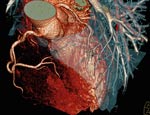
3 December 2009
A leading heart expert at Queen Mary, University of London has been honoured for pioneering a host of breakthrough treatments for heart disease.
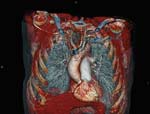
12 November 2009
A state-of-the-art chest scanner, the first of its kind in the UK, will allow doctors and researchers to spot heart problems that were previously undetectable.

11 November 2009
Academics from Queen Mary, University of London came together to shape future policy on youth and wellbeing this month, at the international ‘Careif Conference’.

29 October 2009
New research from Queen Mary, University of London and Harvard Medical School has revealed precisely why taking fish oils can help with conditions like rheumatoid arthritis.
27 October 2009
The number of Down’s syndrome pregnancies has risen sharply over the last 20 years as women have opted to have children later, according to new research published in the British Medical Journal*.

26 October 2009
Over a third of doctors report making decisions which they expect will hasten the death of a patient in their care, according to research* from Queen Mary, University of London.
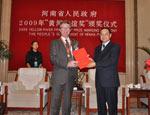
7 October 2009
Professor Nick Lemoine, Director of the Institute of Cancer at Queen Mary, University of London, has been awarded this year’s Yellow River Friendship Prize.

2 October 2009
A research clinician from Queen Mary, University of London has just been elected President of the British Hypertension Society.

28 September 2009
Researchers at Queen Mary, University of London have won a million Euro grant* to bring together Europe’s foremost experts on the health effects of noise pollution.
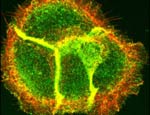
25 September 2009
The outstanding achievements of Professor Andrew Lister have been recognised by The European Society for Medical Oncology.
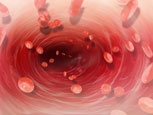
24 September 2009
Scientists at Queen Mary, University of London have made an important discovery in understanding what causes arteries to clog up.
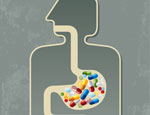
9 September 2009
Fears about the cancer causing effects of the second most prescribed group of drugs in the Western world have been put to rest, following the largest ever study into their use.

30 August 2009
A new study which will be the first to quantify the global burden of the most common abnormal heart rhythm, called atrial fibrillation, has been launched by researchers at Queen Mary, University of London.
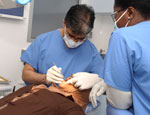
13 August 2009
Experts at Barts and The London School of Medicine and Dentistry believe that tobacco chewing may have led to an alarming rise in the number of cases of oral cancer in East London.
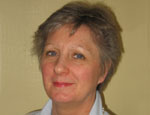
10 August 2009
Liz Davenport, Professor of Dental Education at Barts and the London School of Medicine and Dentistry, has been appointed to the newly created Council of the General Dental Council.

20 July 2009
Young men who stay at home with their parents are more violent than those who live independently, according to new research at Queen Mary, University of London.
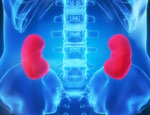
16 July 2009
A daily dose of simple household baking soda can prevent the need for patients with advanced chronic kidney disease to go on a dialysis machine according to researcher at Queen Mary, University of London.

30 June 2009
Scientists at Queen Mary, University of London have discovered that an ingredient in human breast milk protects and repairs the delicate intestines of newborn babies.
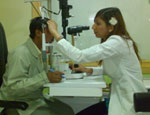
15 June 2009
Final year medical student Radhika Gulati writes for The Lancet Student website about her time spent working at speciality eye hospitals in India.
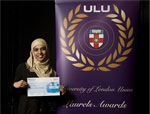
1 June 2009
A Neuroscience student from Barts and the London School of Medicine and Dentistry has won the prestigious London Student of the Year award.

27 May 2009
A student from Queen Mary has taken the top prize in a national essay writing contest.

20 May 2009
Blood pressure lowering drugs should be offered to anyone old enough to be at risk of a heart attack or stroke, regardless of their blood pressure, according to the largest analysis of blood pressure trials to date, published on bmj.com today.
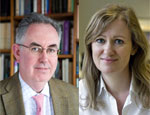
10 May 2009
Scientists at Queen Mary, University of London co-leading an international collaboration have identified eight common genetic variants which have an influence on blood pressure.

1 May 2009
Professor Mike Curtis of Queen Mary, University of London has been elected as a Fellow of the prestigious Academy of Medical Sciences.
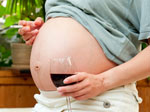
1 May 2009
A new research centre opens this week (Thursday 30 April) to study the ethics, economics and psychology behind the use of incentives in healthcare.
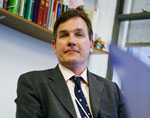
30 April 2009
A new drug for multiple sclerosis can dramatically reduce the chances of a relapse or a deterioration of the condition, according to a new study from researchers at Queen Mary, University of London.
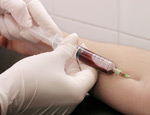
23 April 2009
Ground-breaking new research is underway at Barts and The London School of Medicine and Dentistry which means doctors are close to identifying clinically useful biomarkers – compounds found in the blood - that will revolutionise trauma care and allow surgeons to diagnose which organs are injured, and to what extent, as soon as they arrive at hospital.
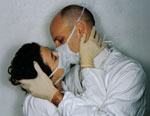
22 April 2009
A live workshop will demonstrate how theatre-based training techniques can benefit medical students as part of Arts Week, at Queen Mary, University of London on 29 April 2009.
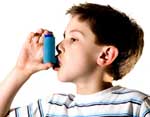
18 February 2009
An innovative study into the links between air pollution and vitamin D deficiency, and their impact on the respiratory health of children in east London is announced today, involving scientists from Barts and The London School of Medicine and Dentistry.

10 January 2009
Researchers have found that structures present in the joint linings of some patients with rheumatoid arthritis are able to produce anti citrullinated protein antibodies (ACPA) that may be responsible for joint damage.